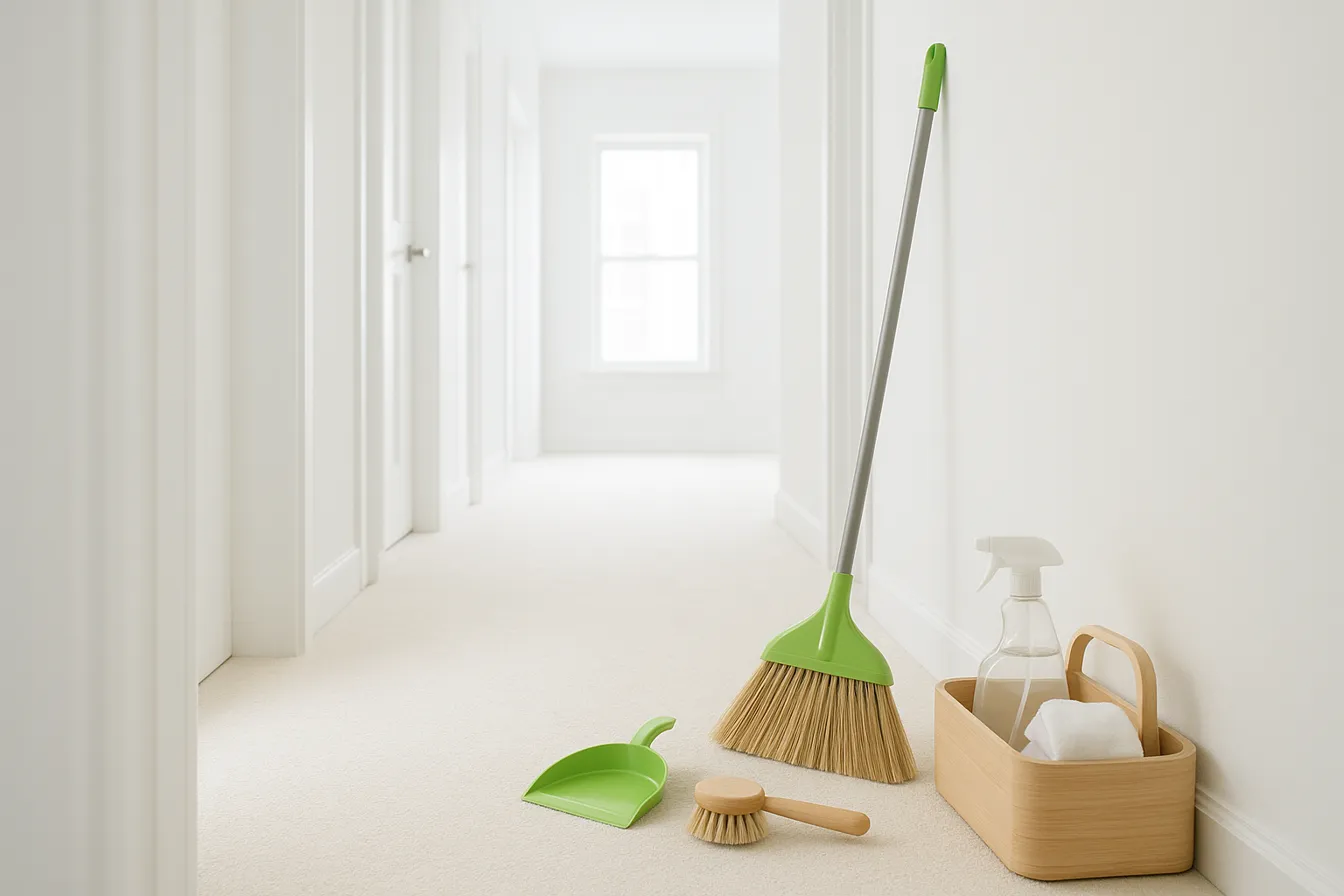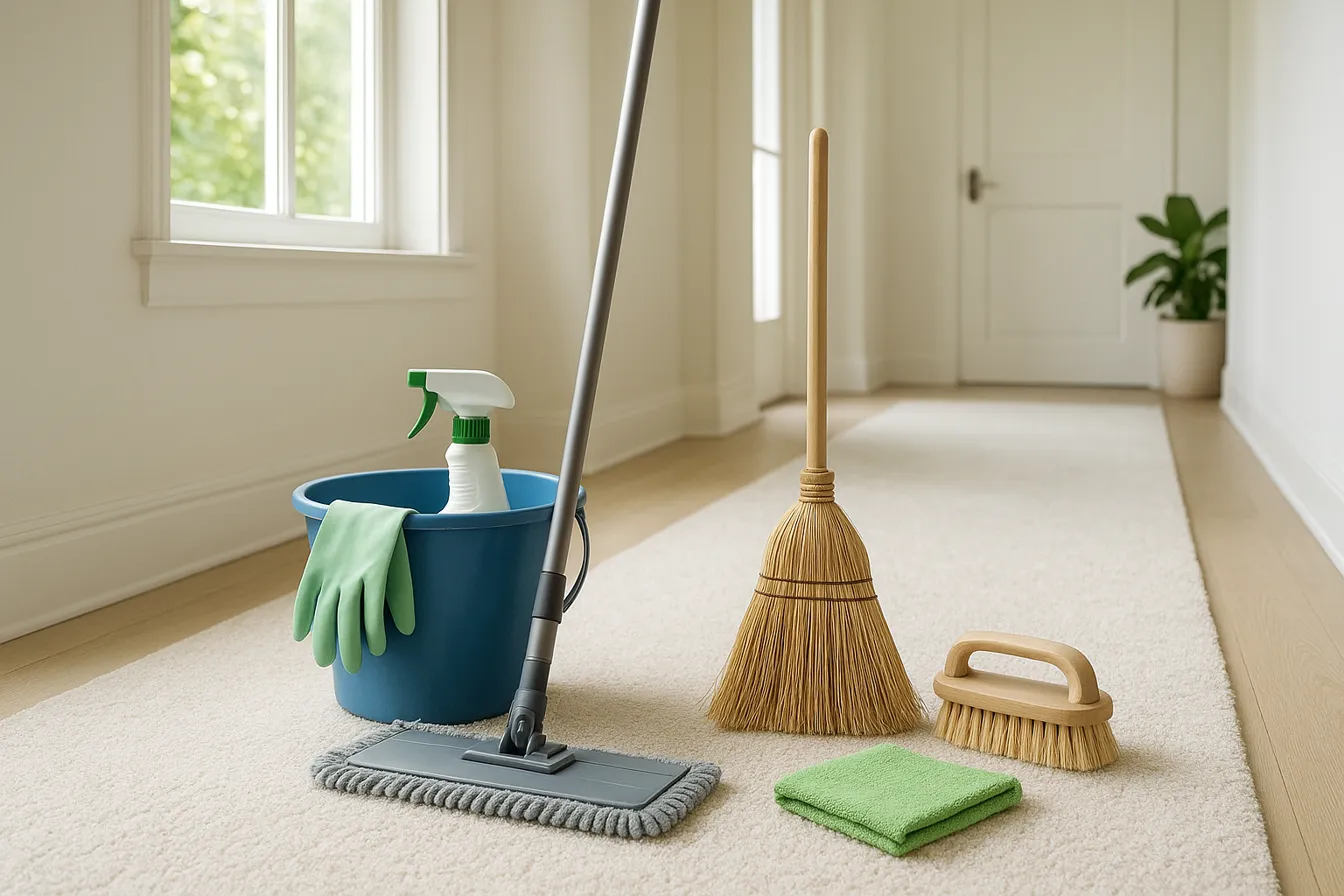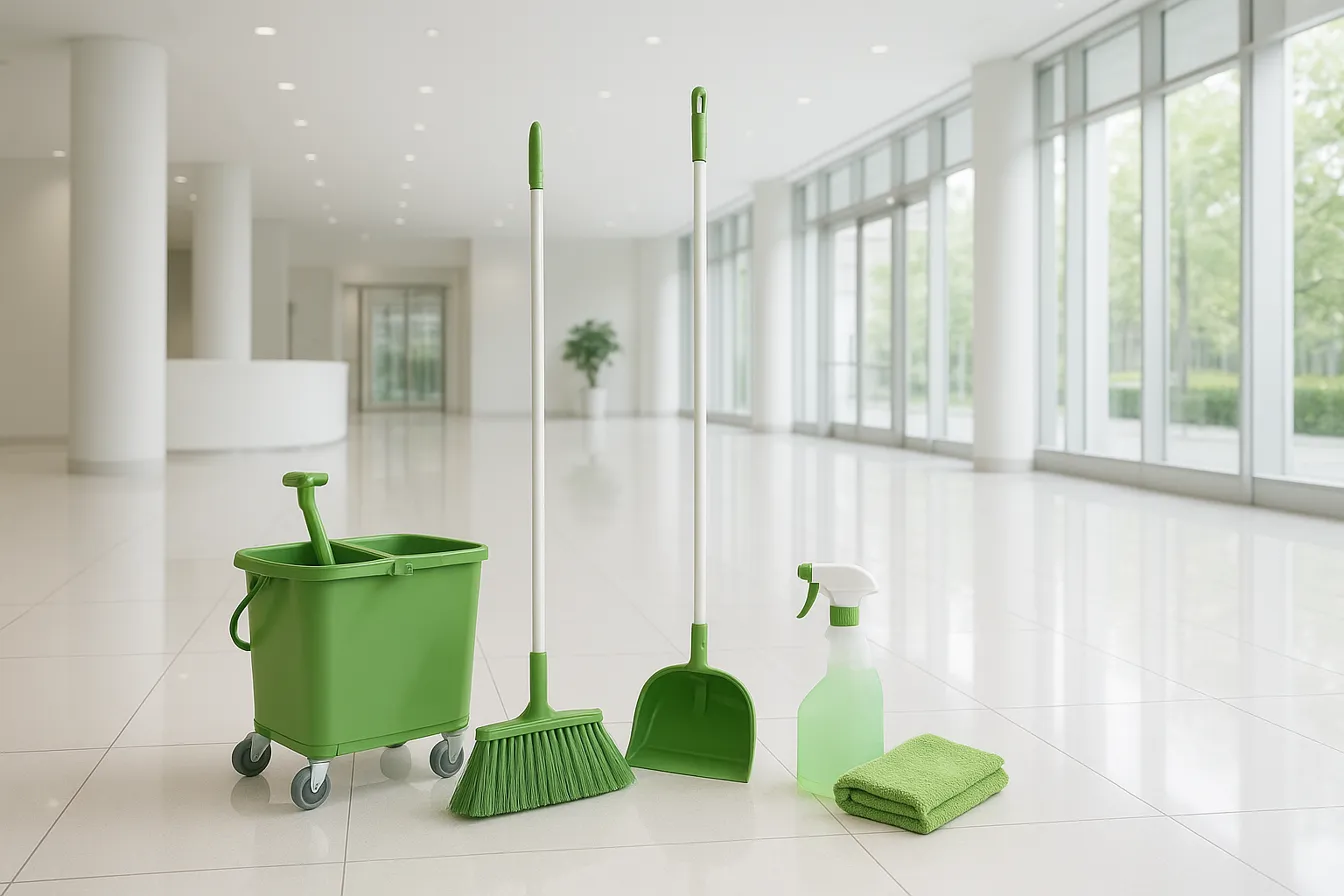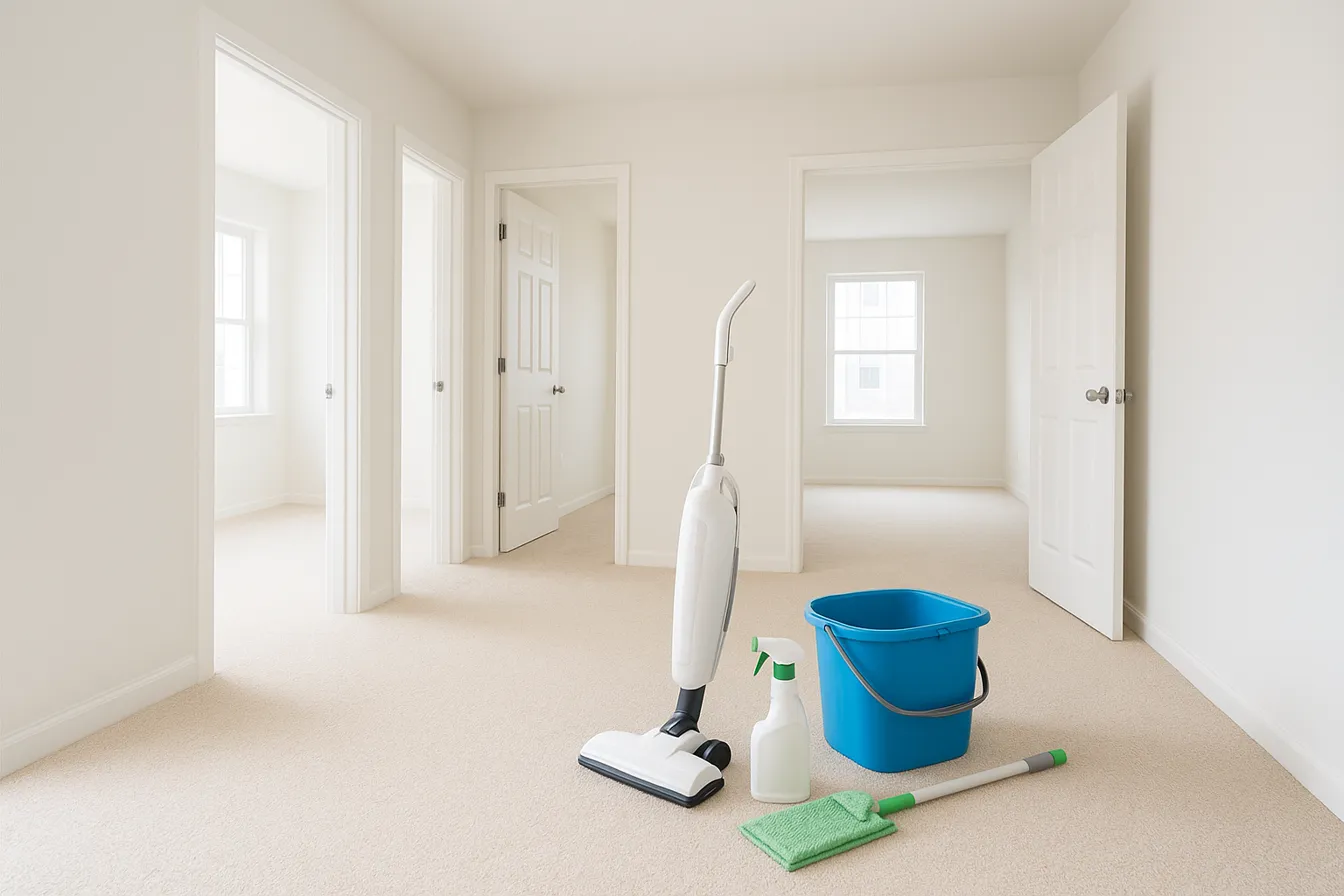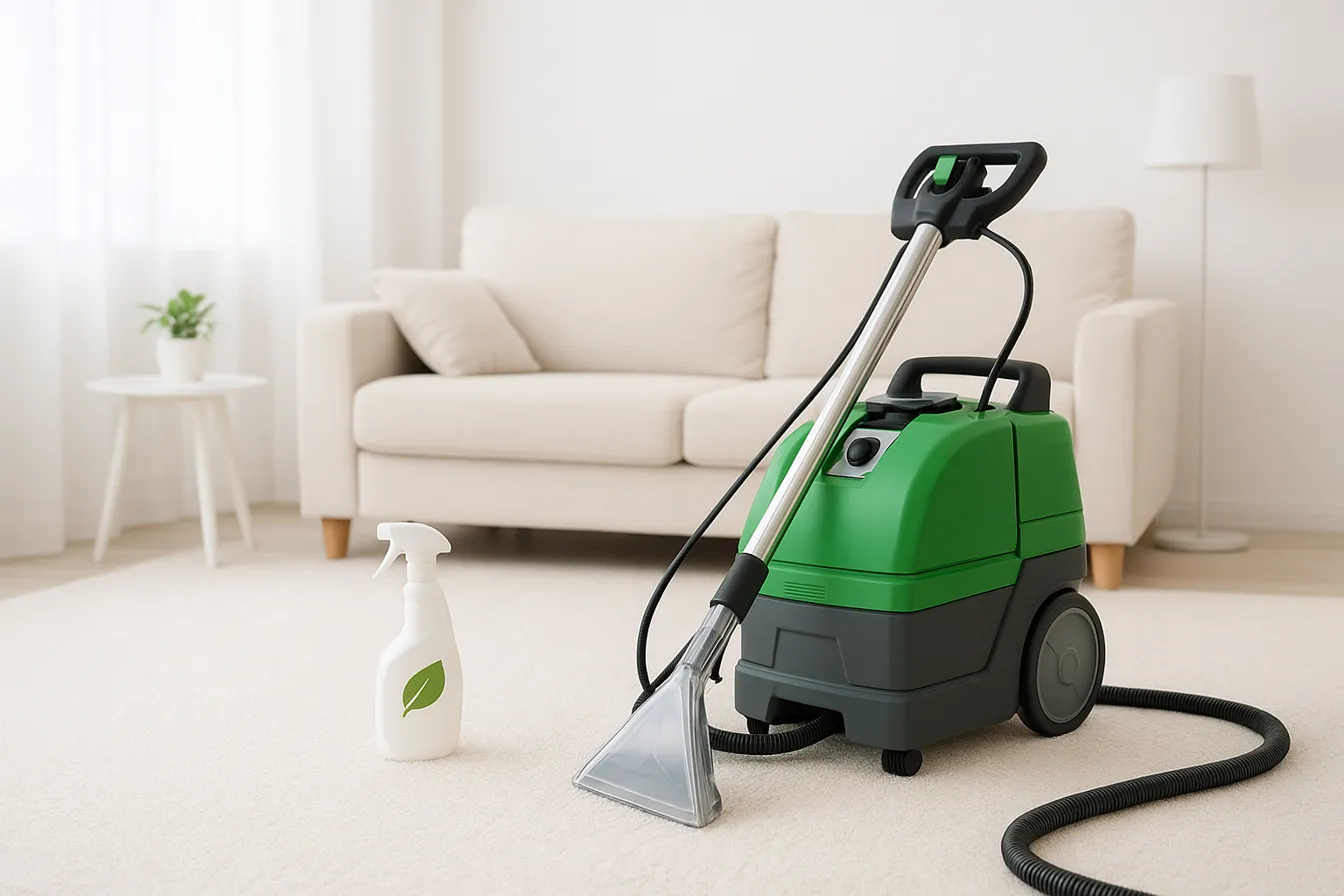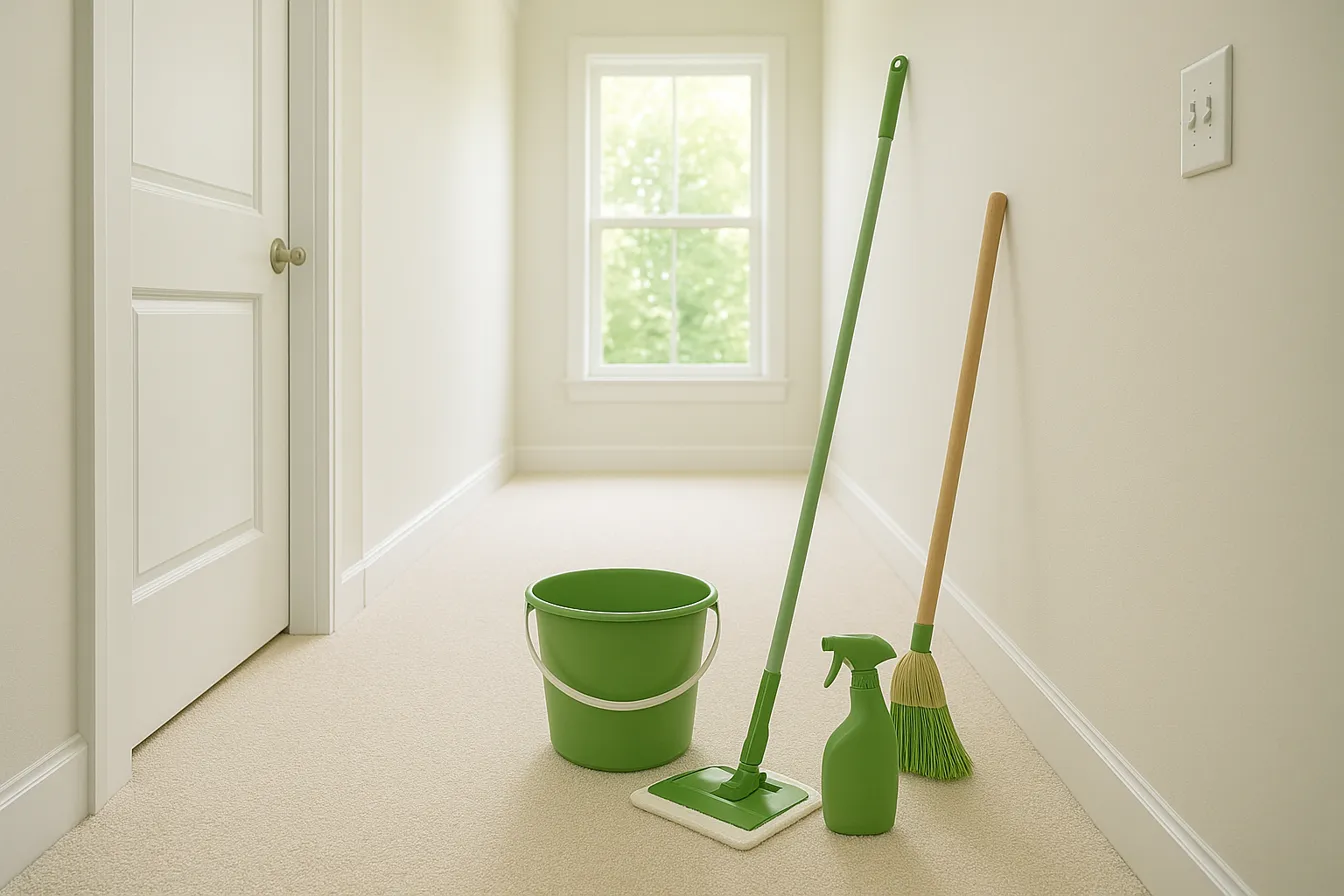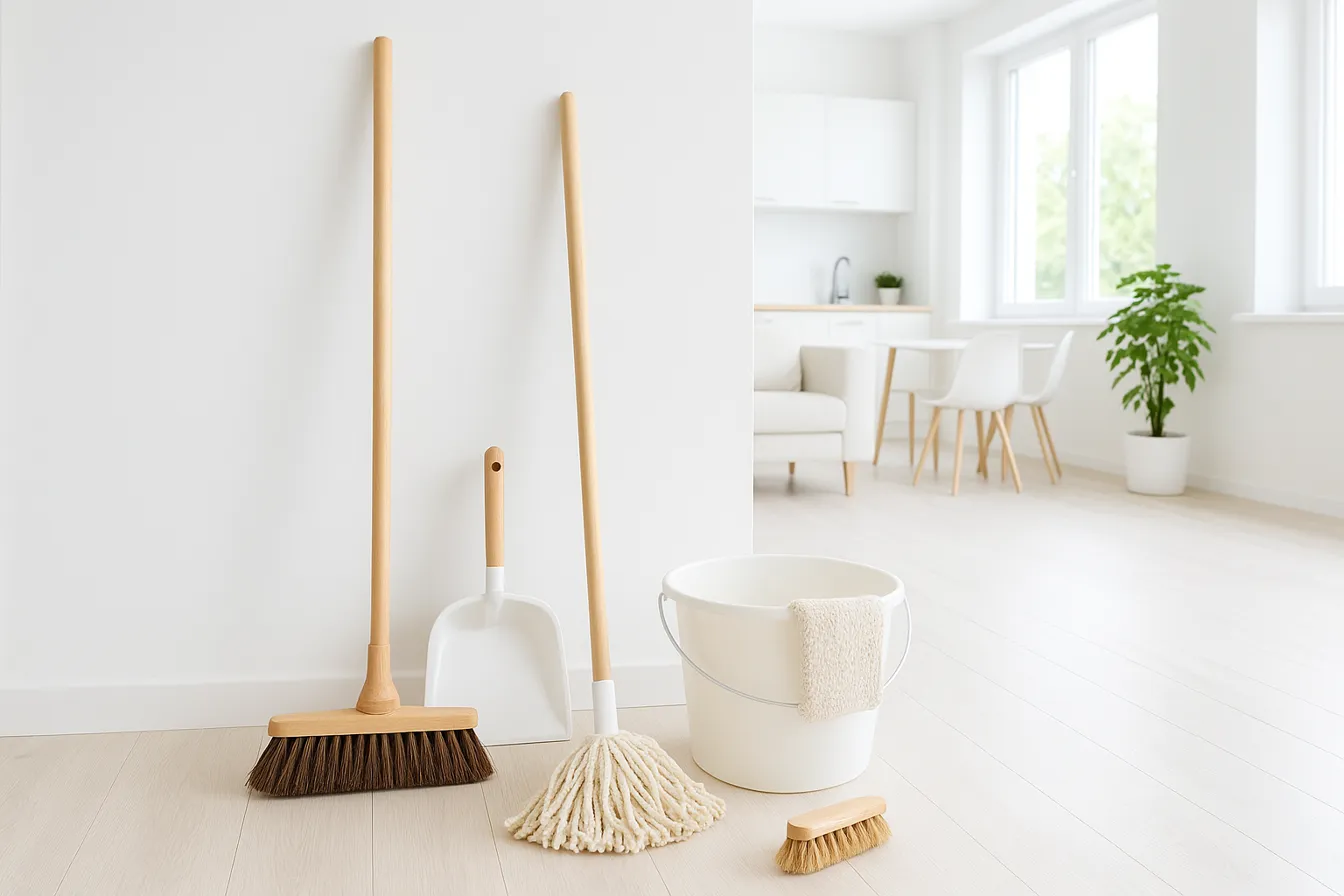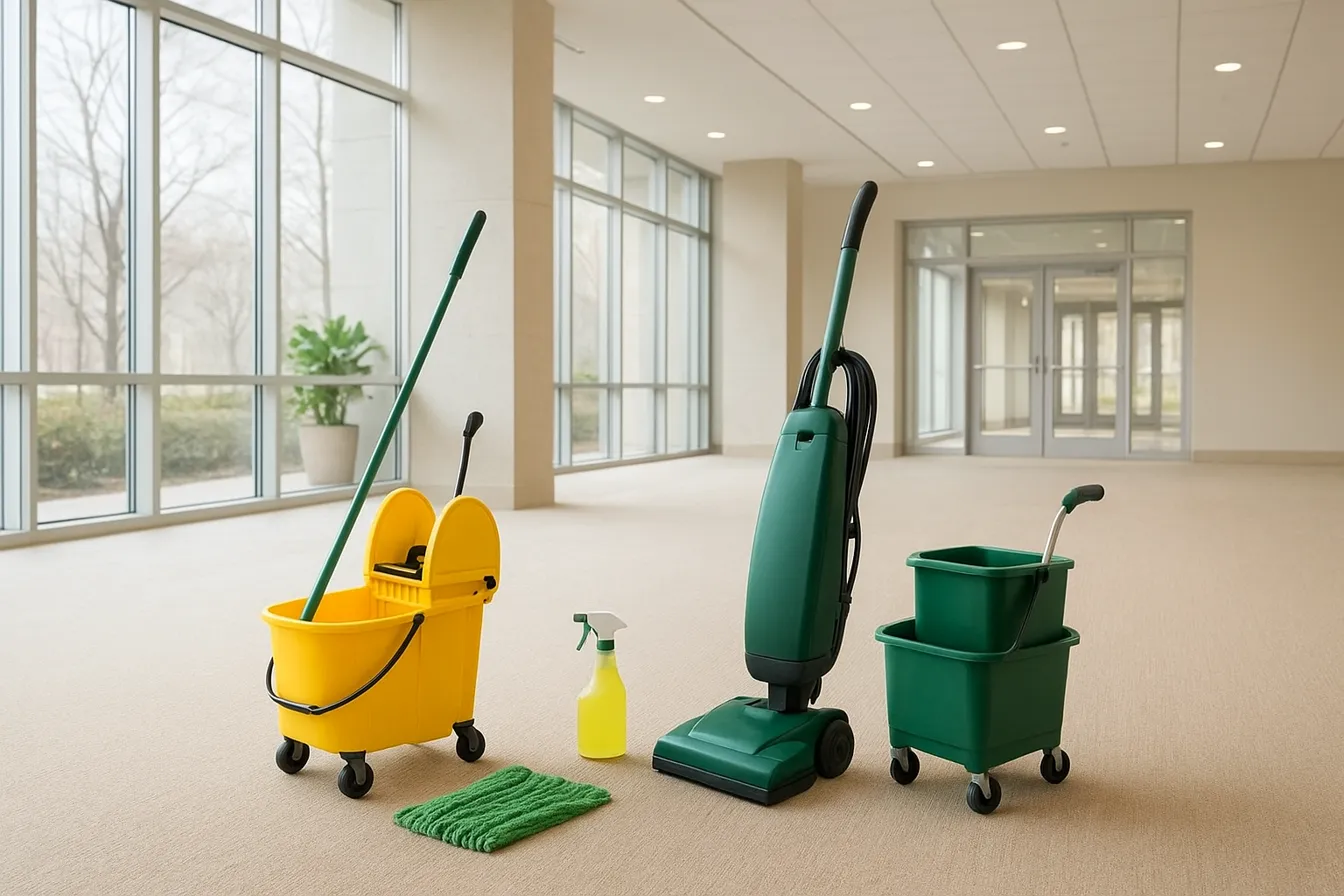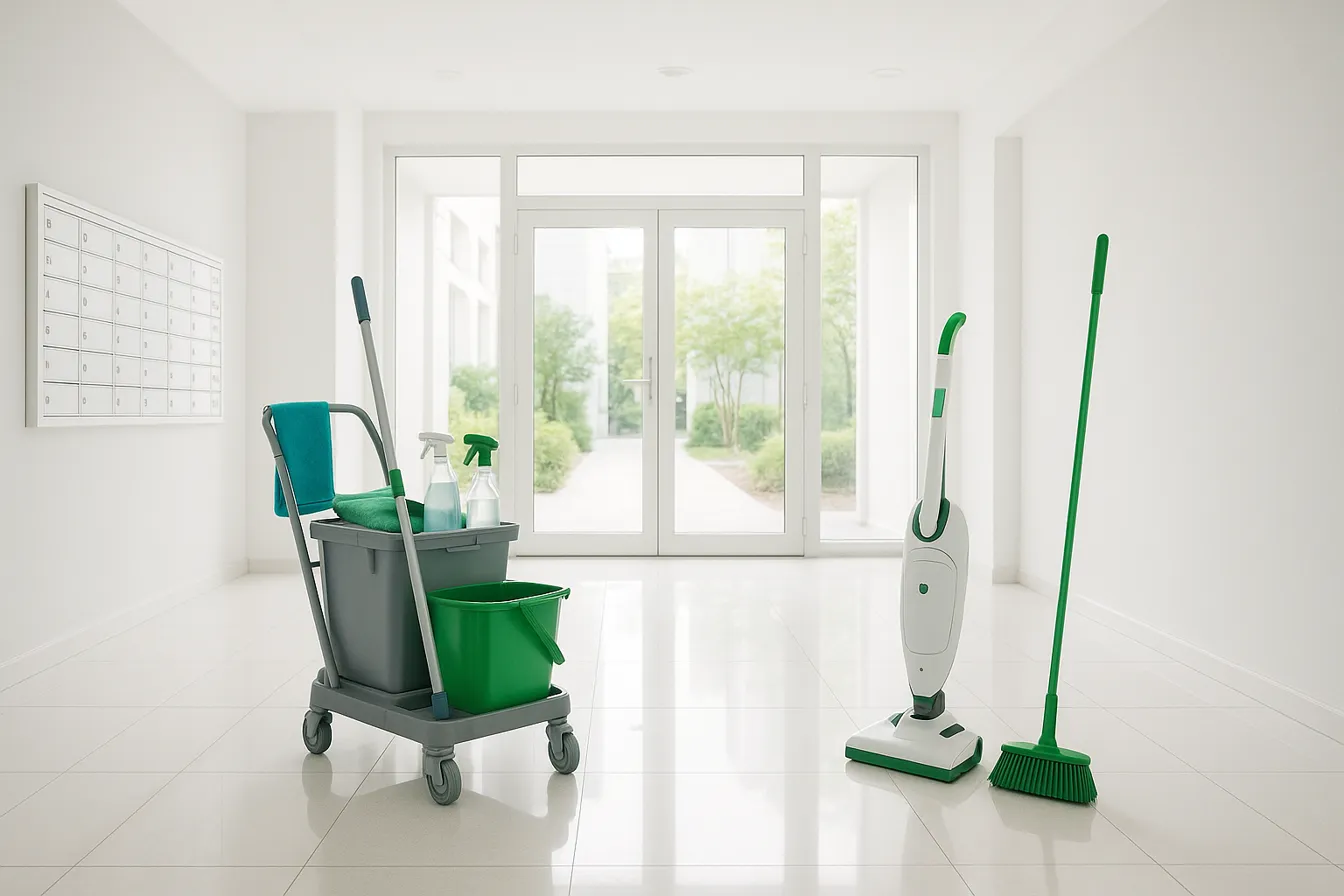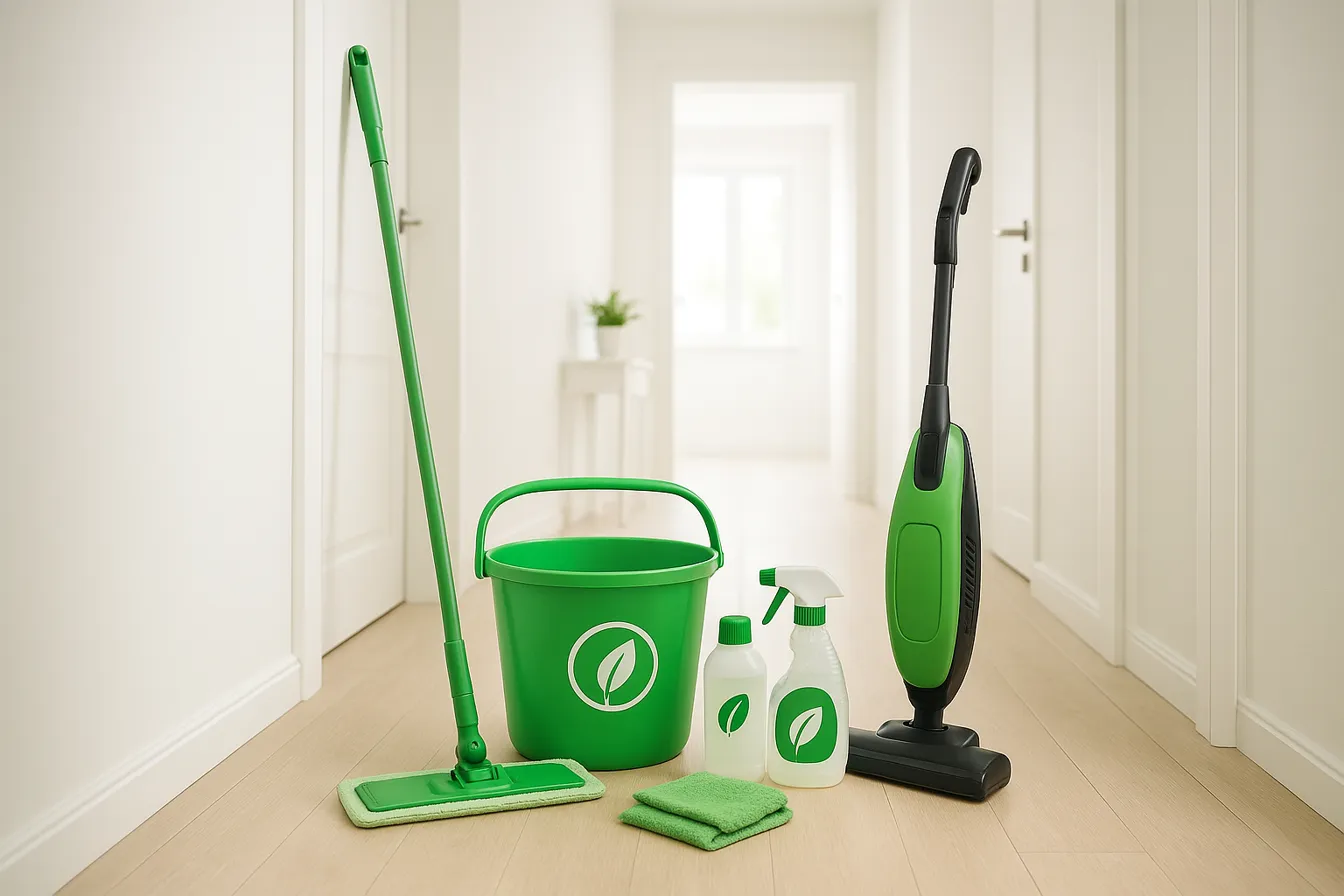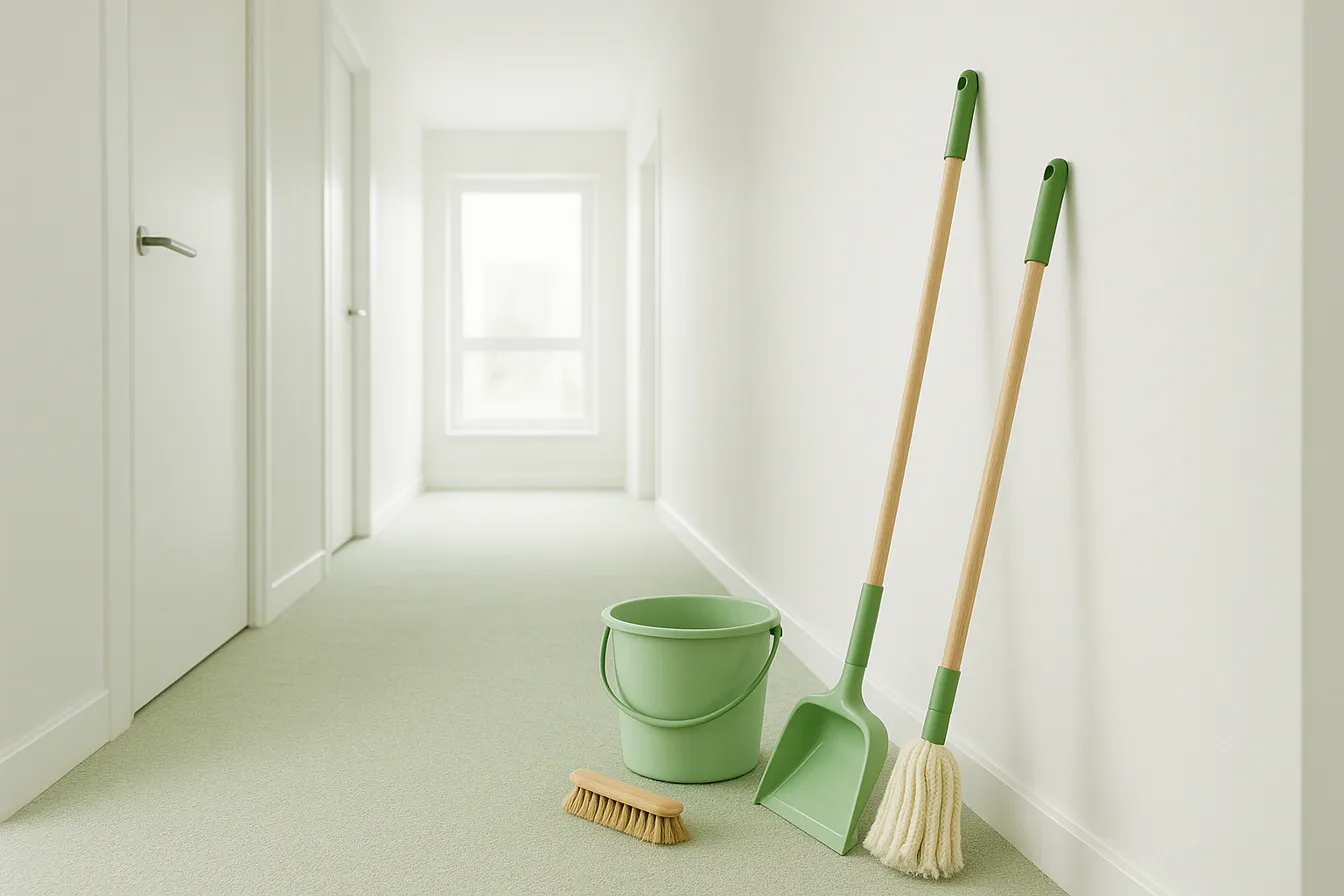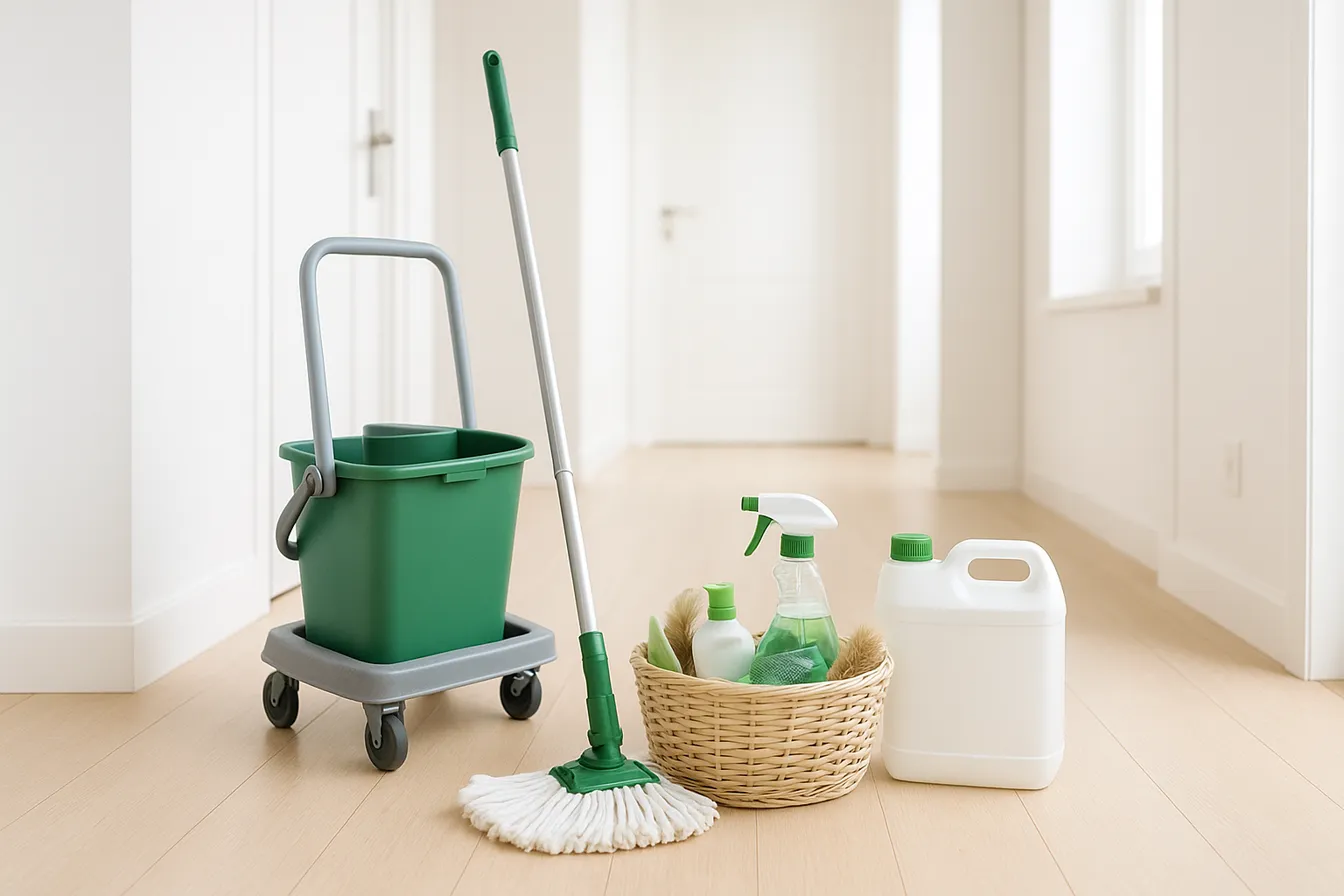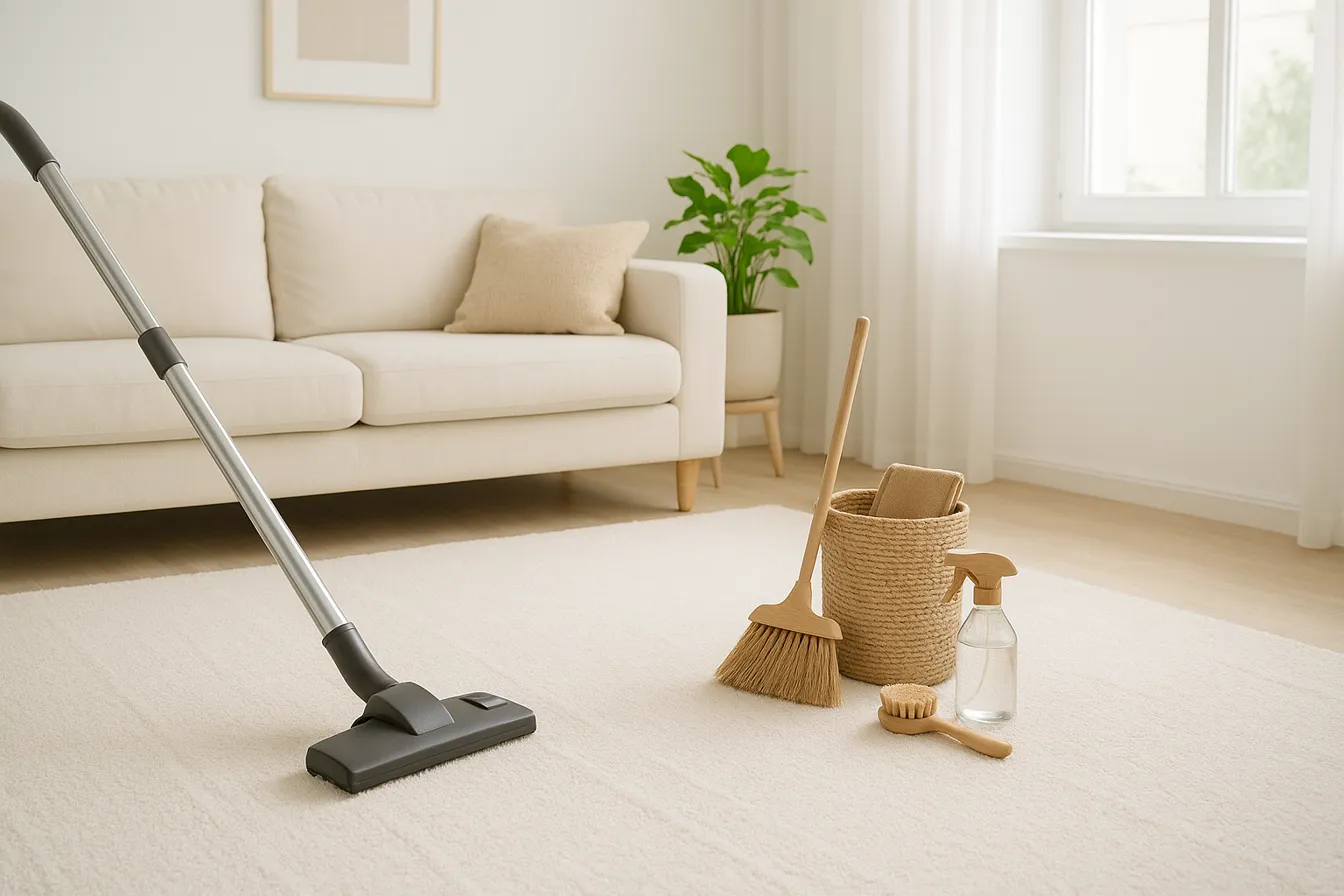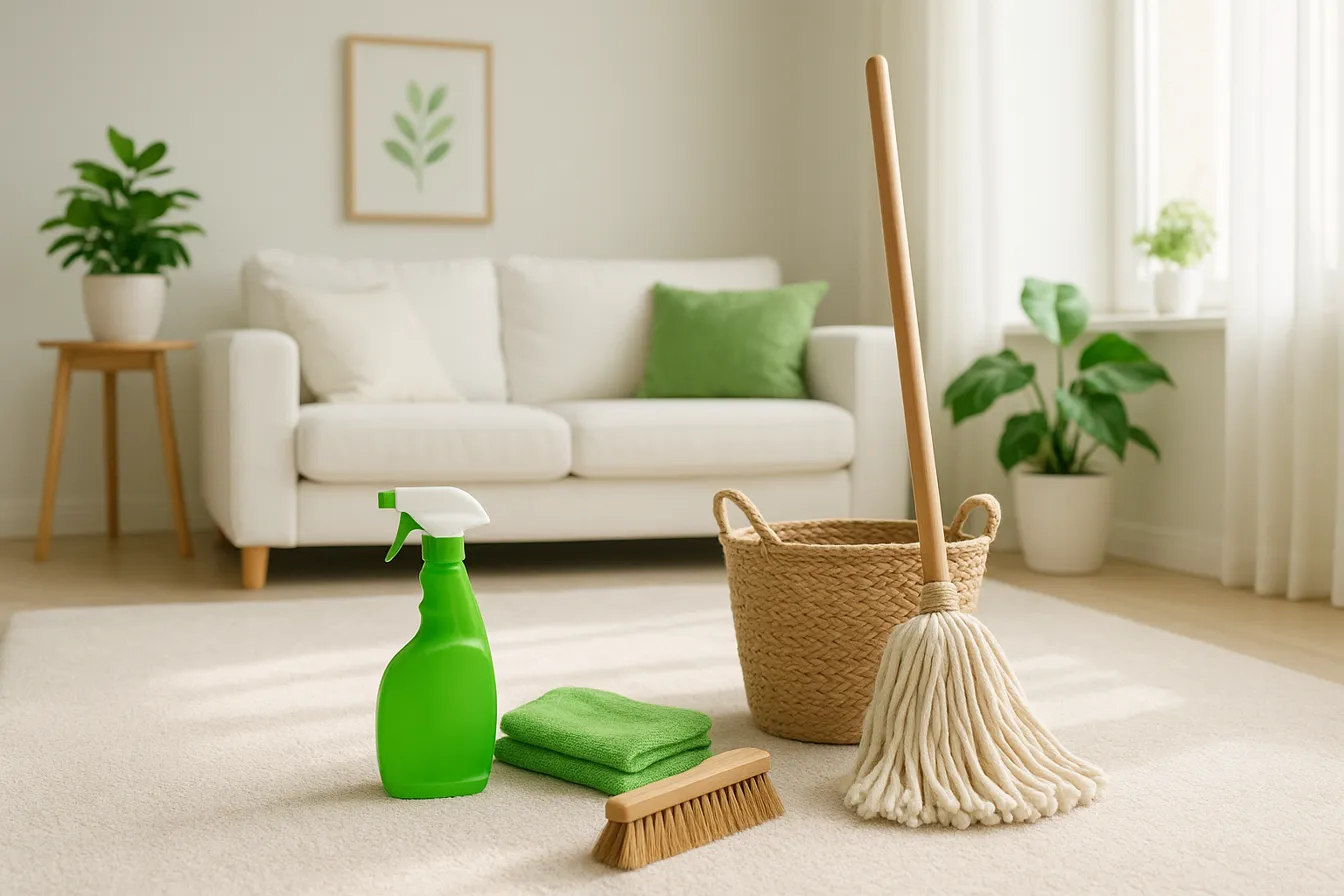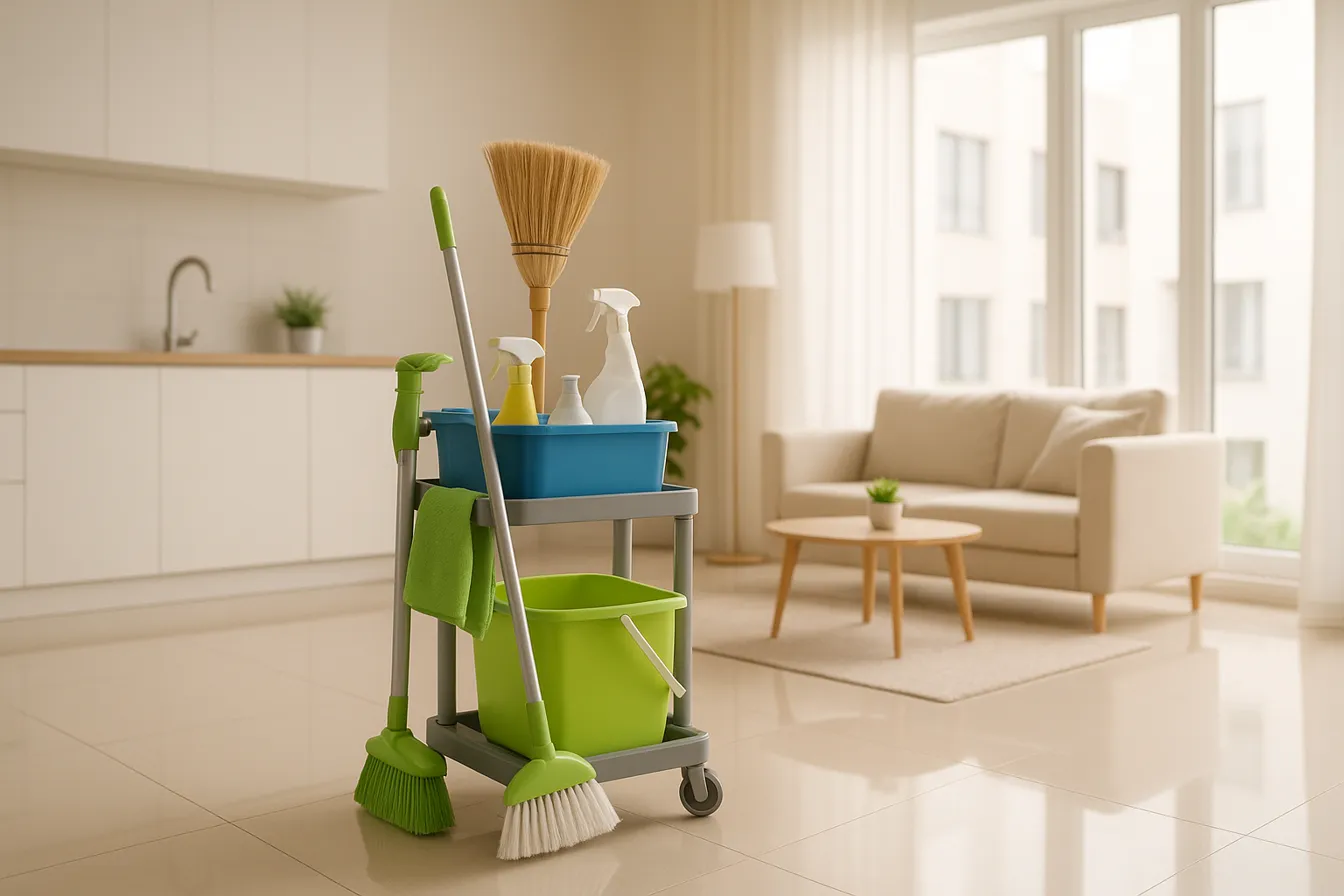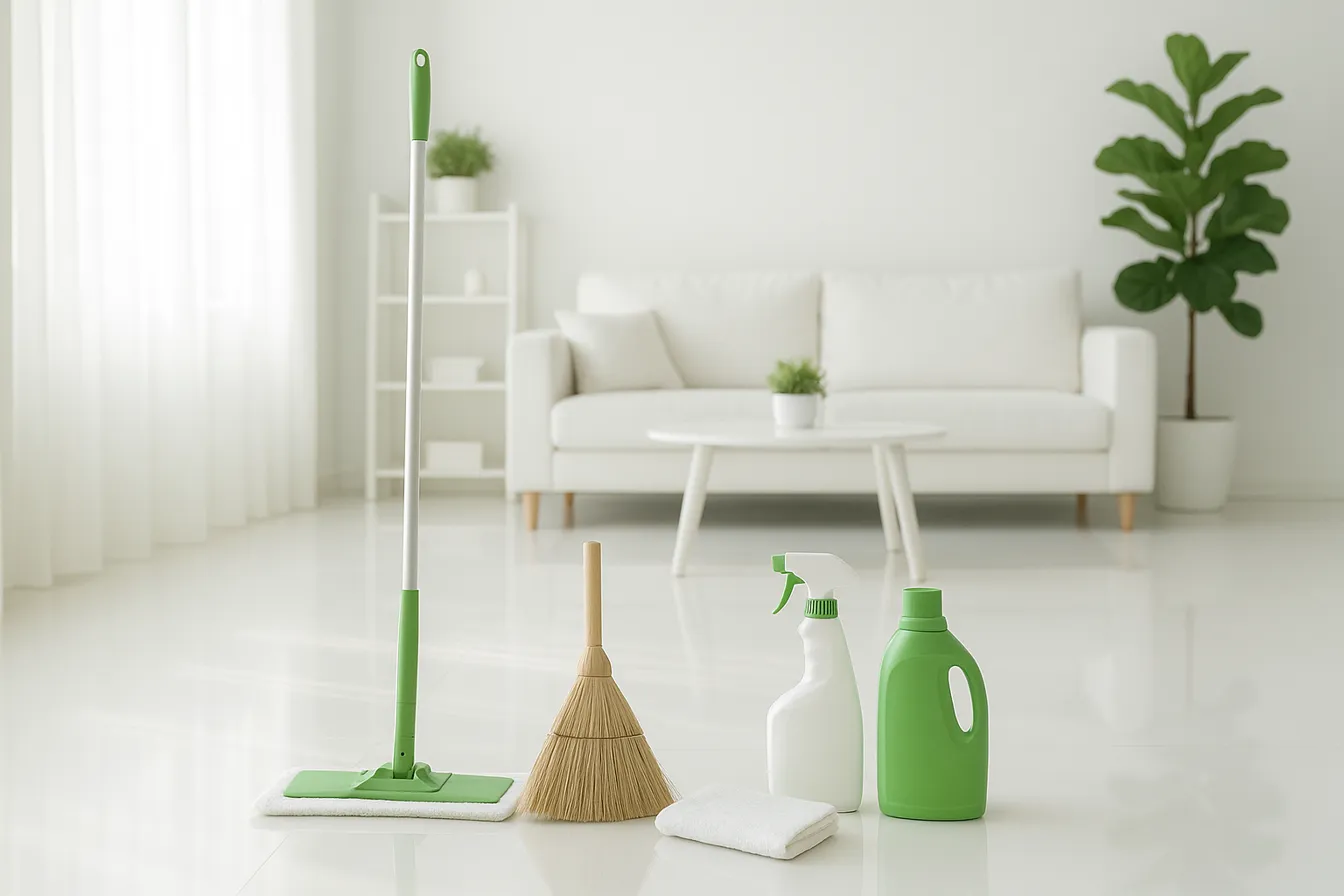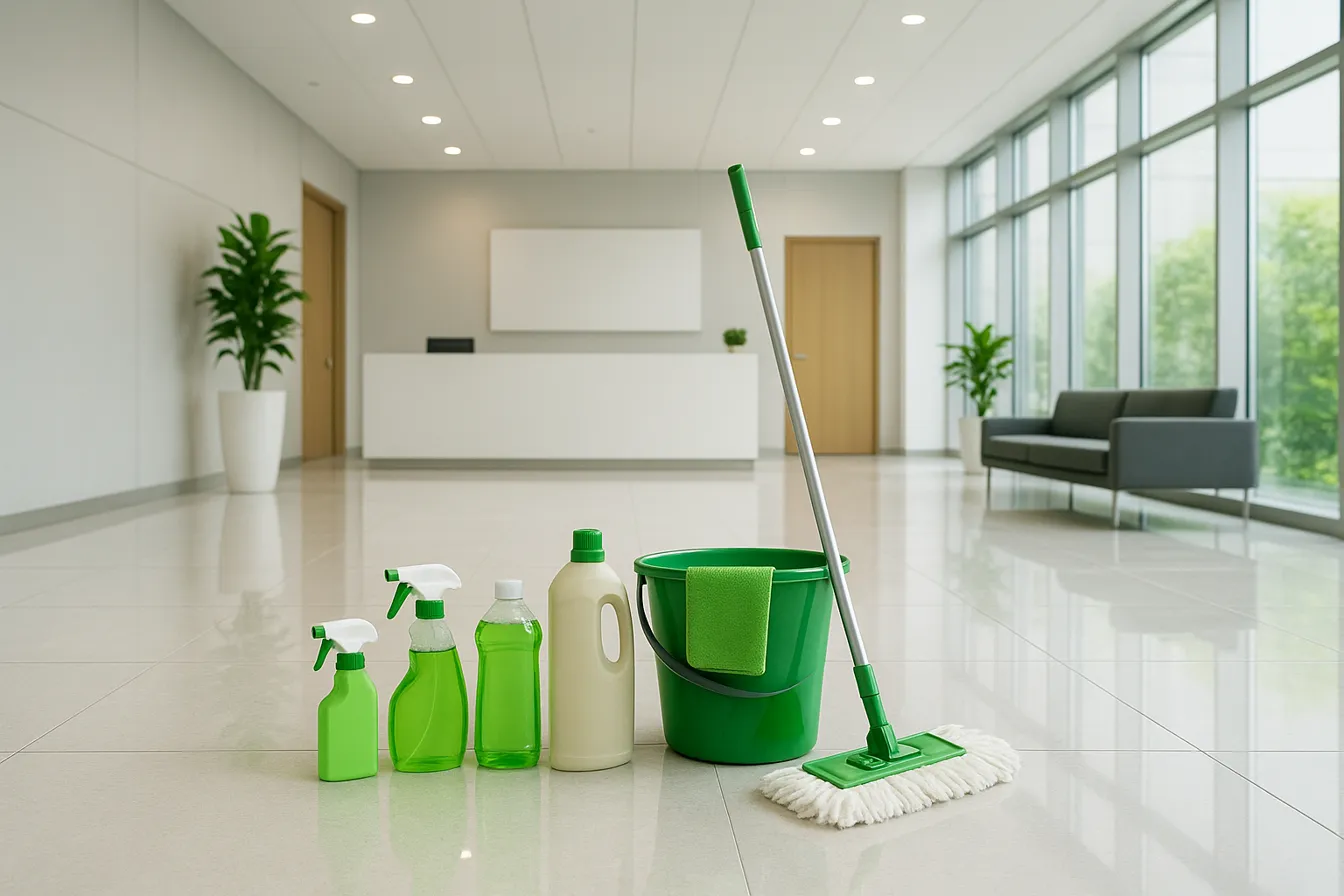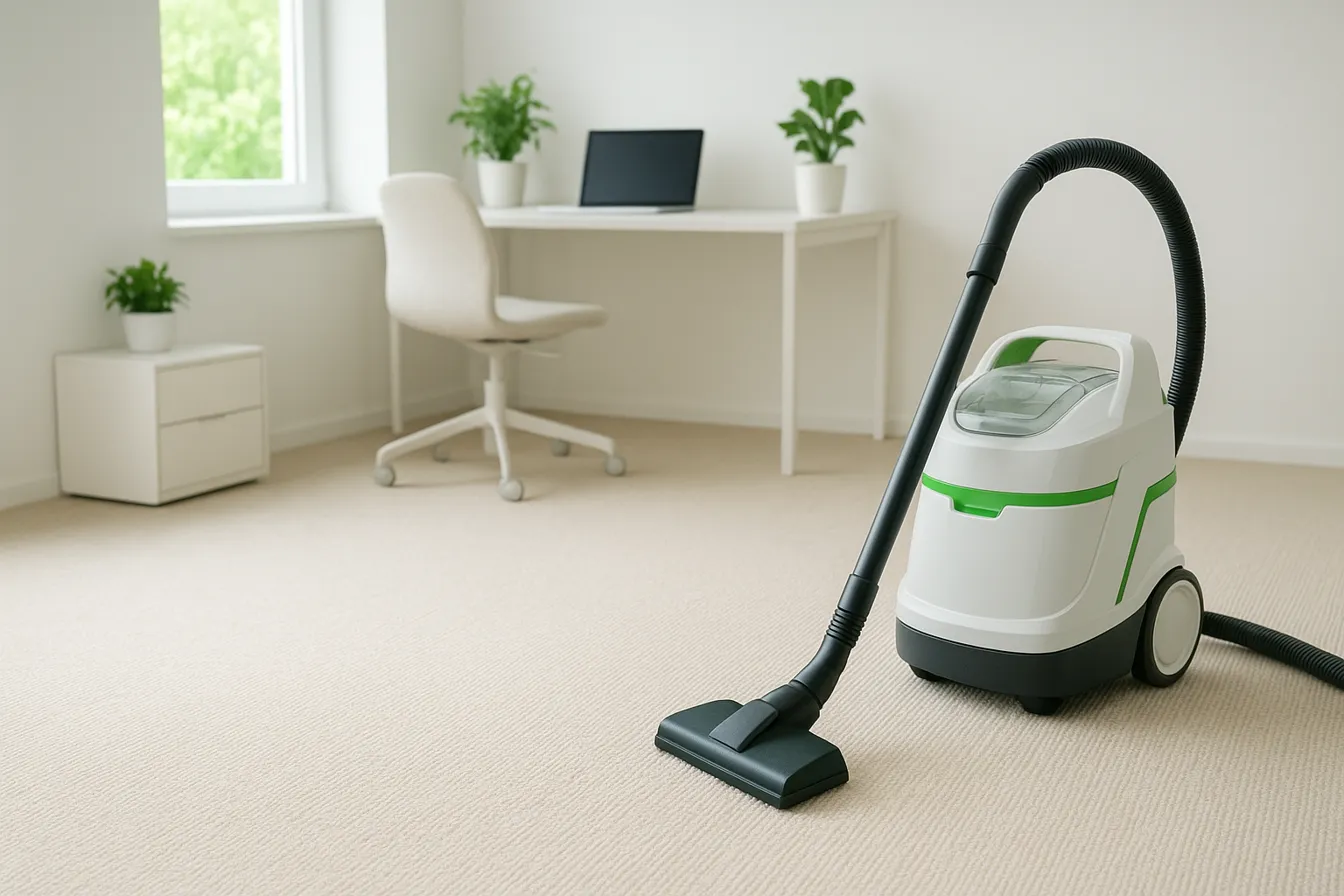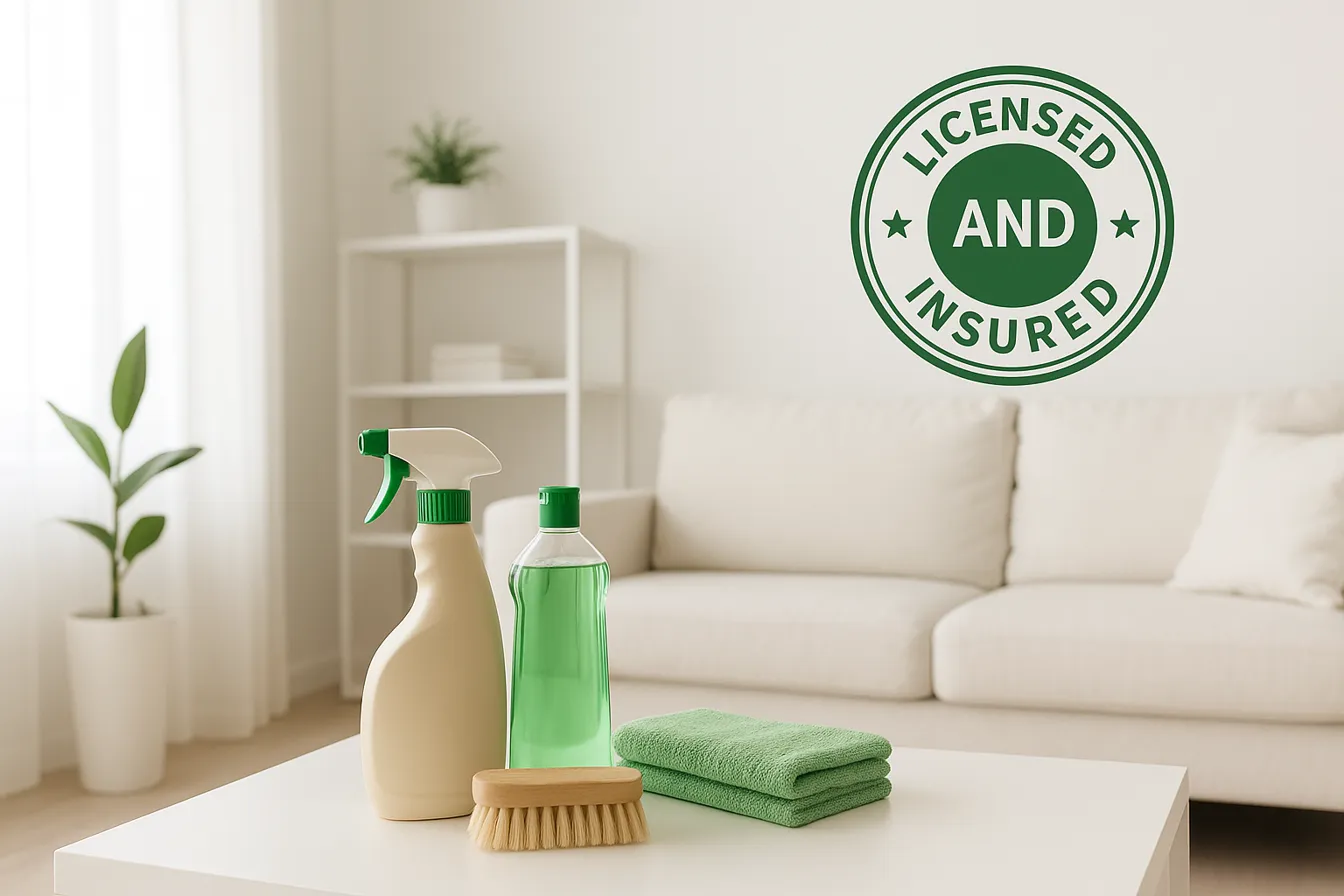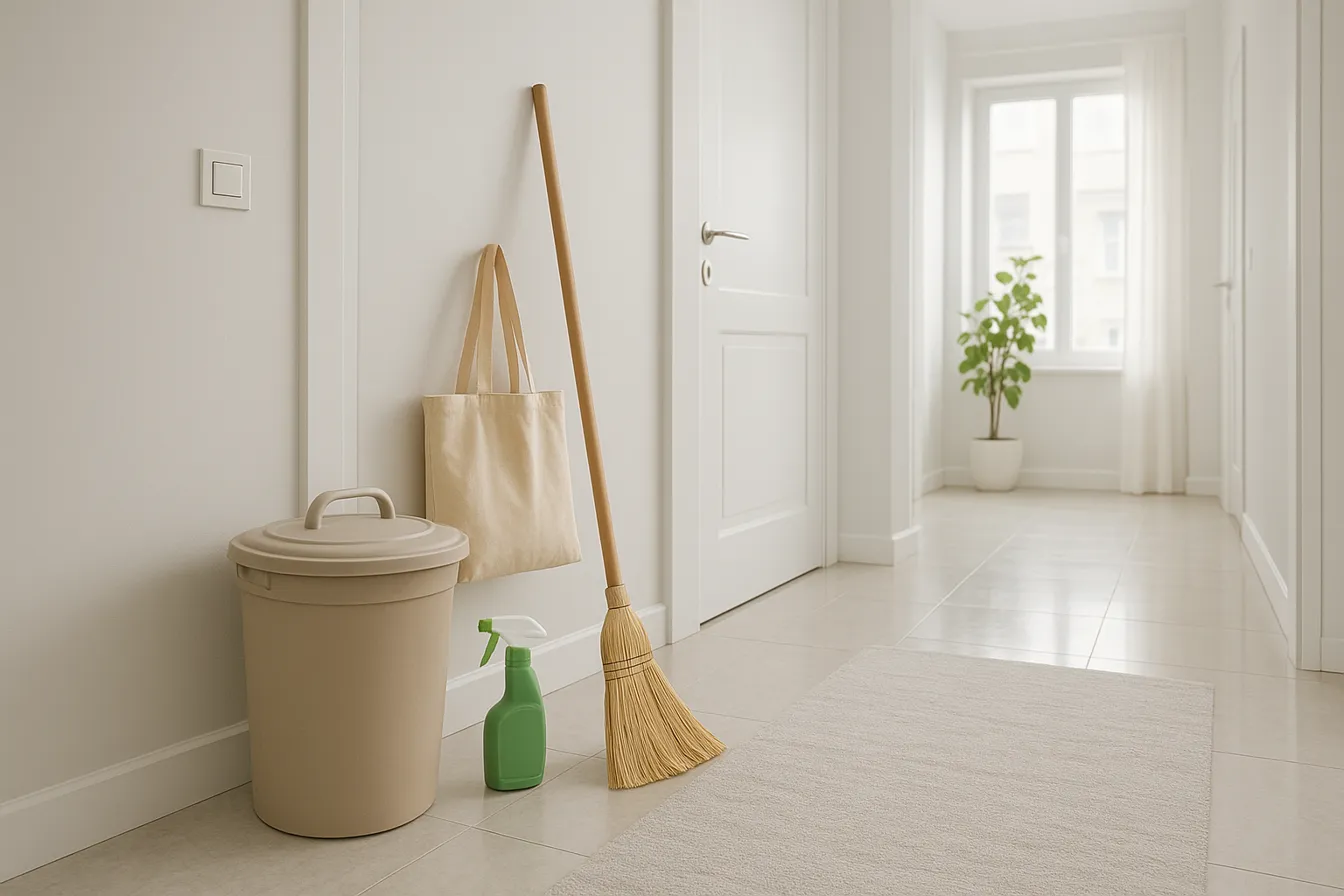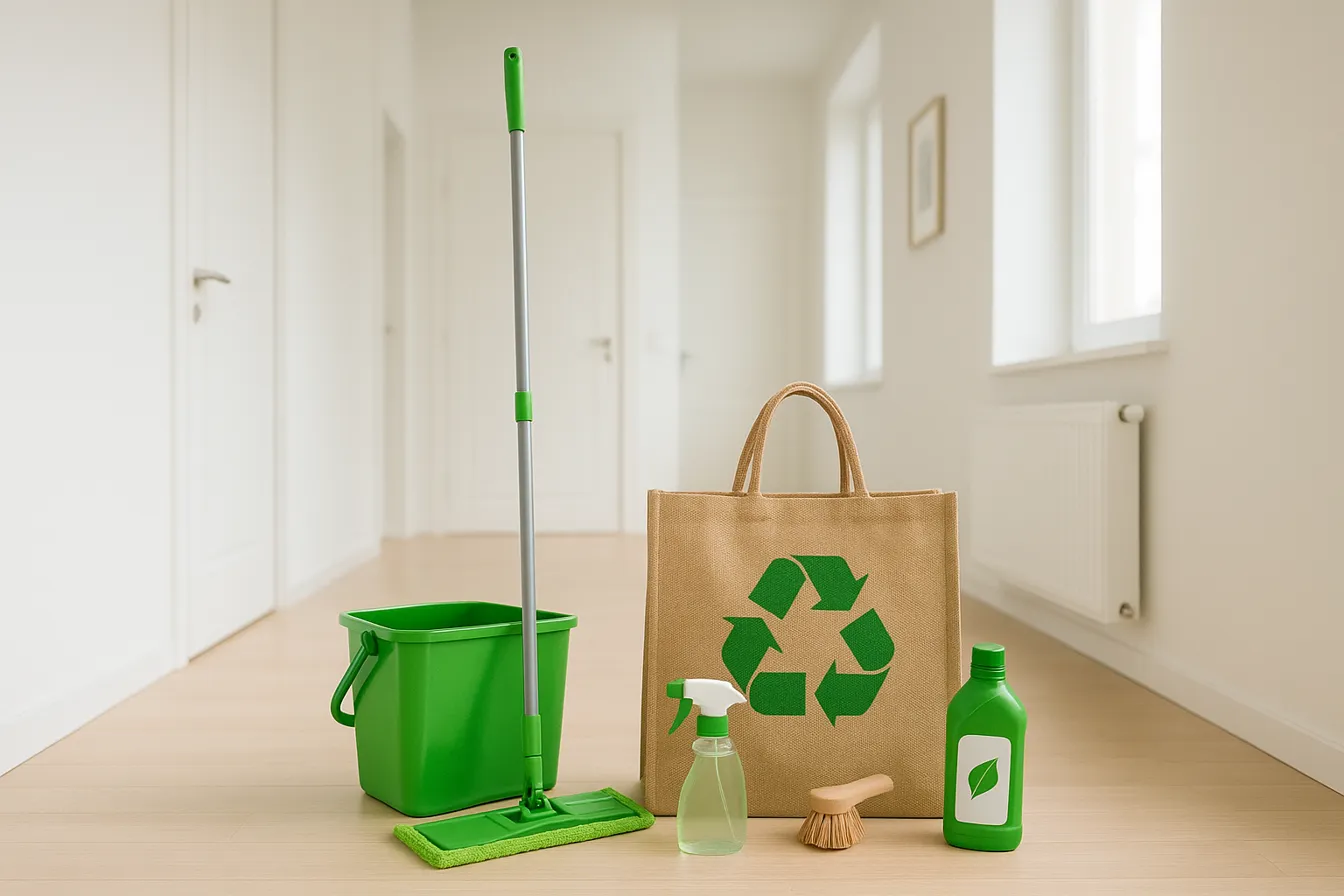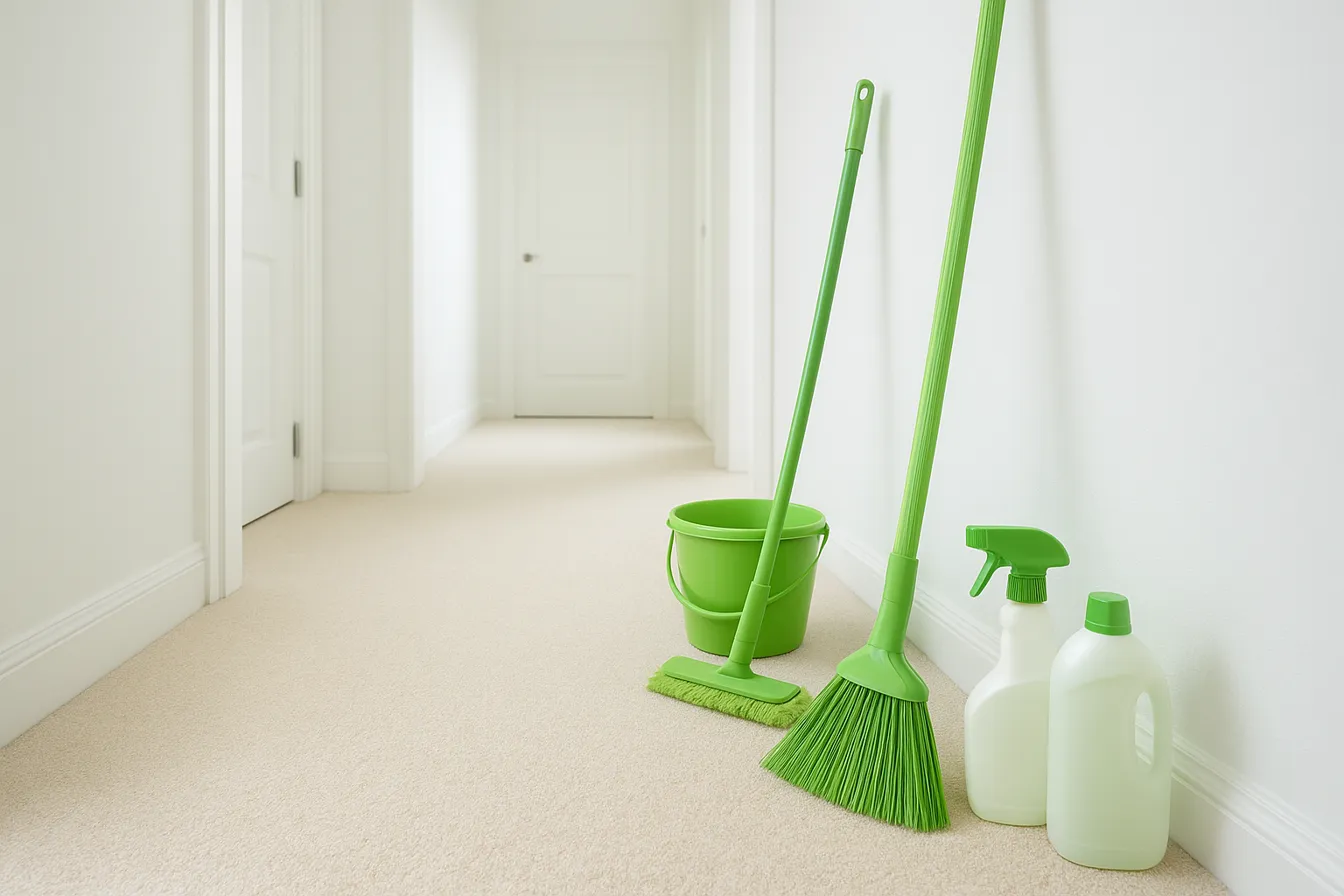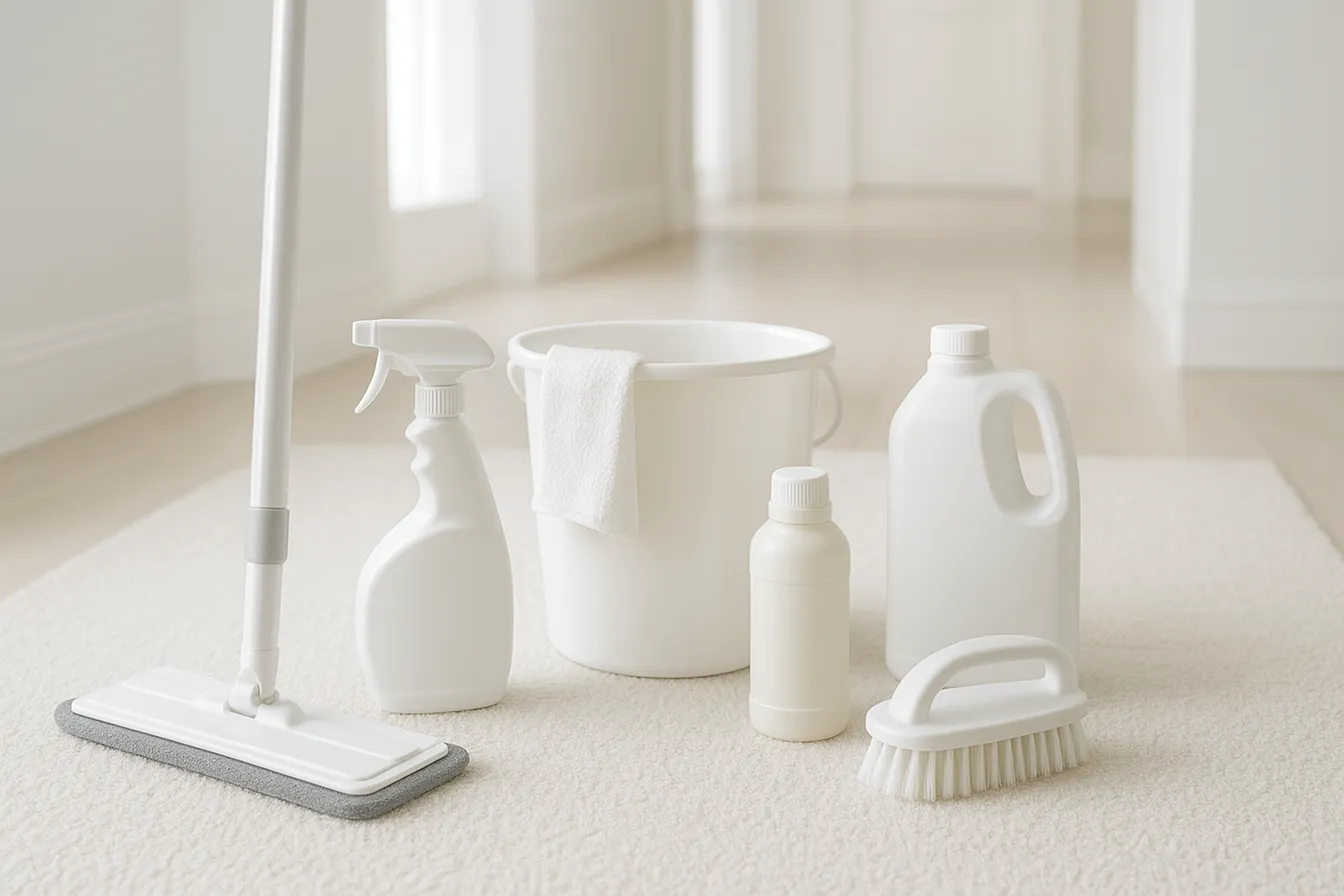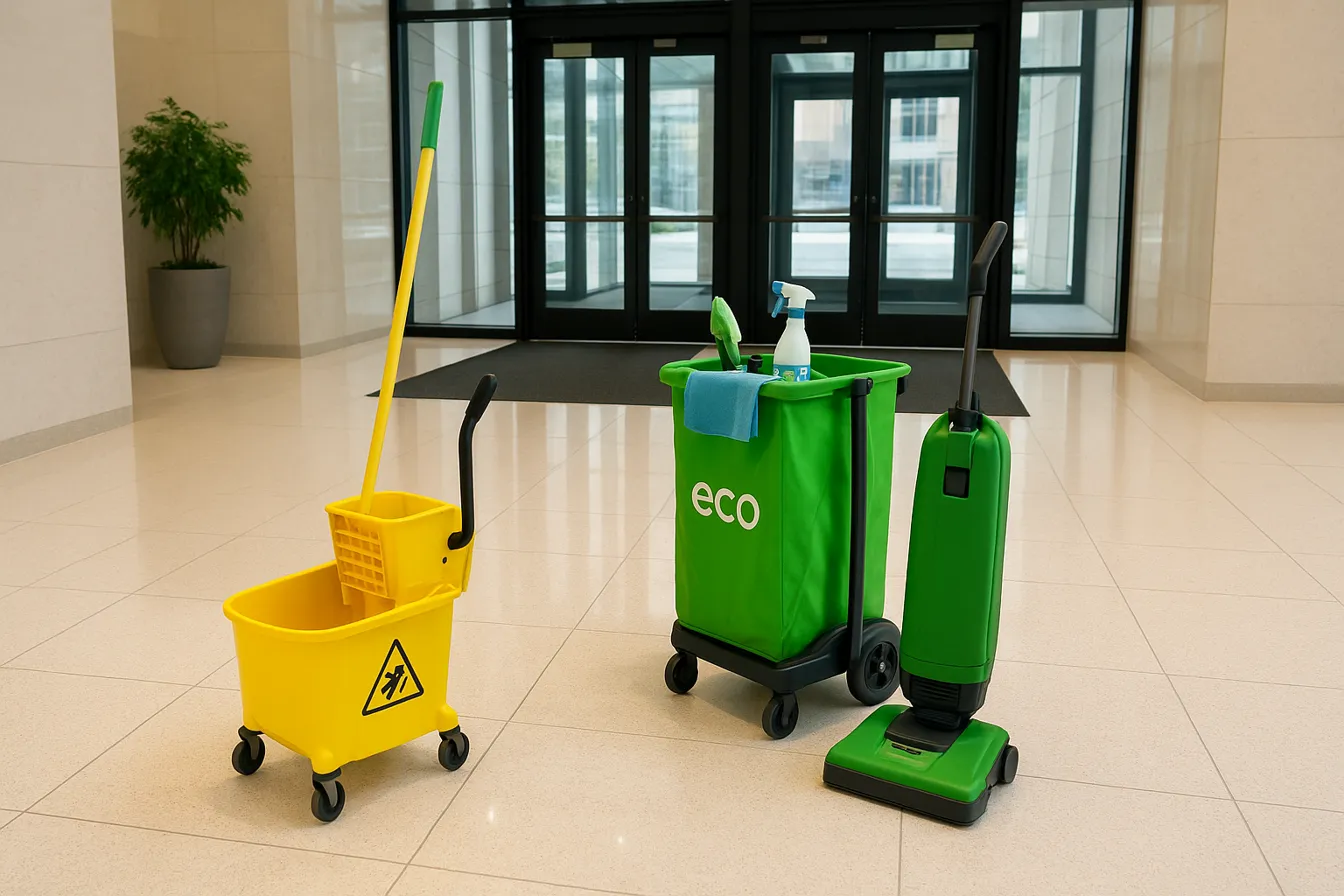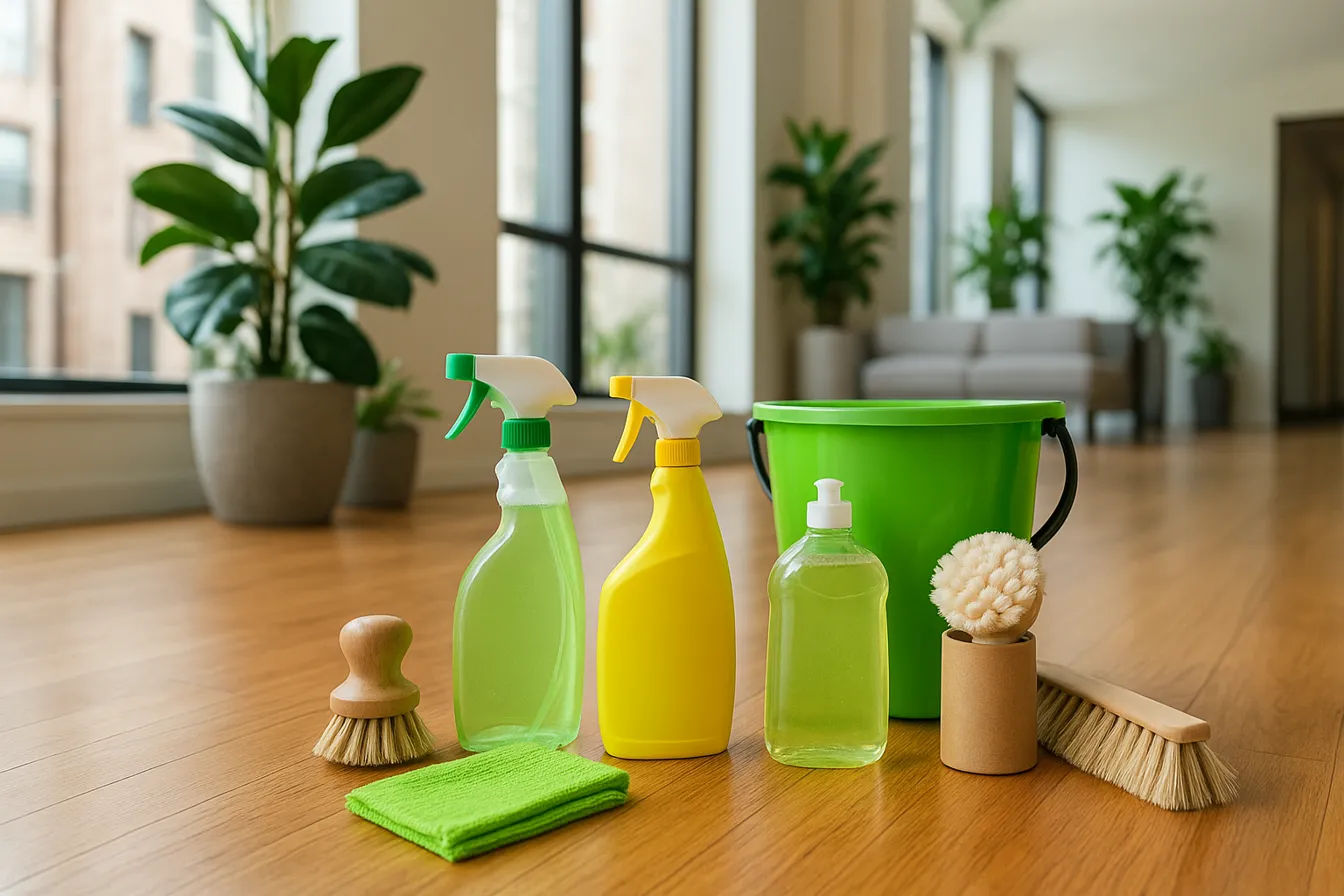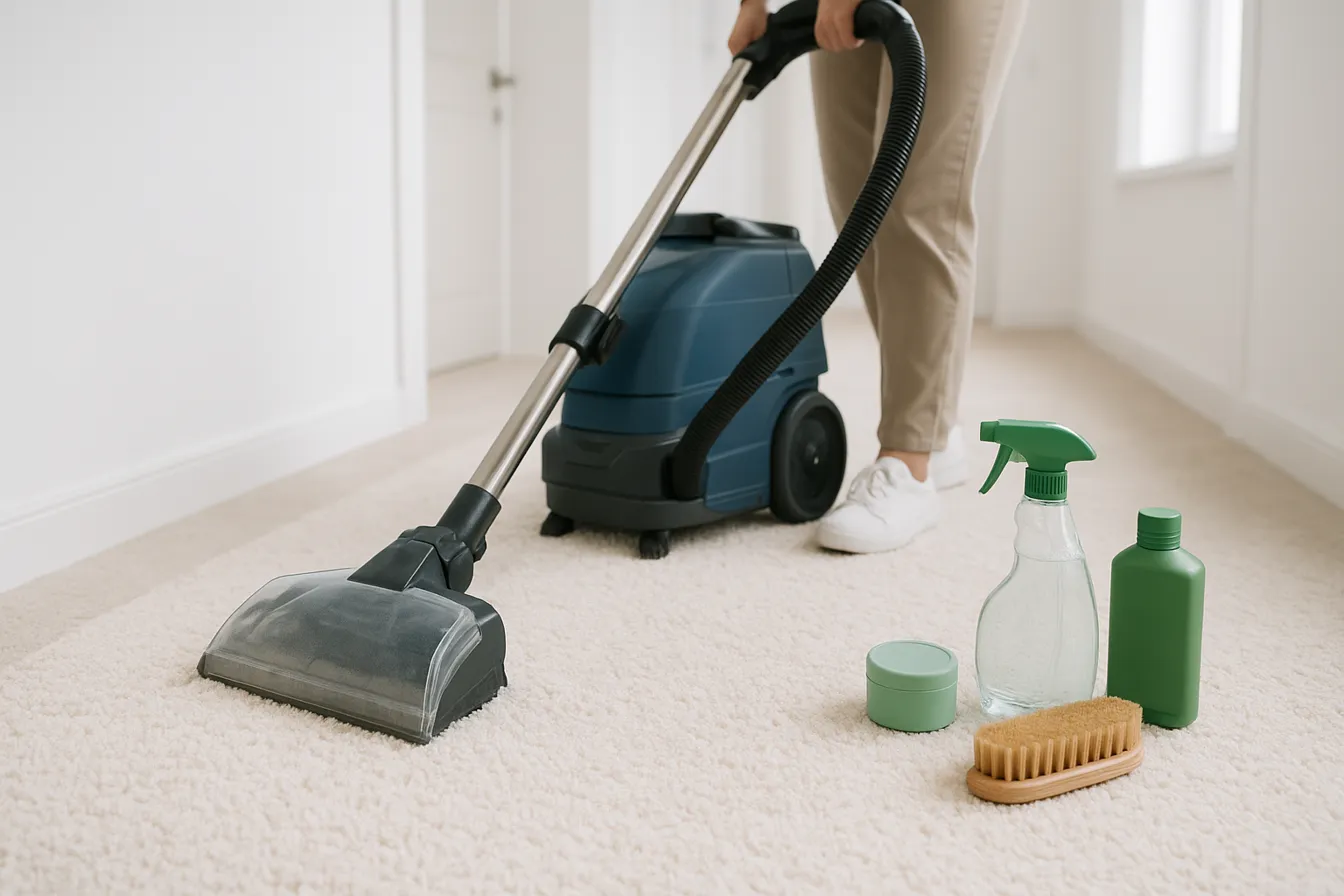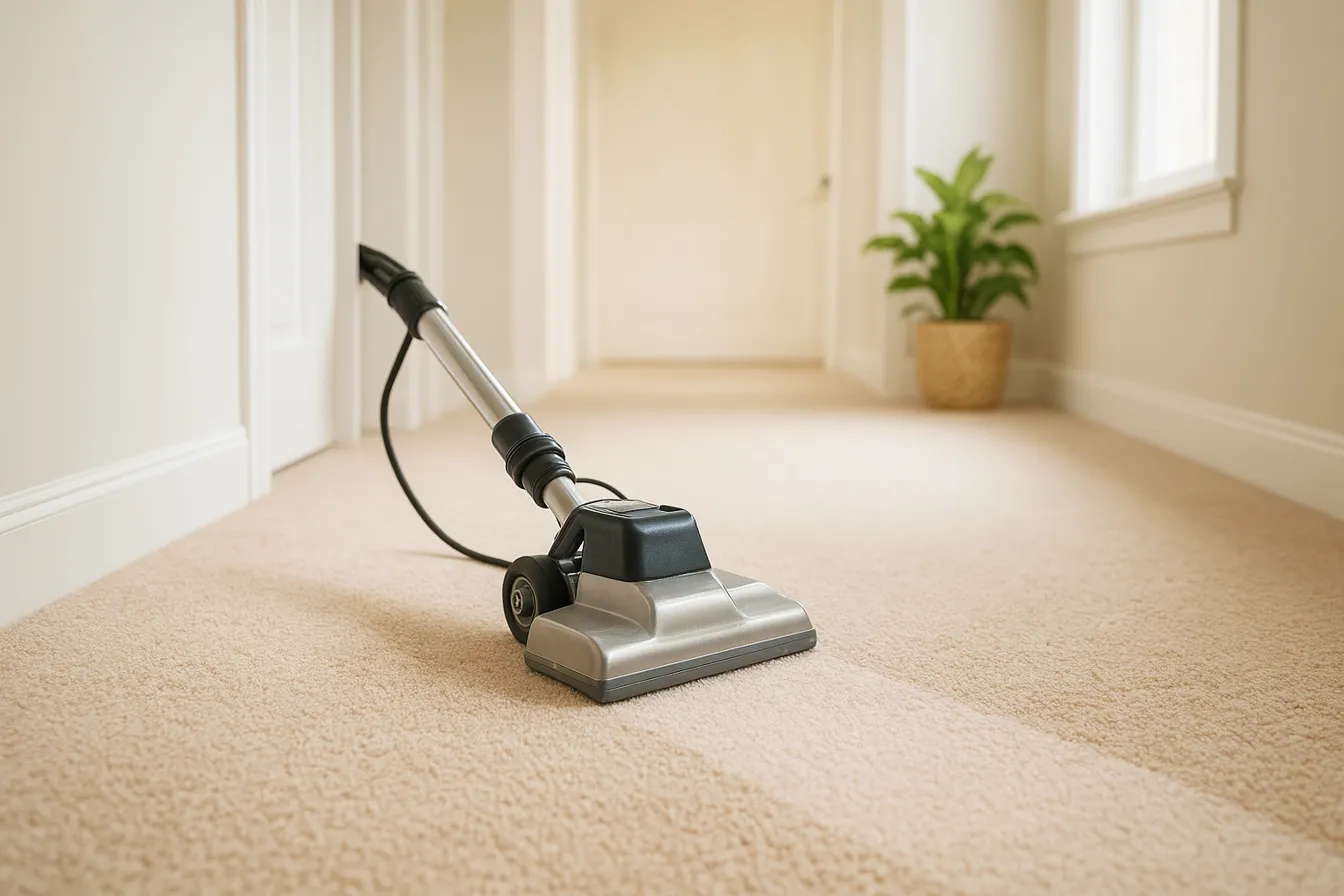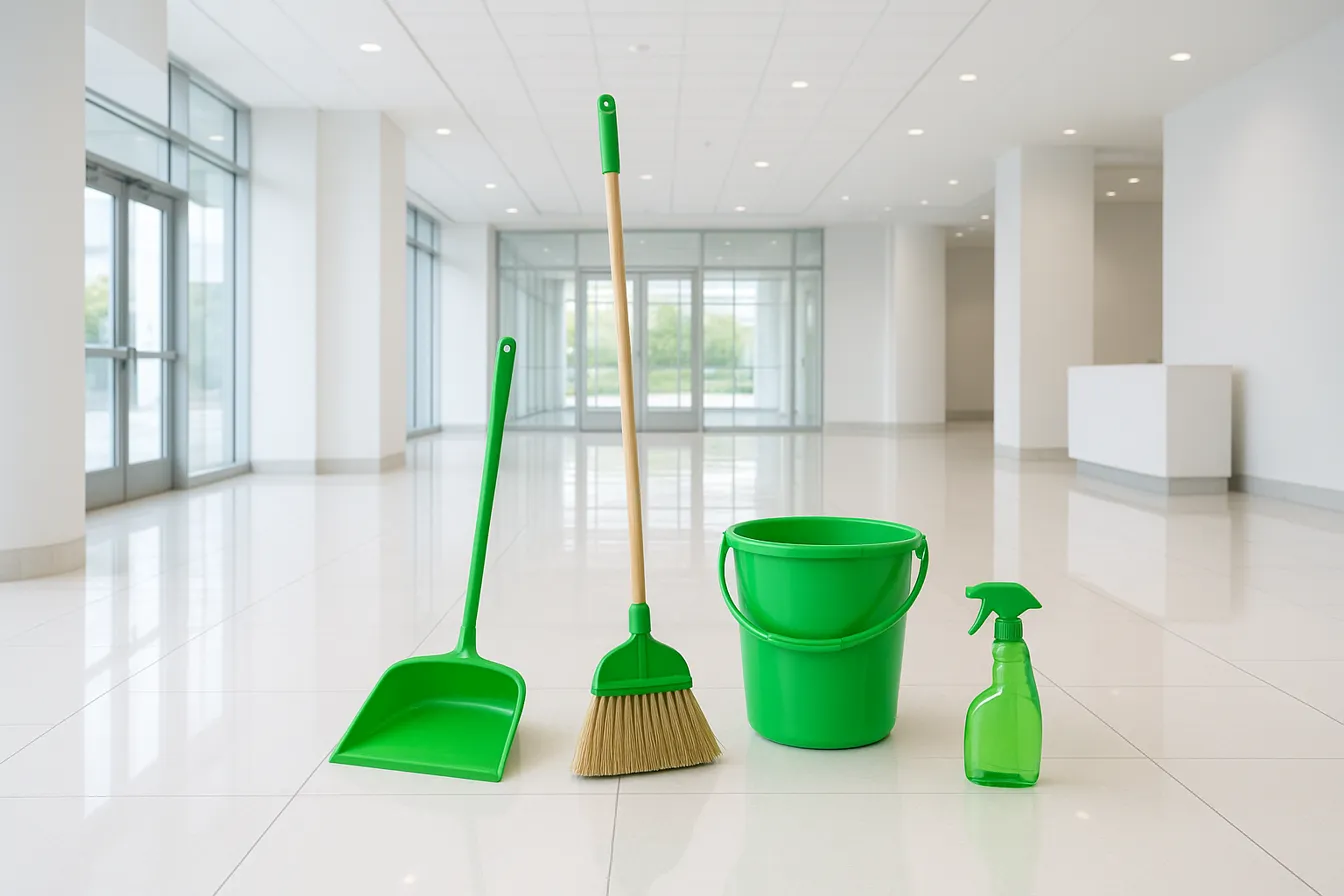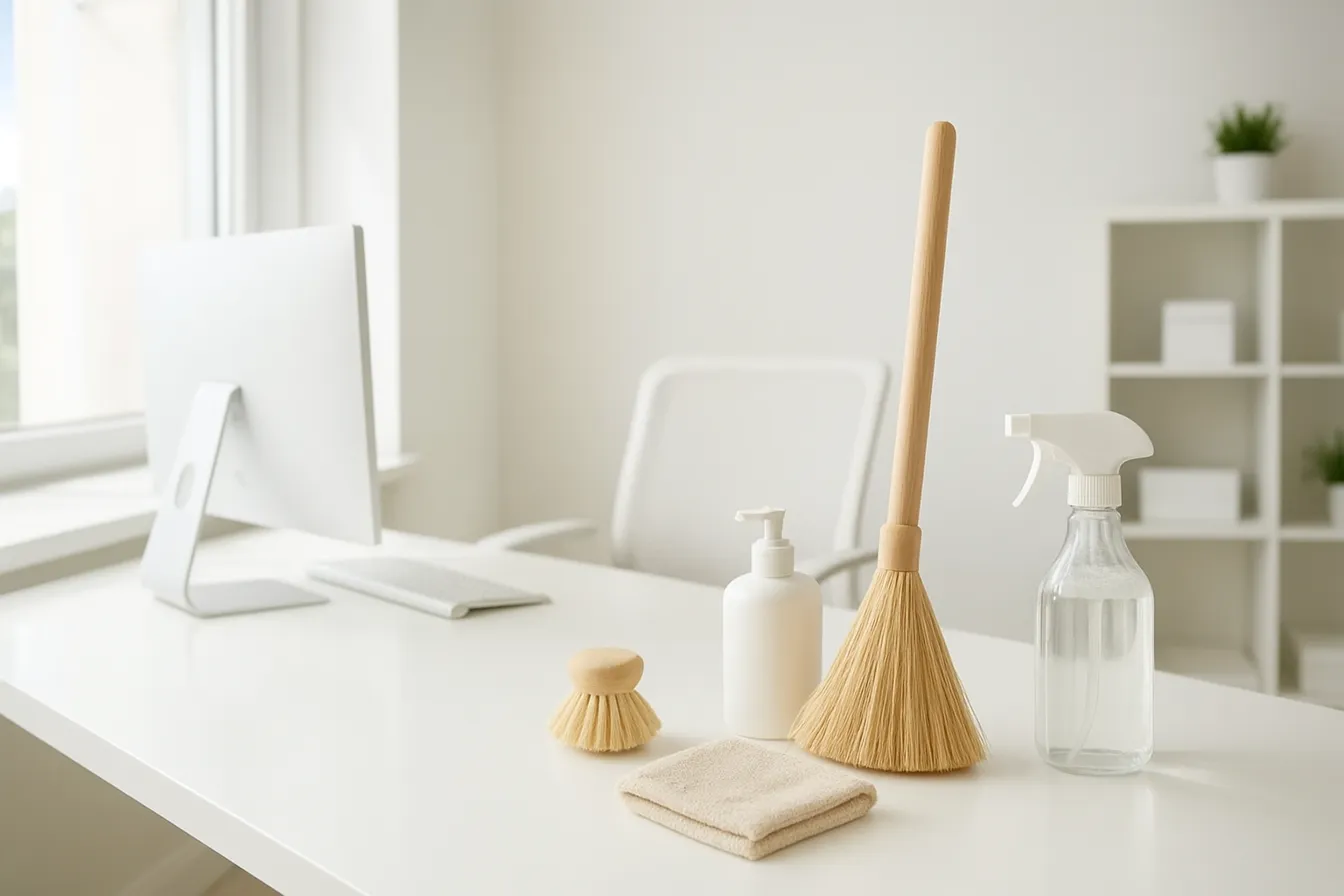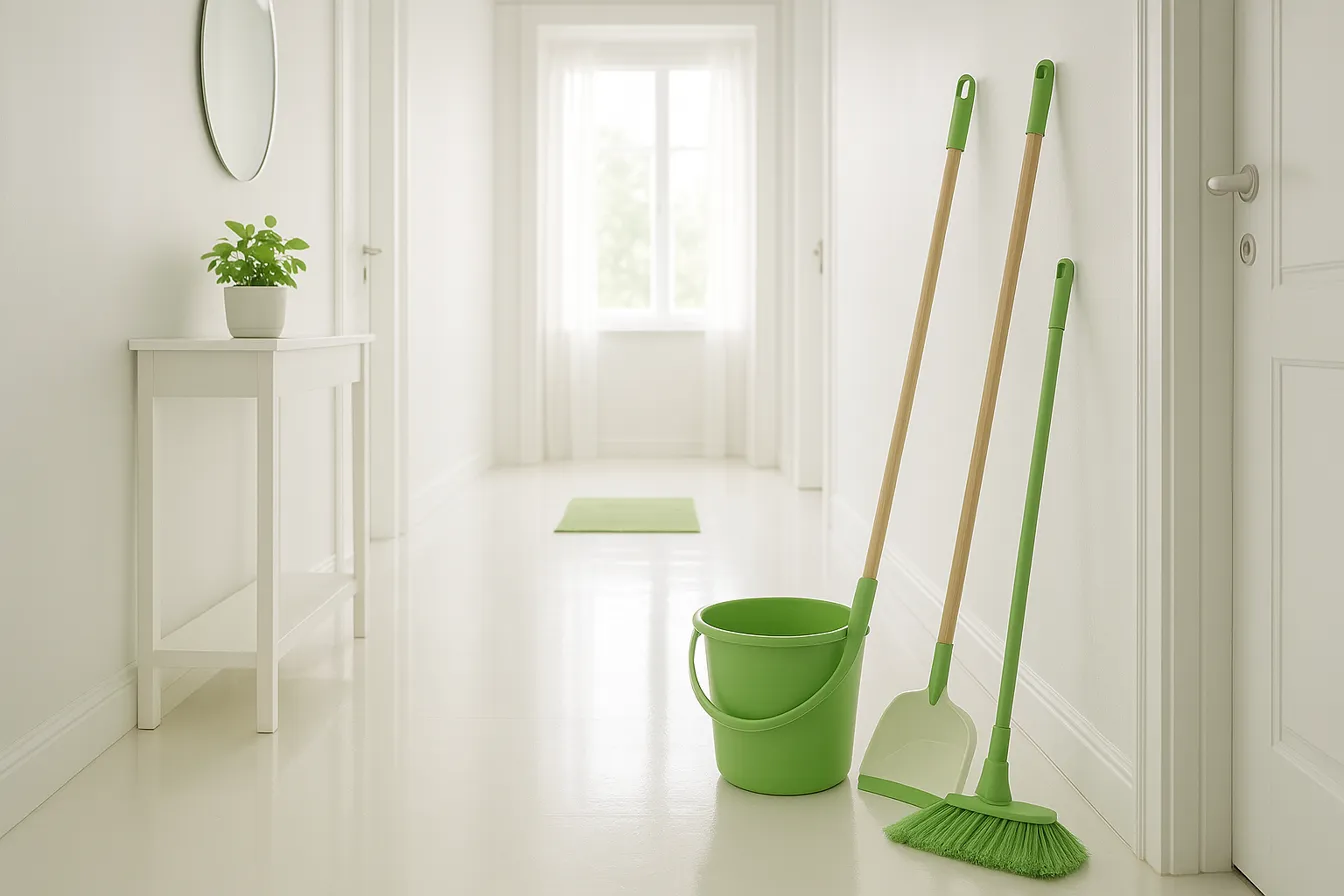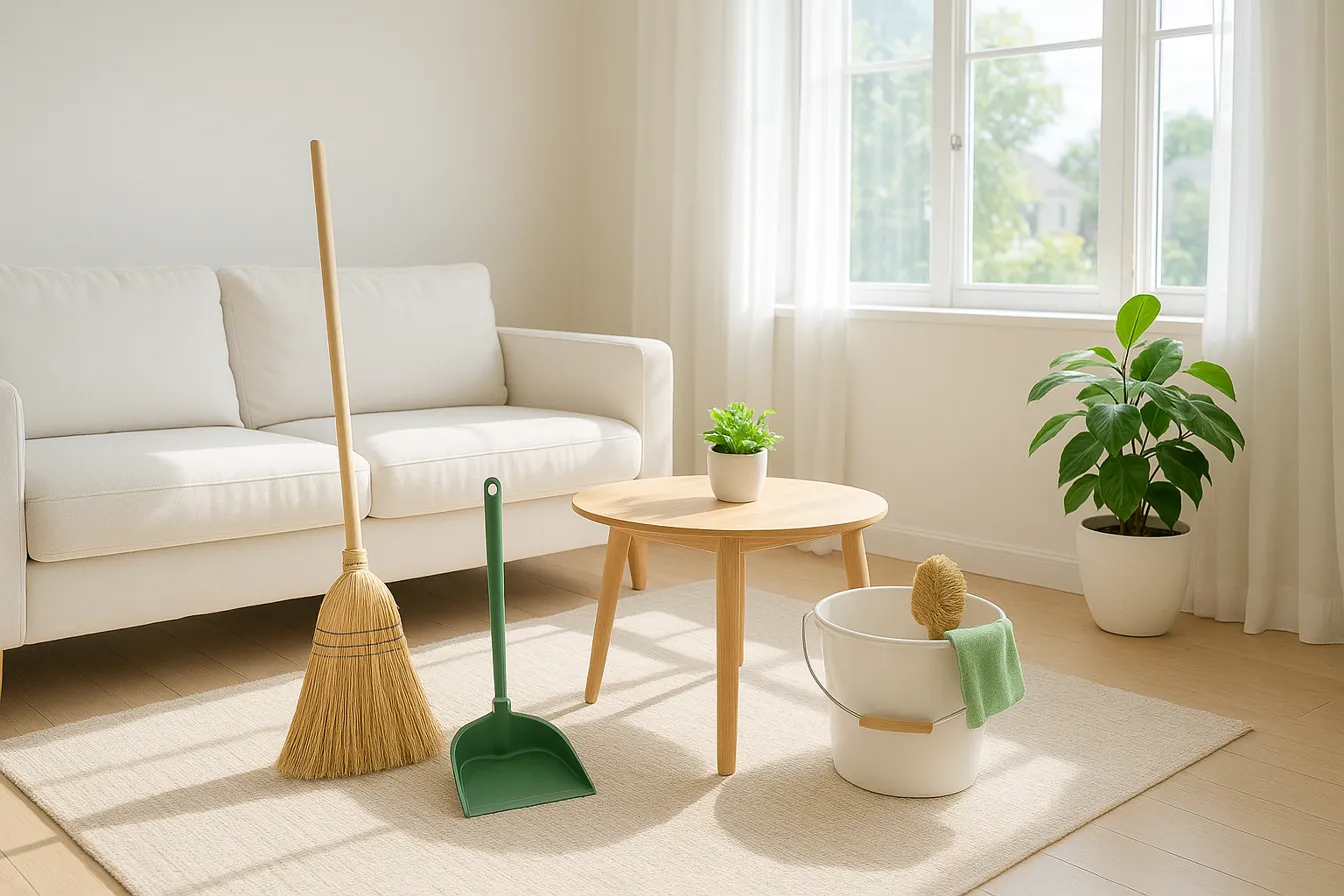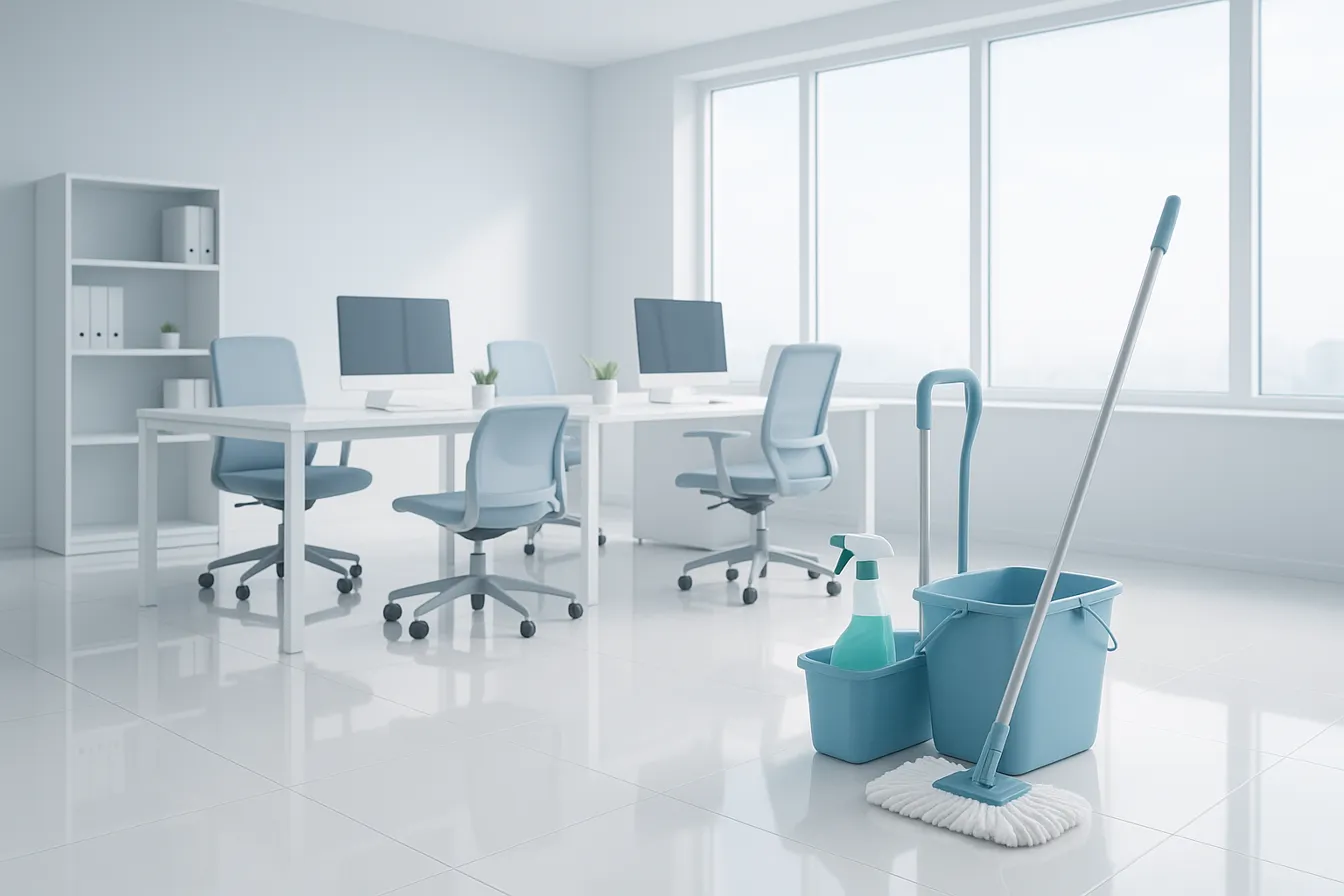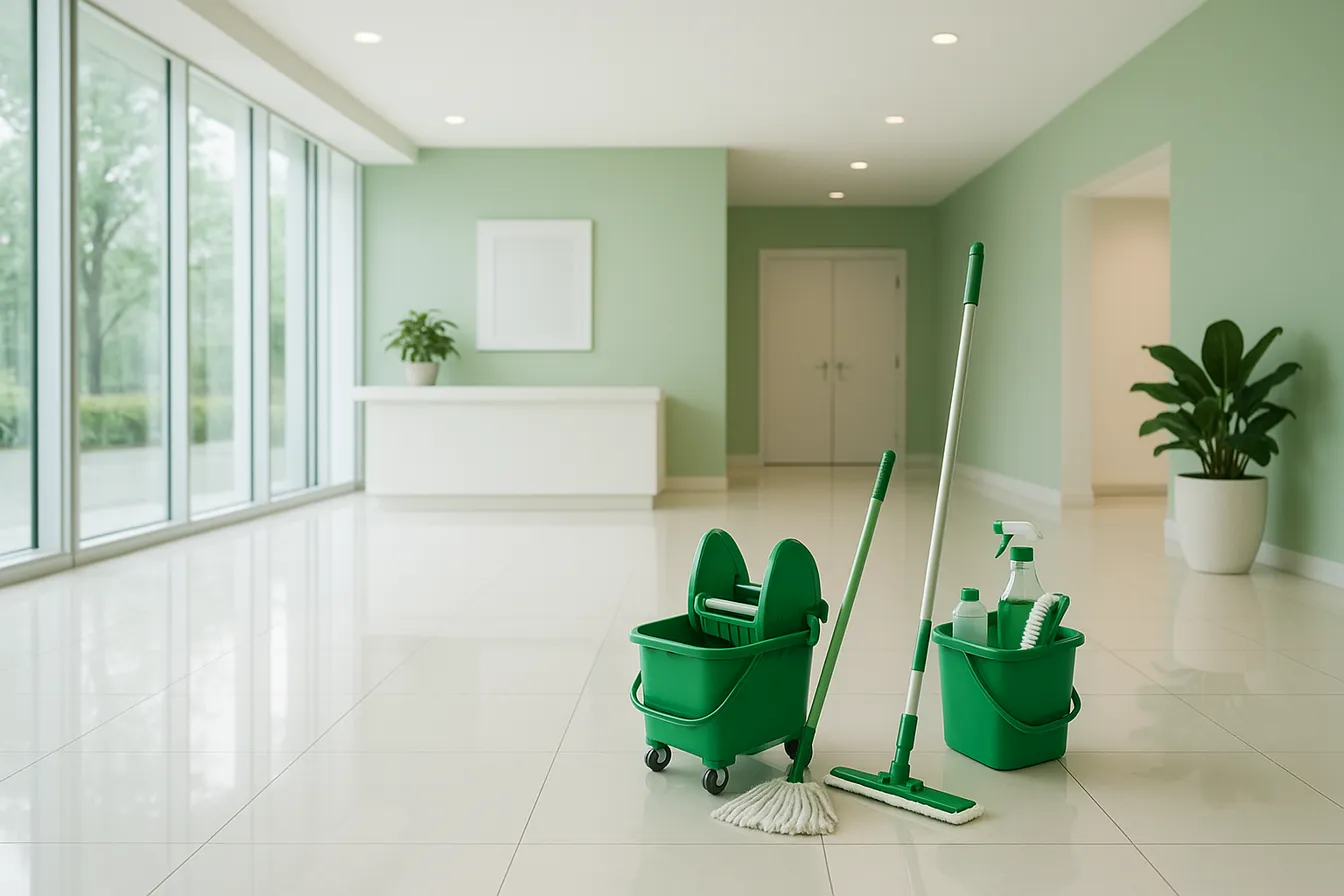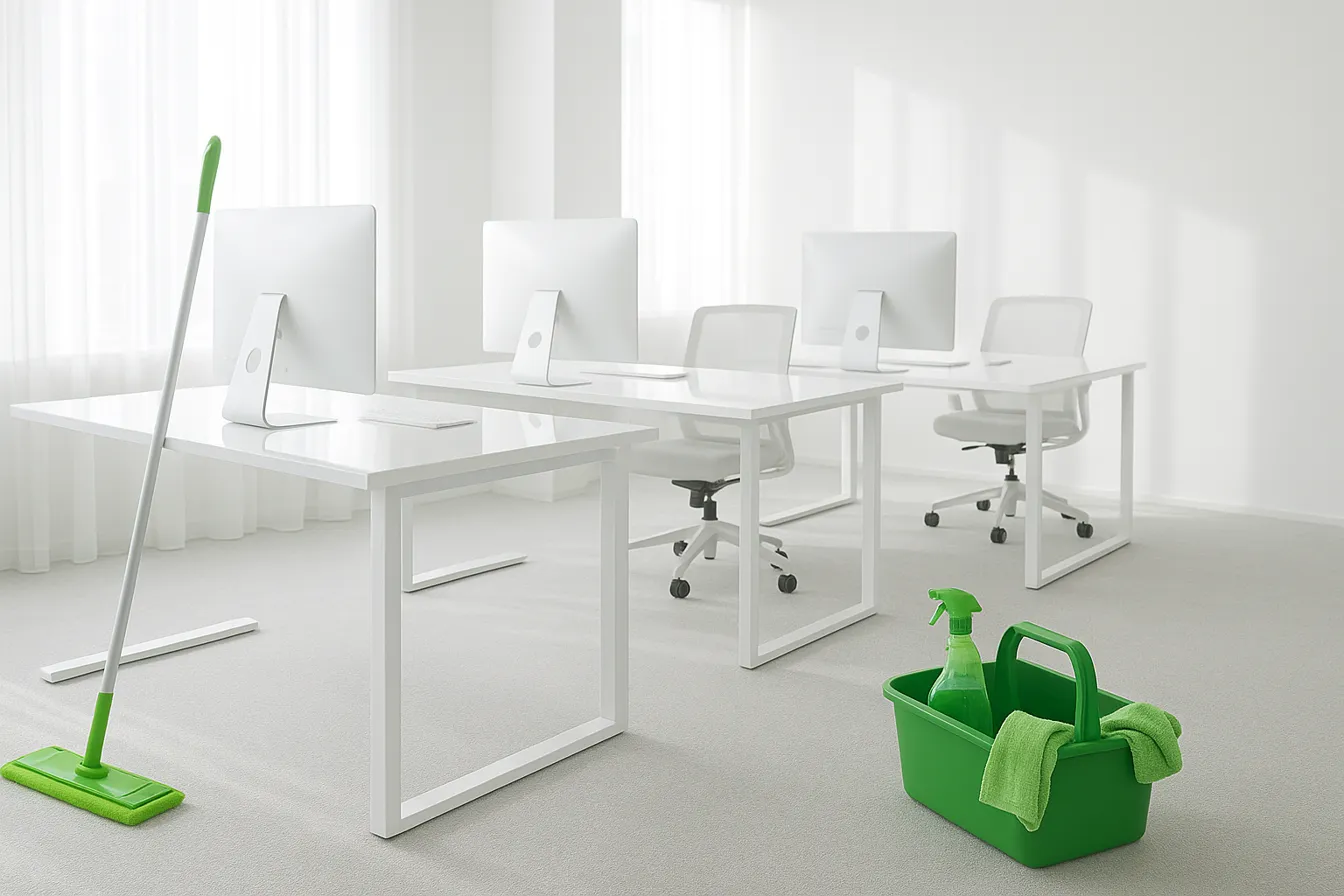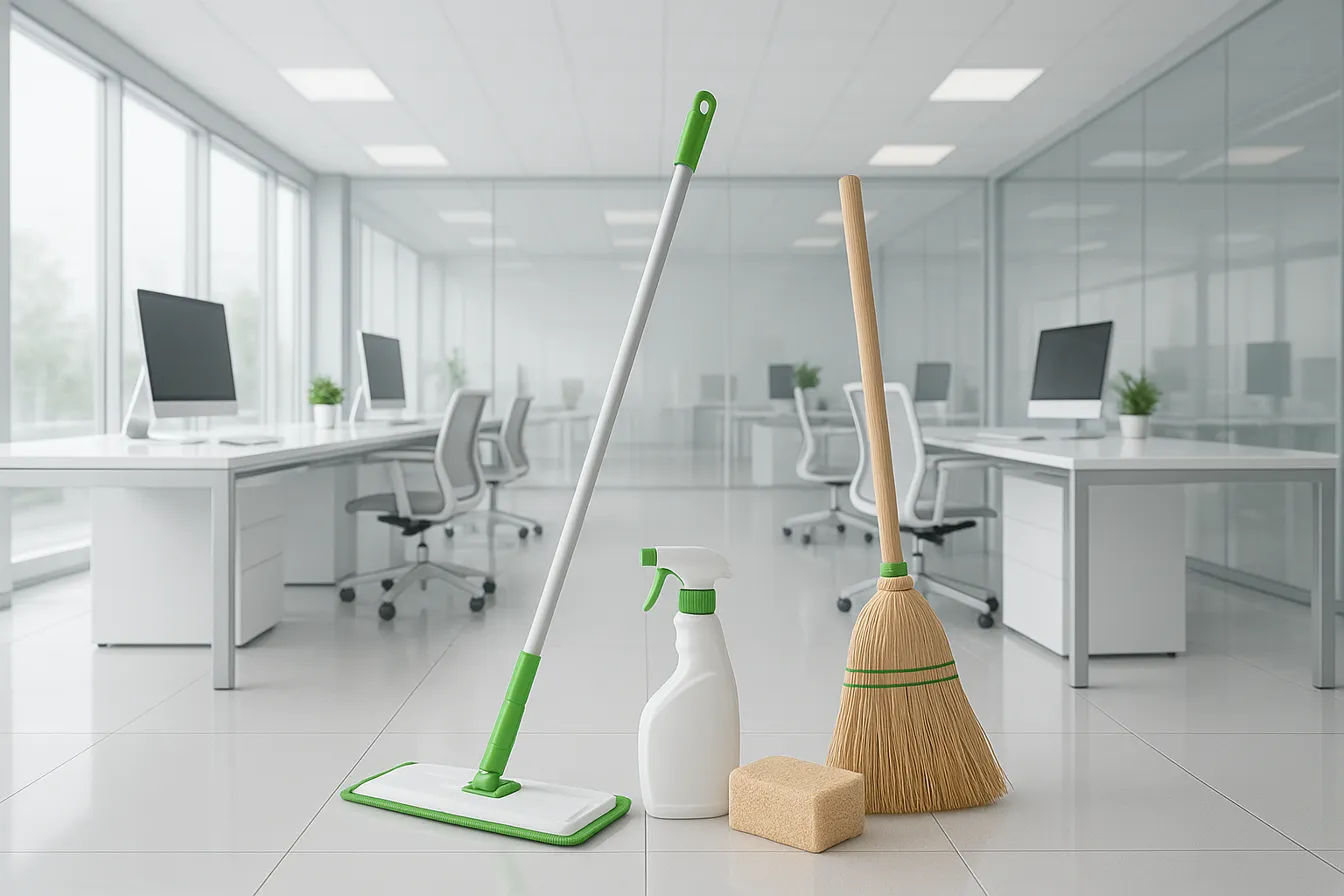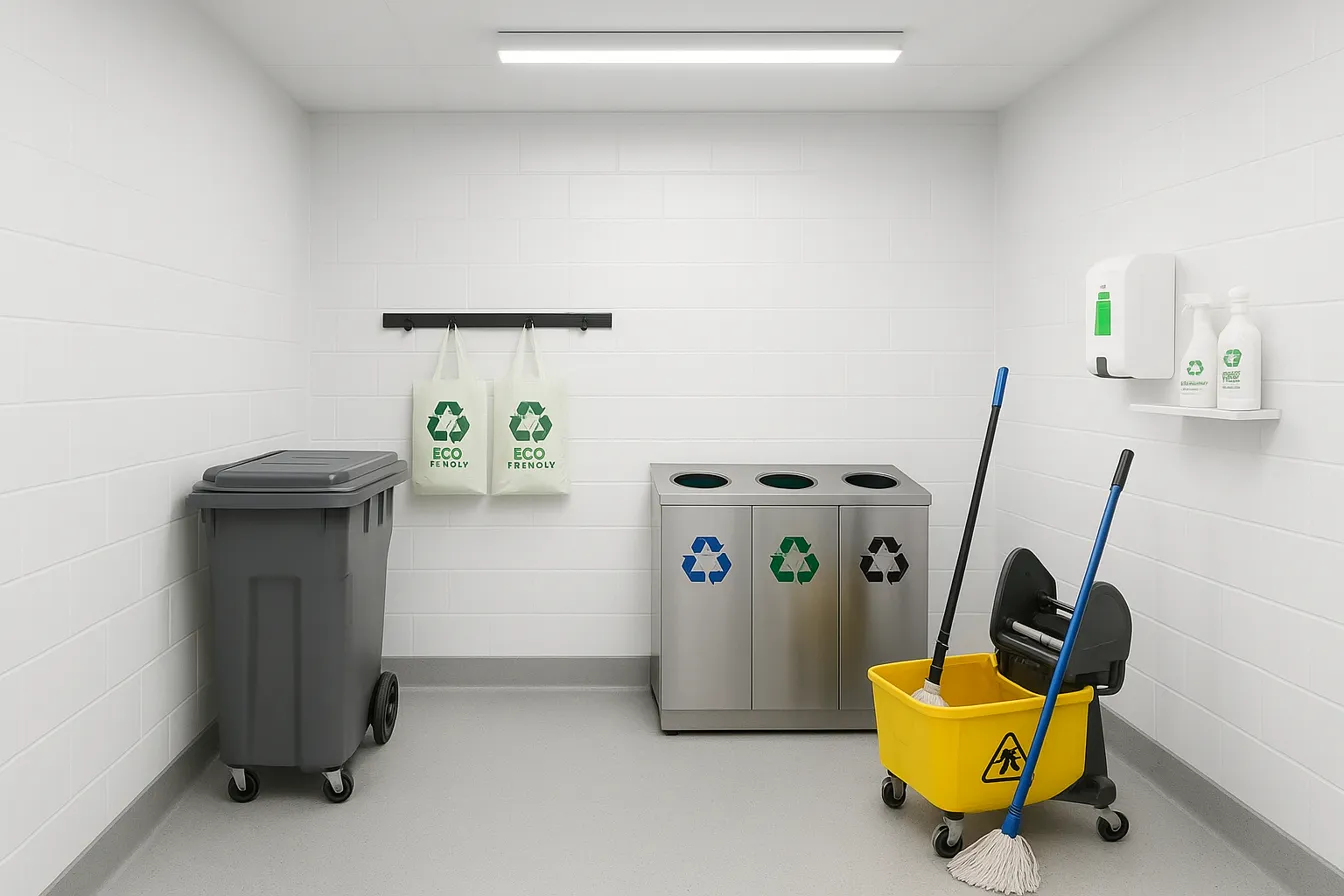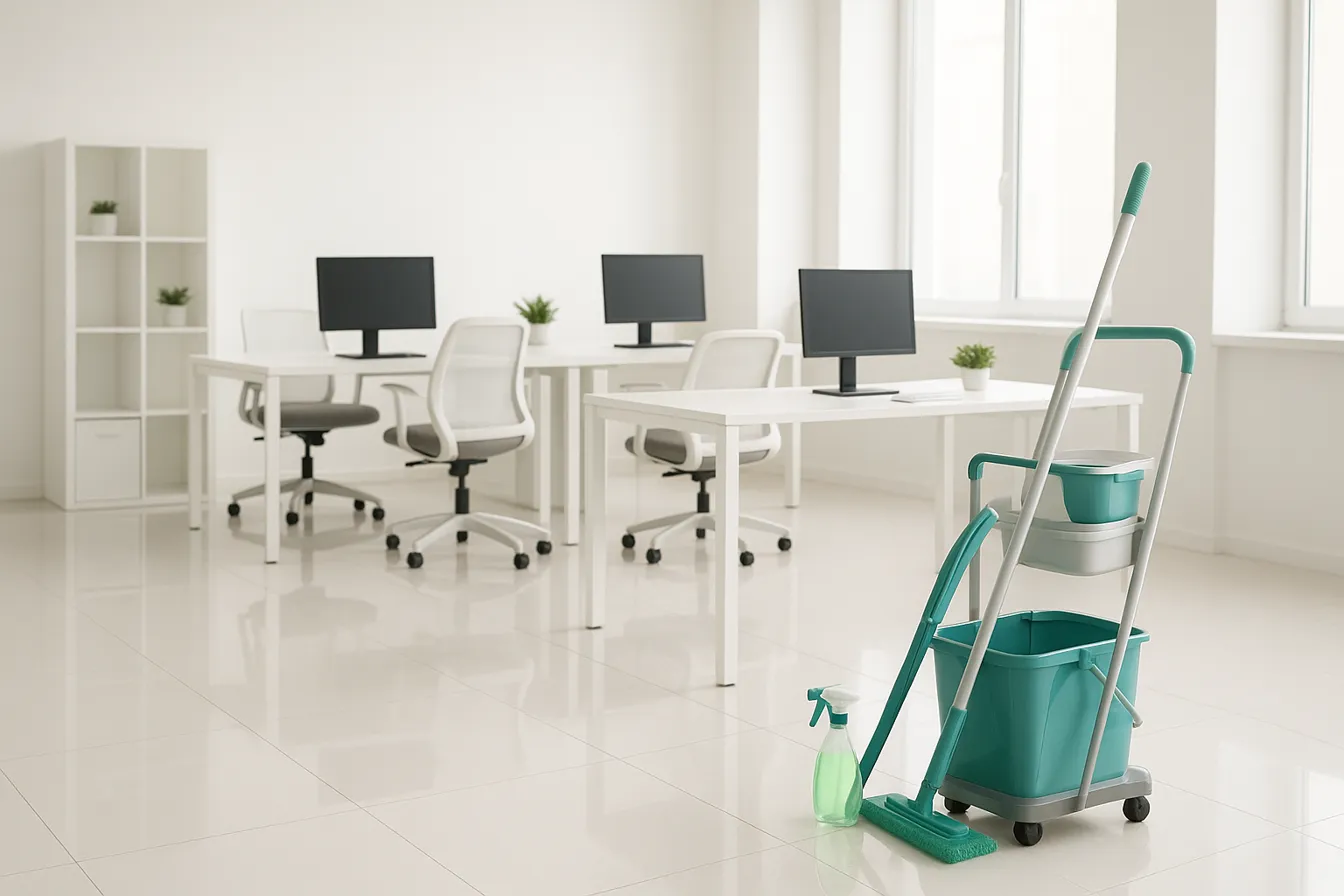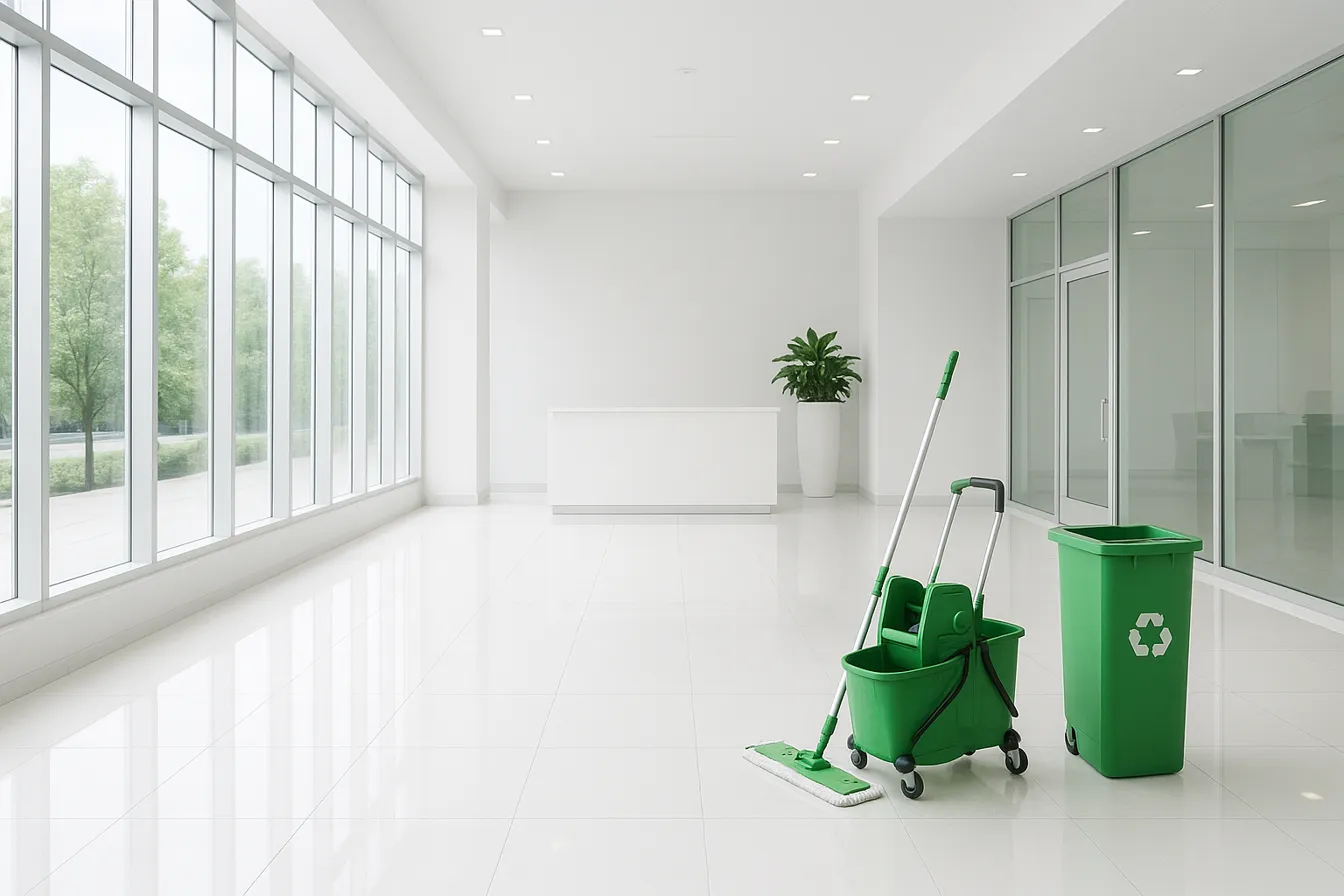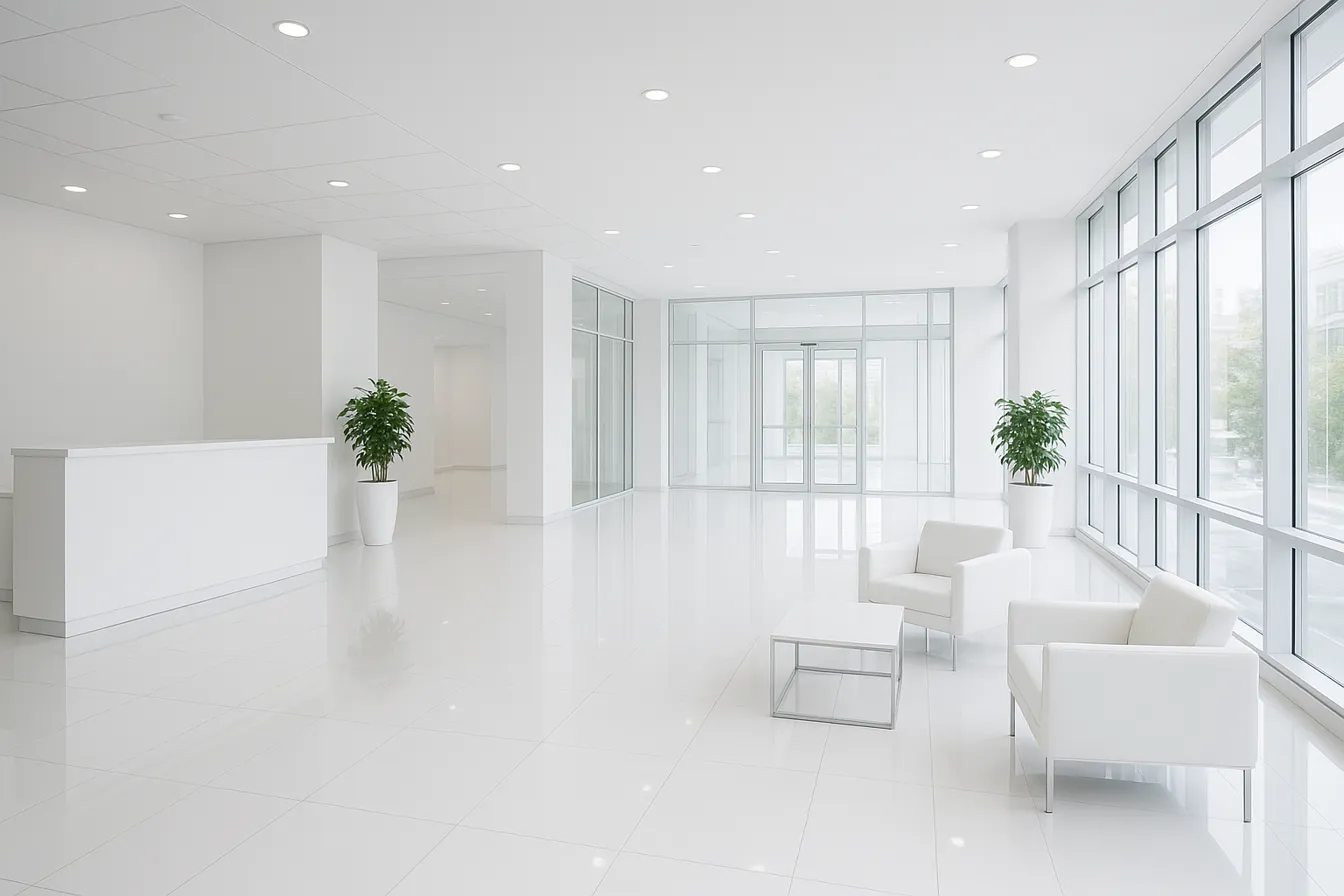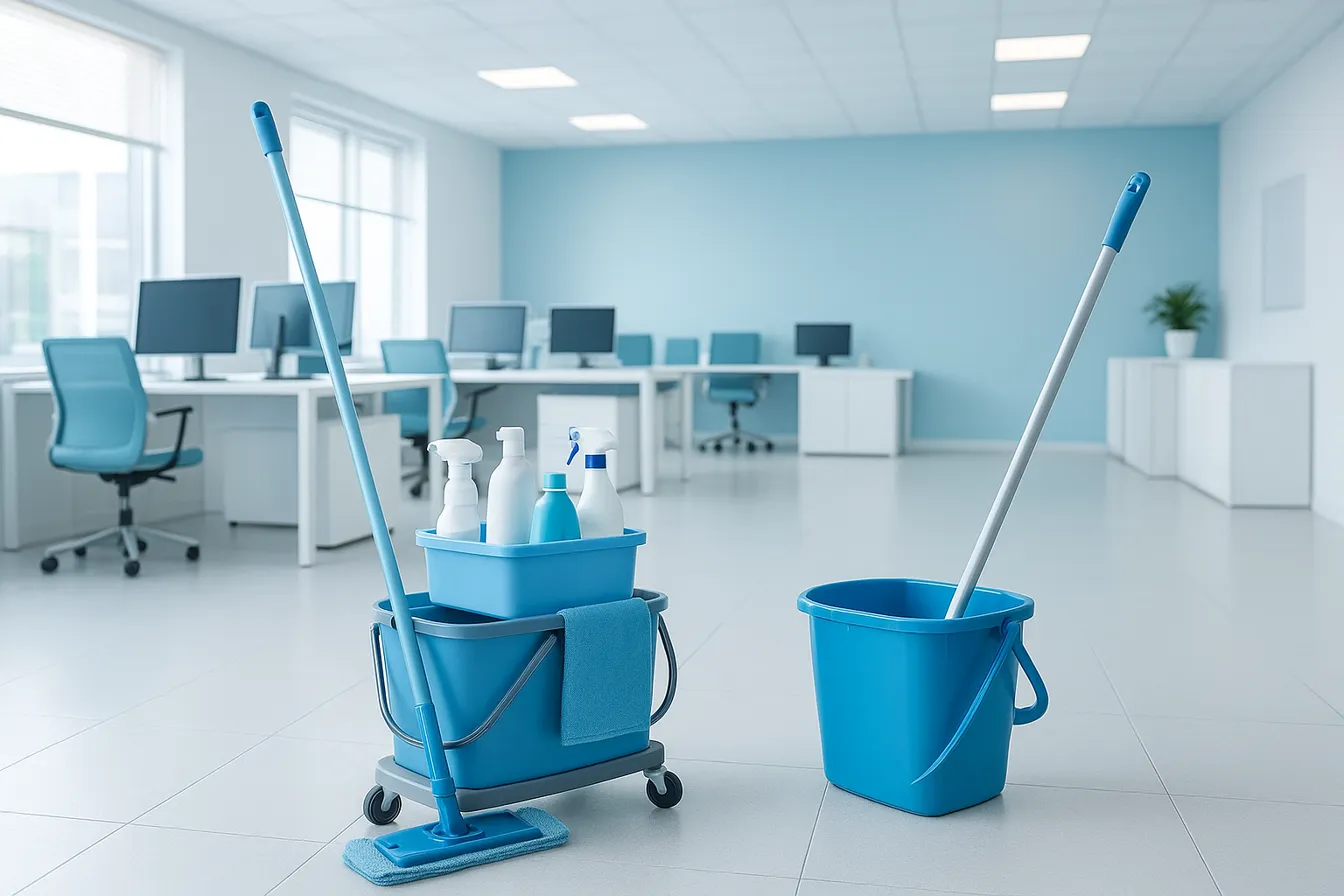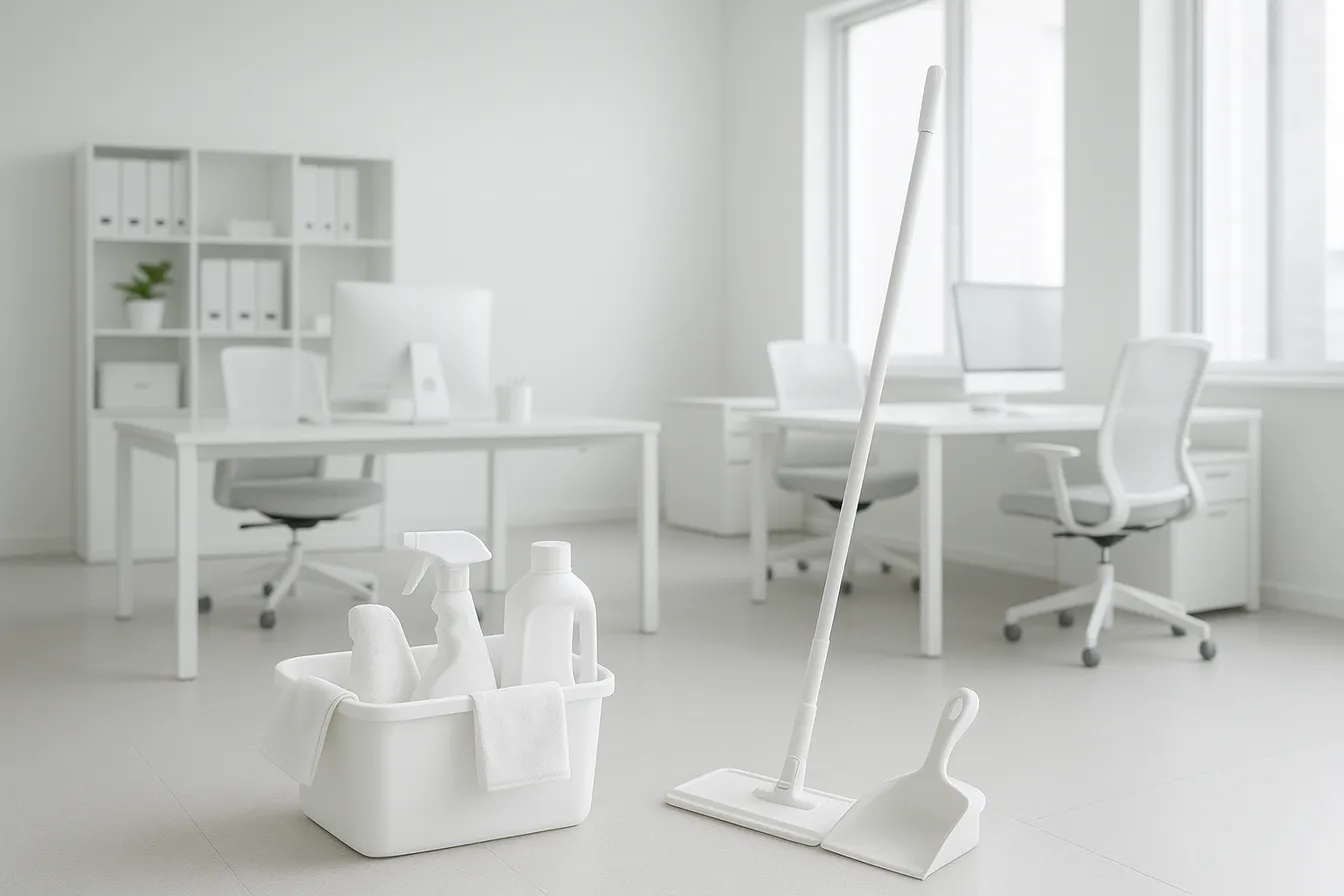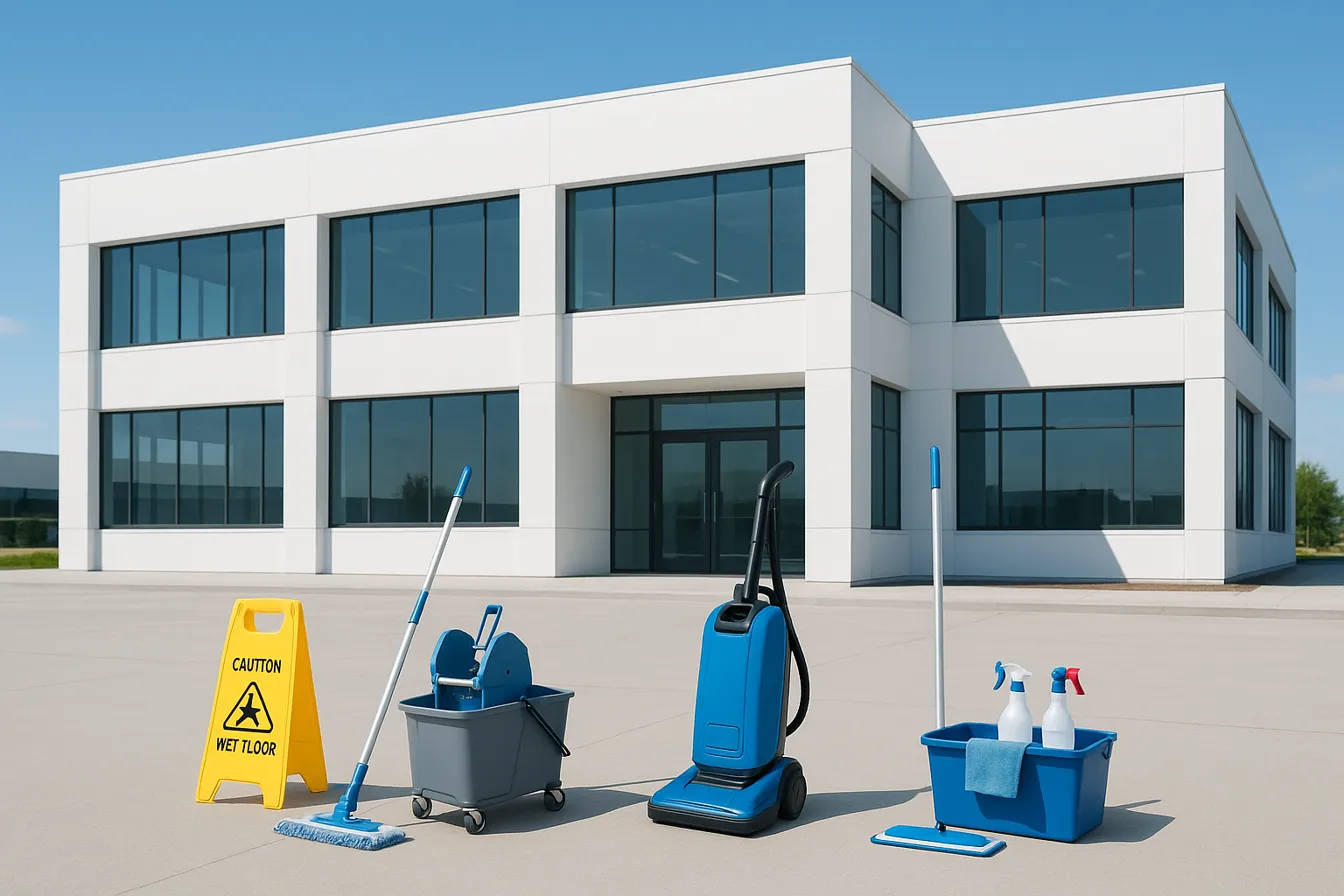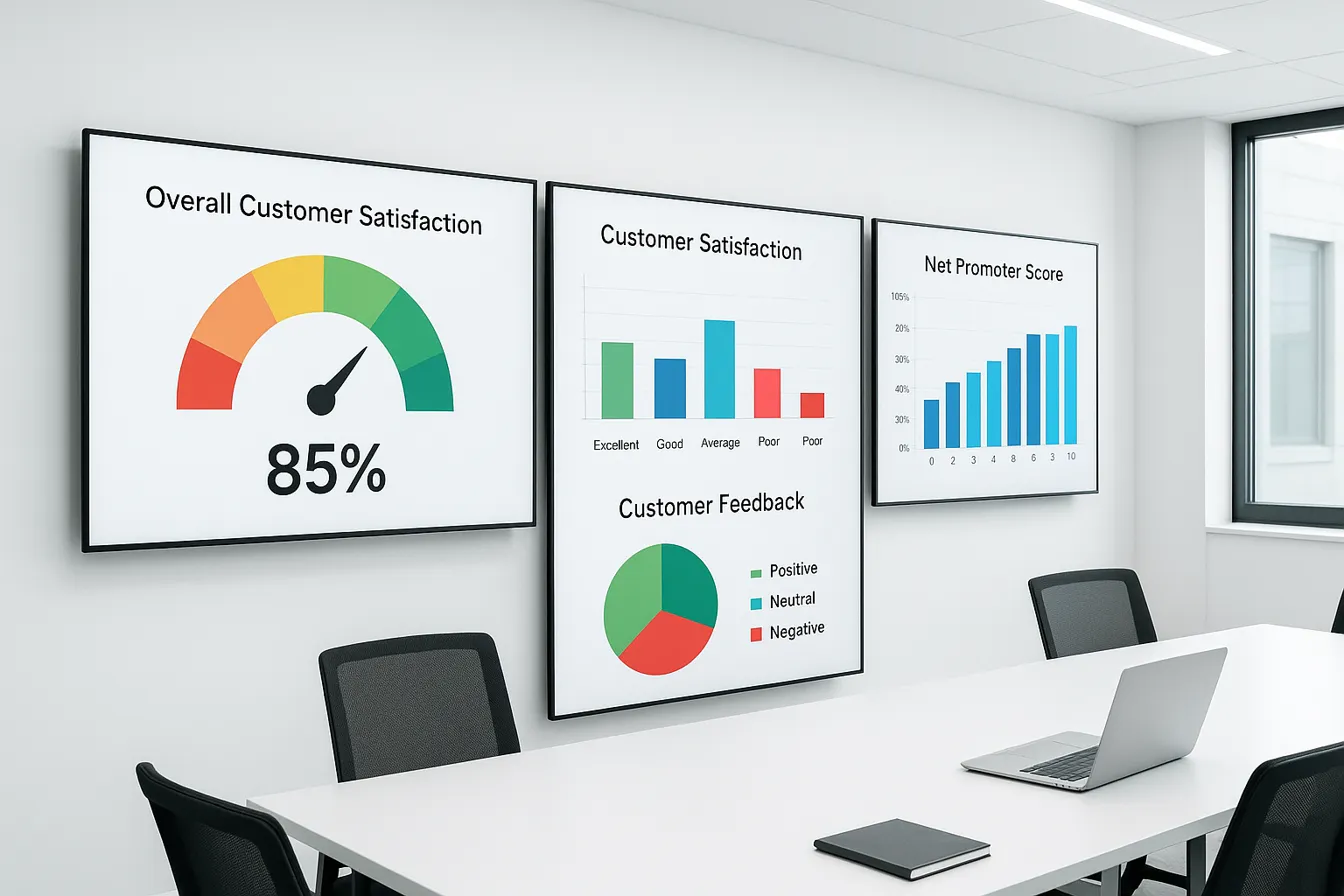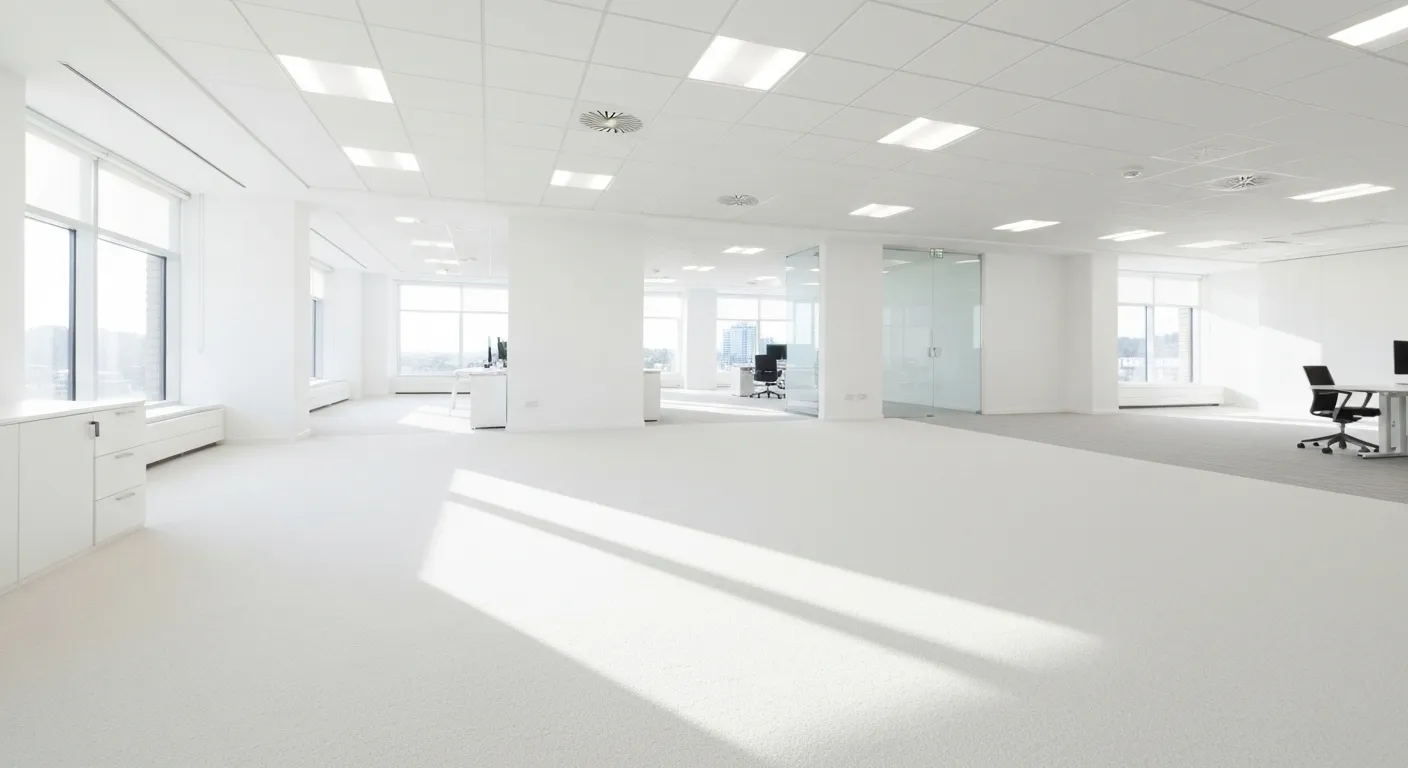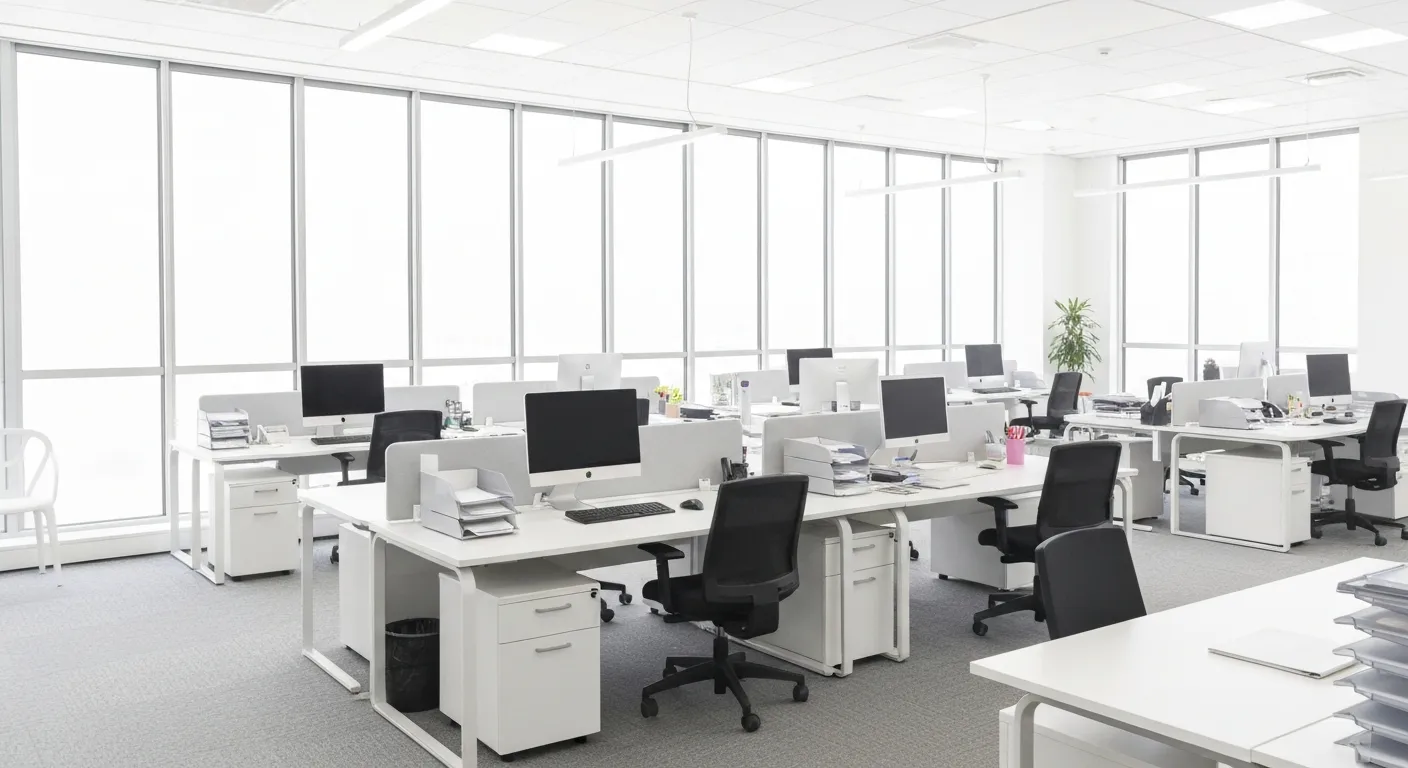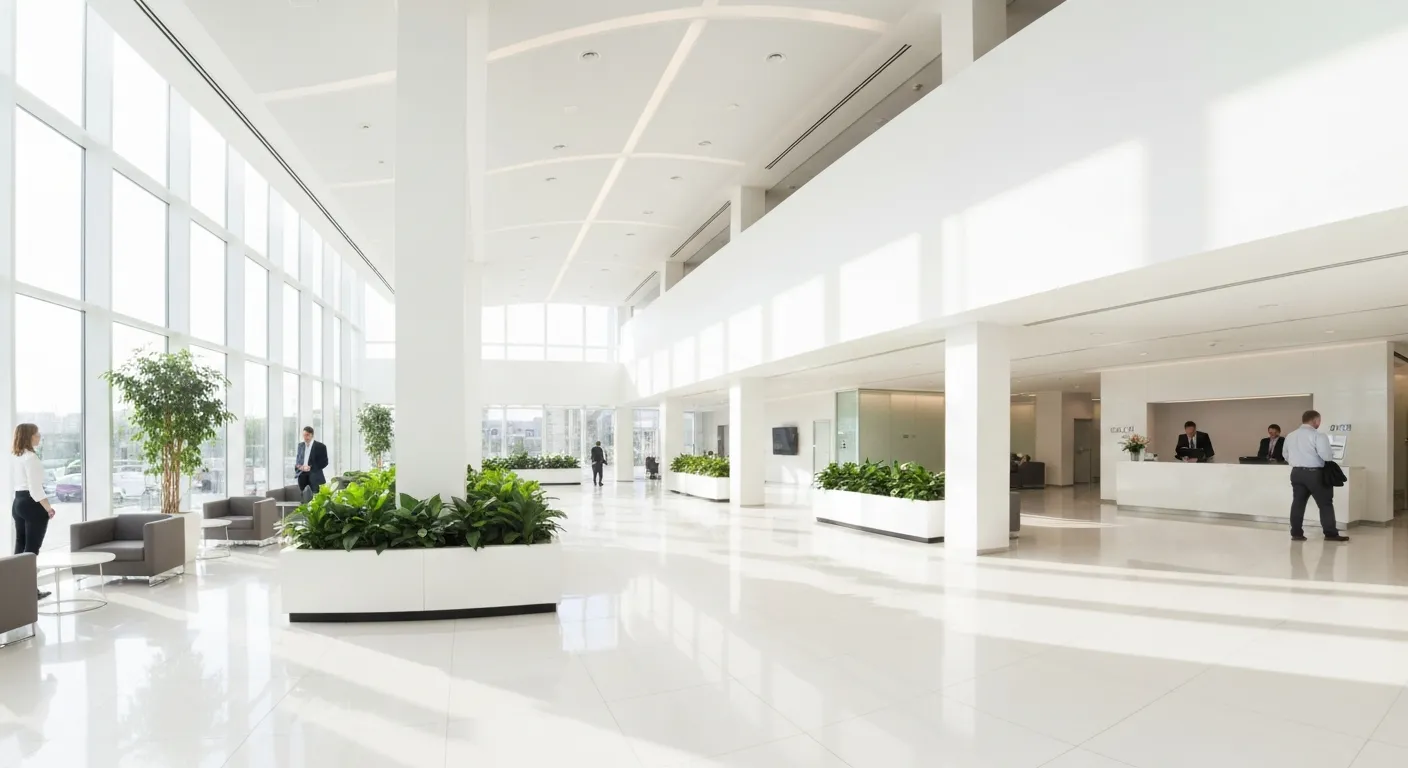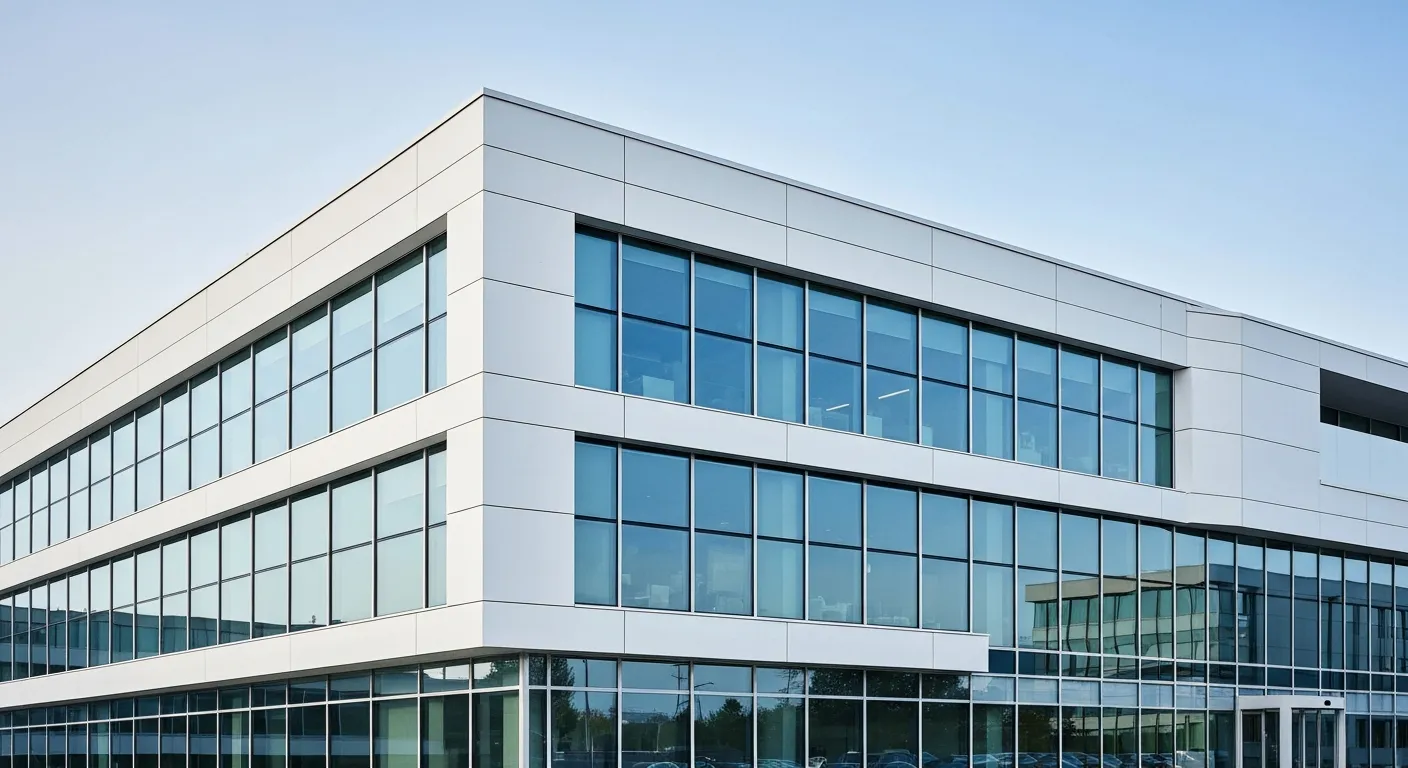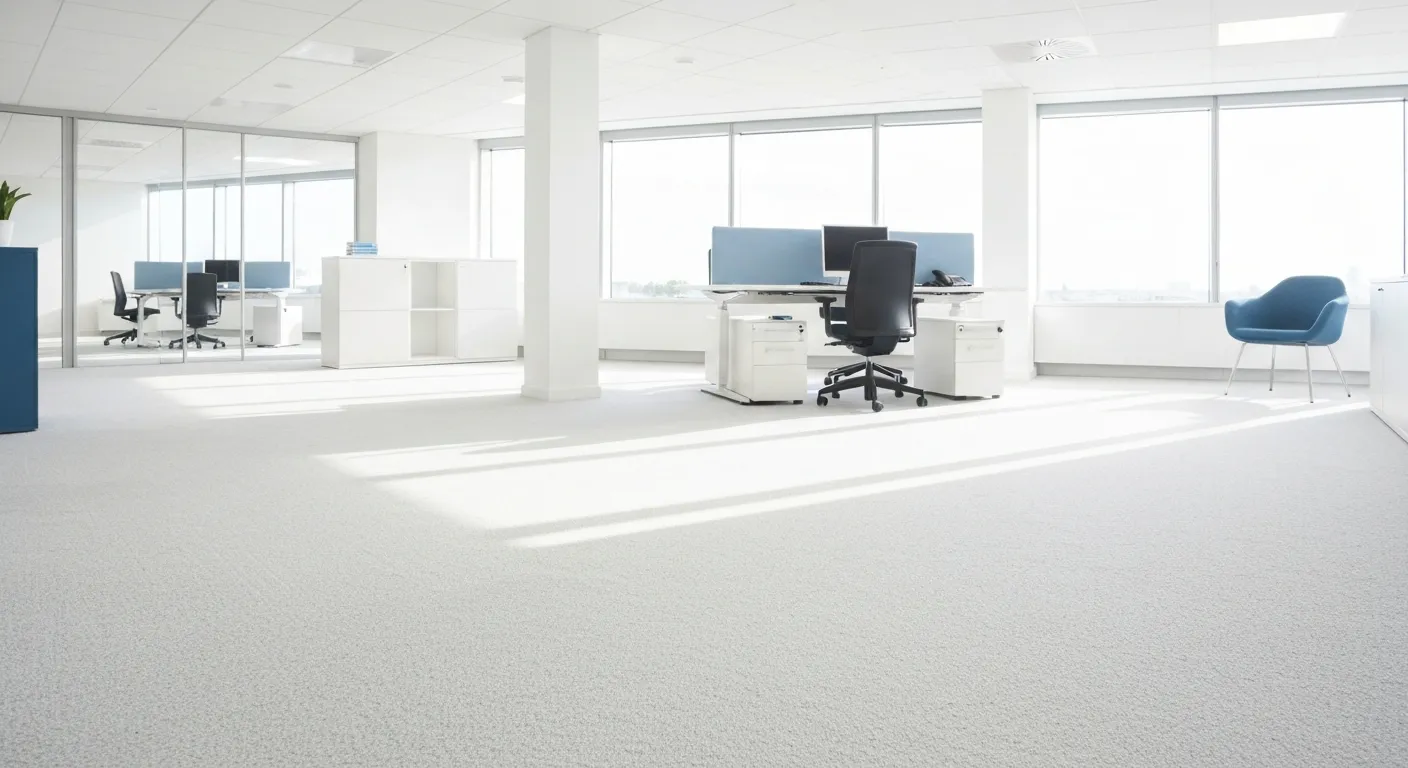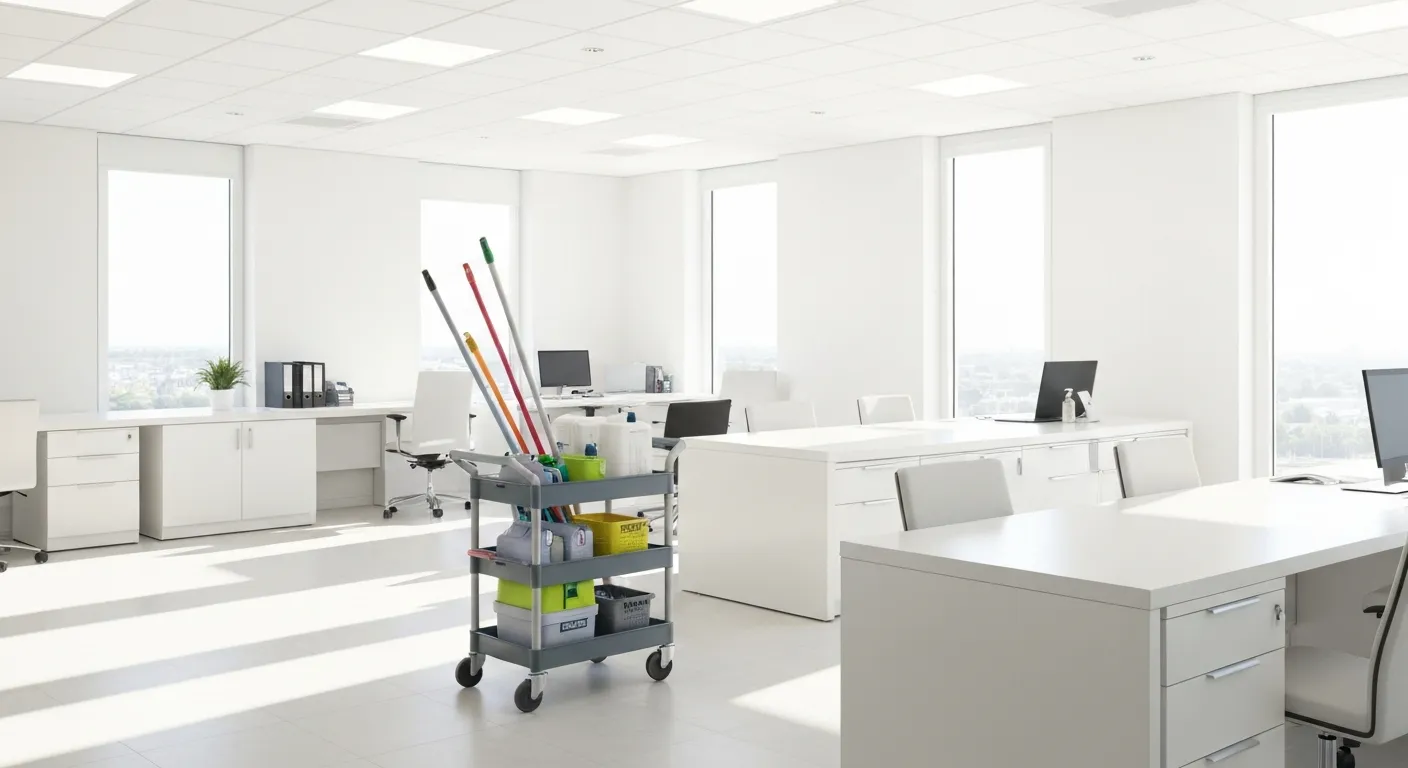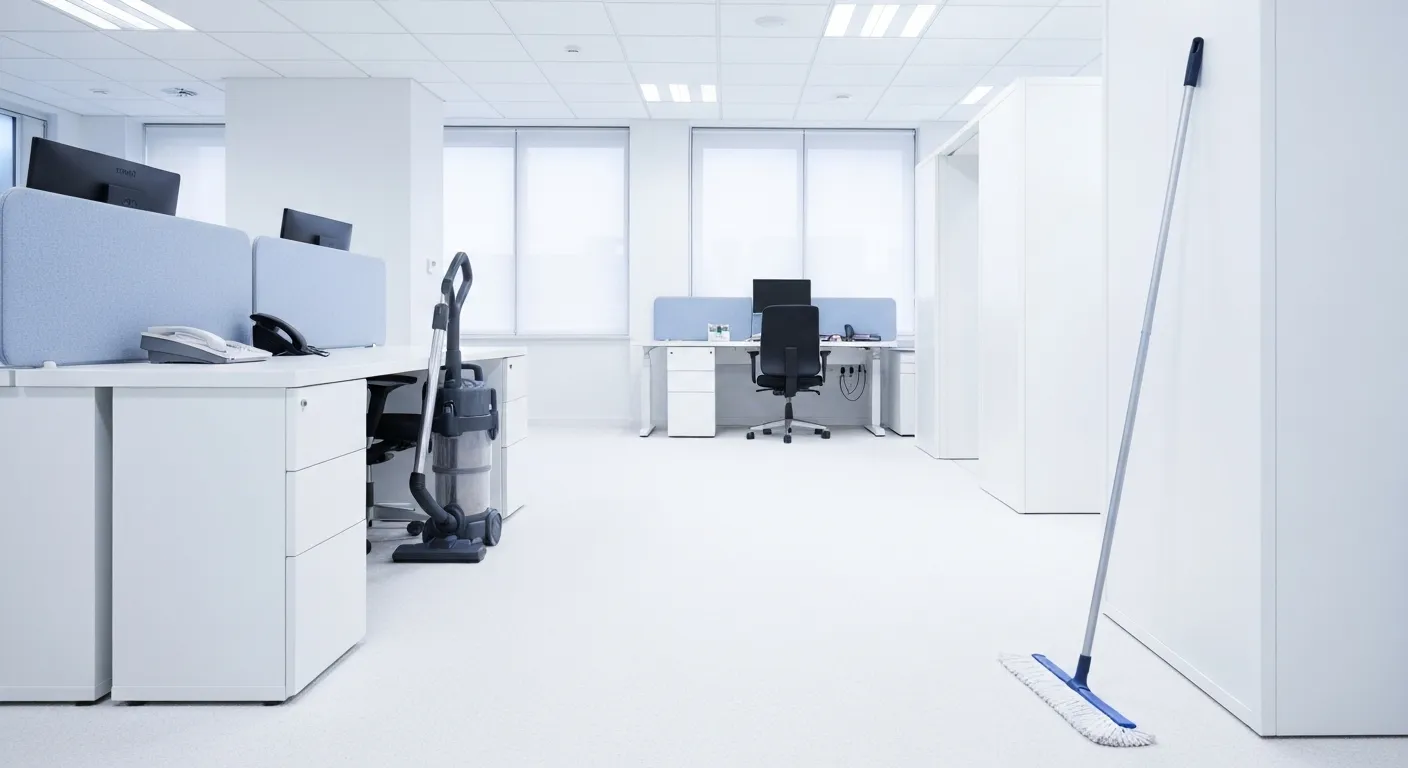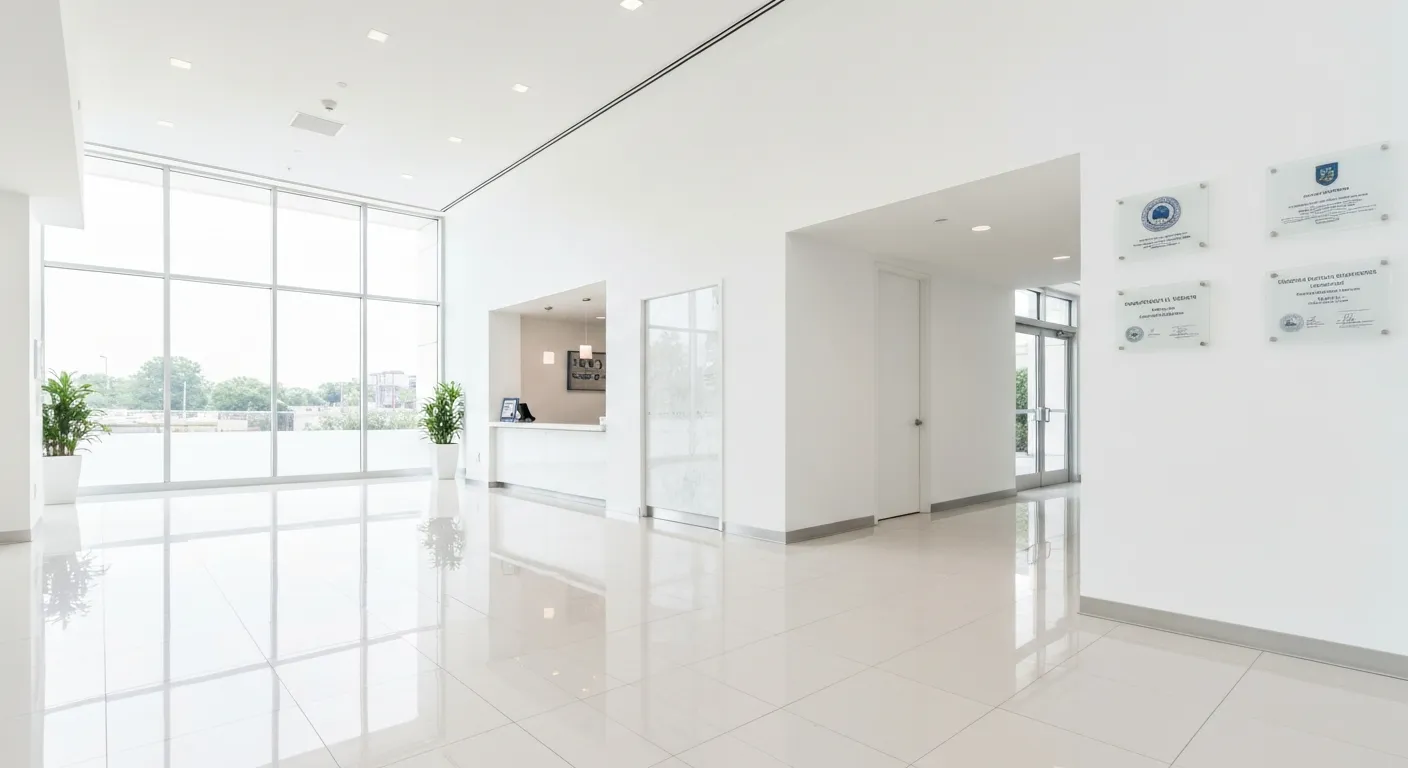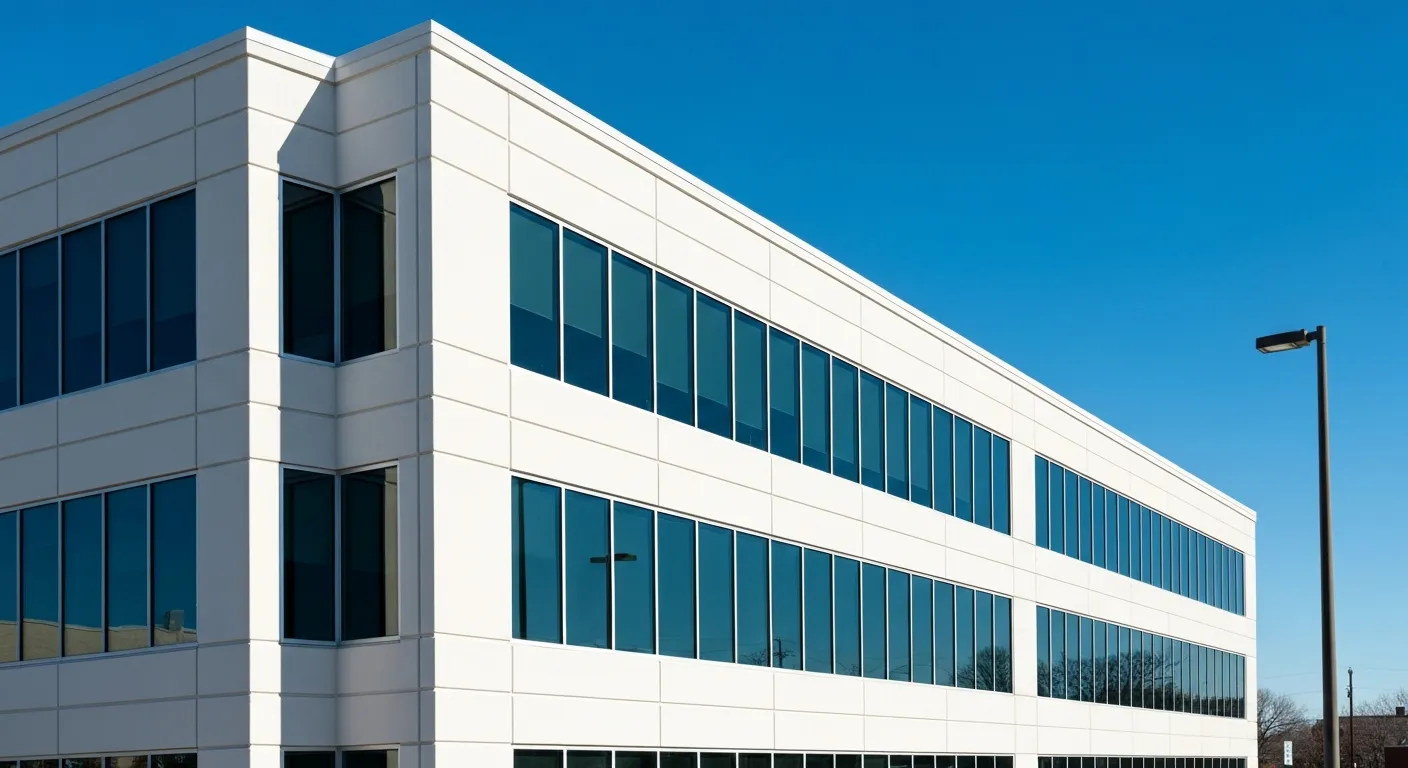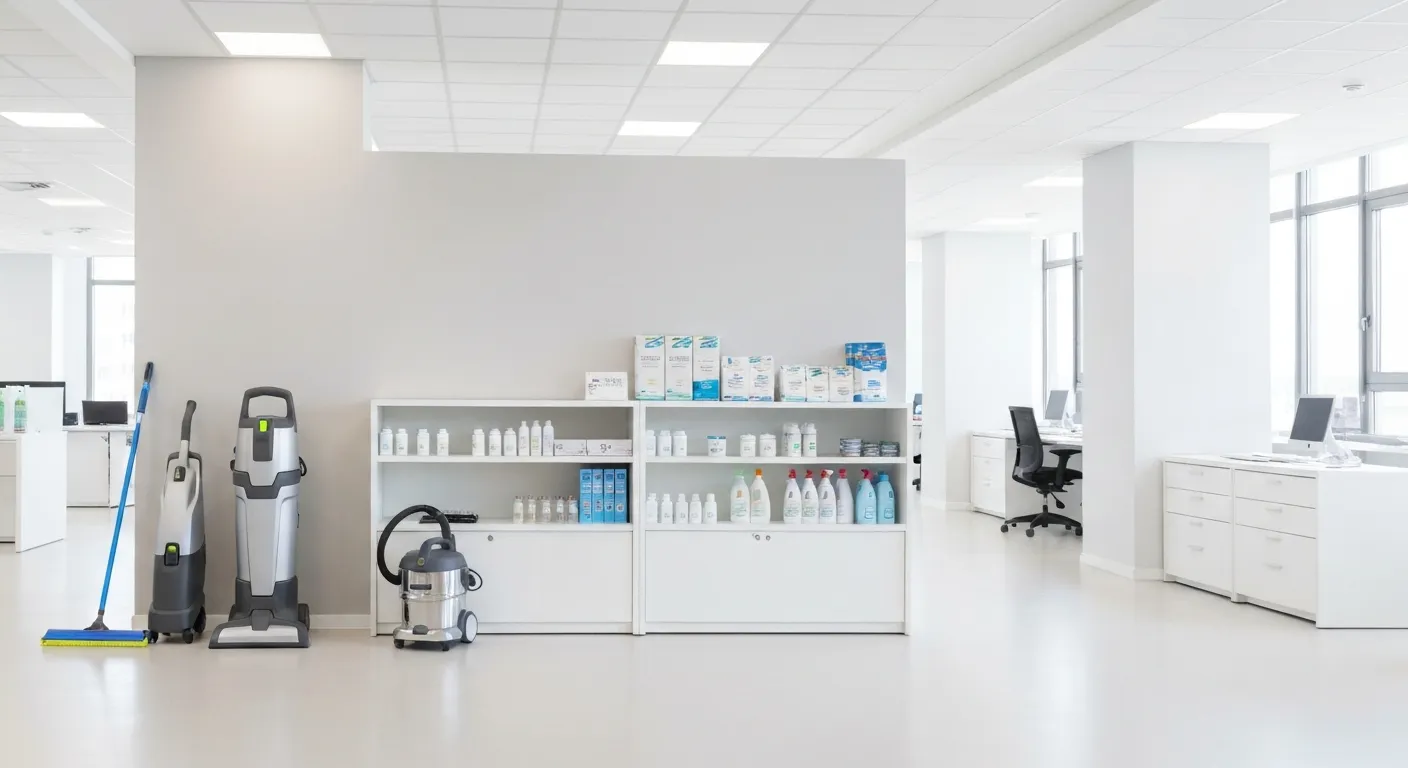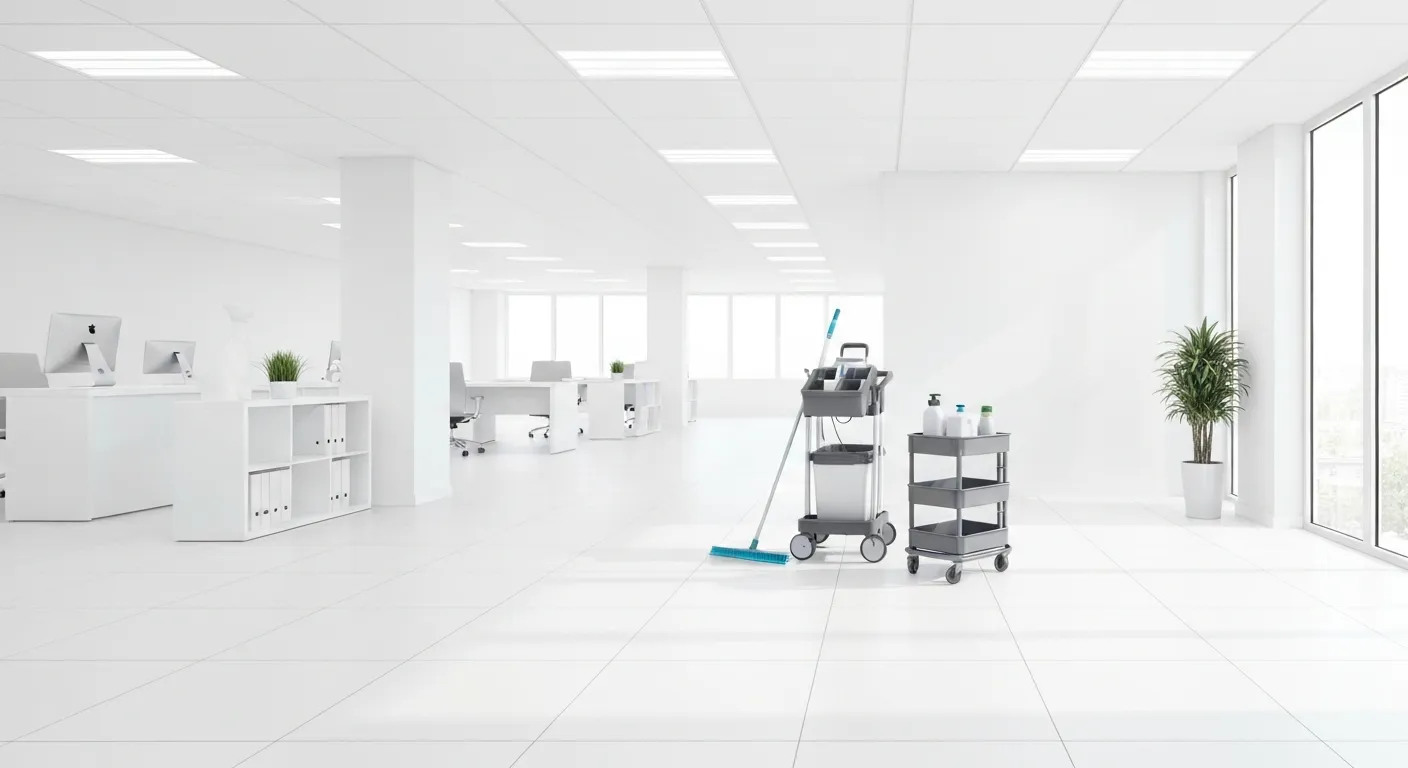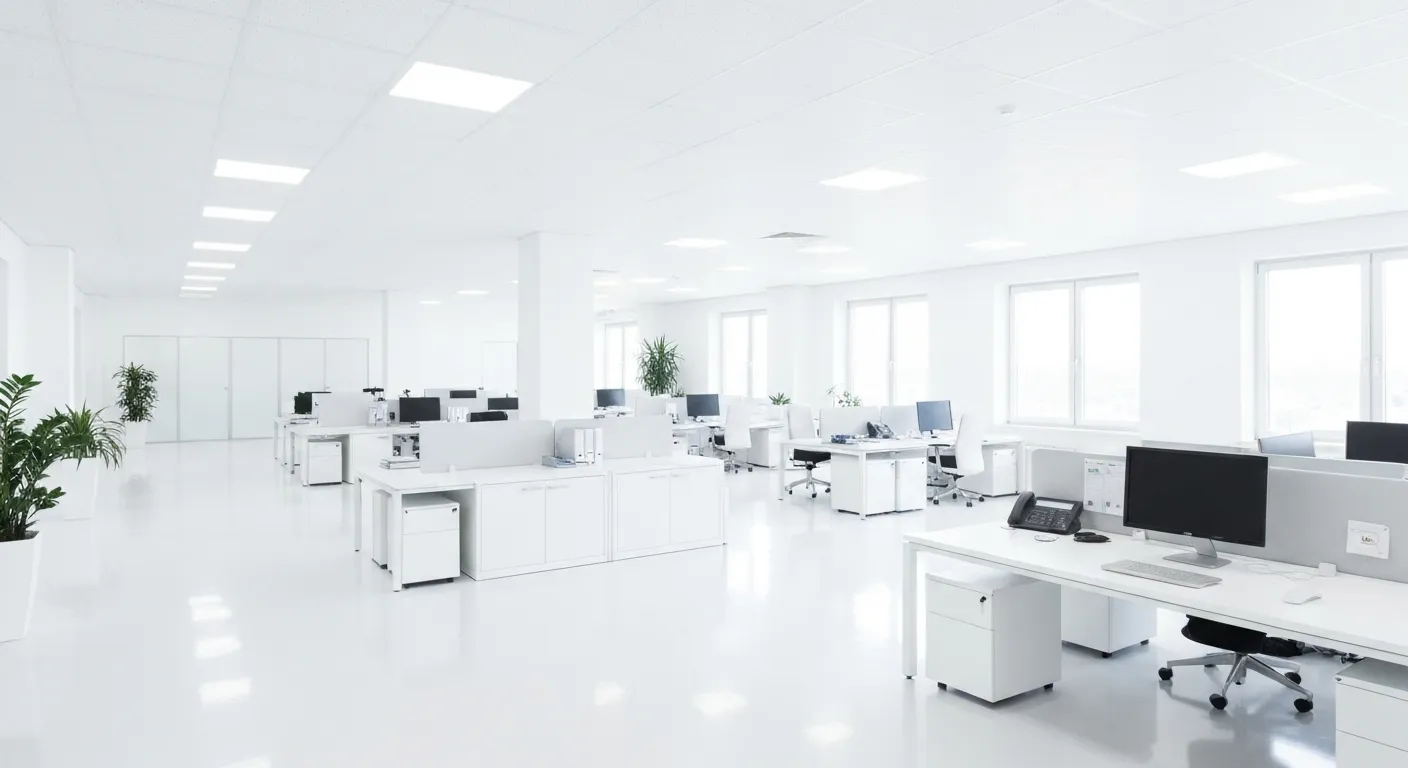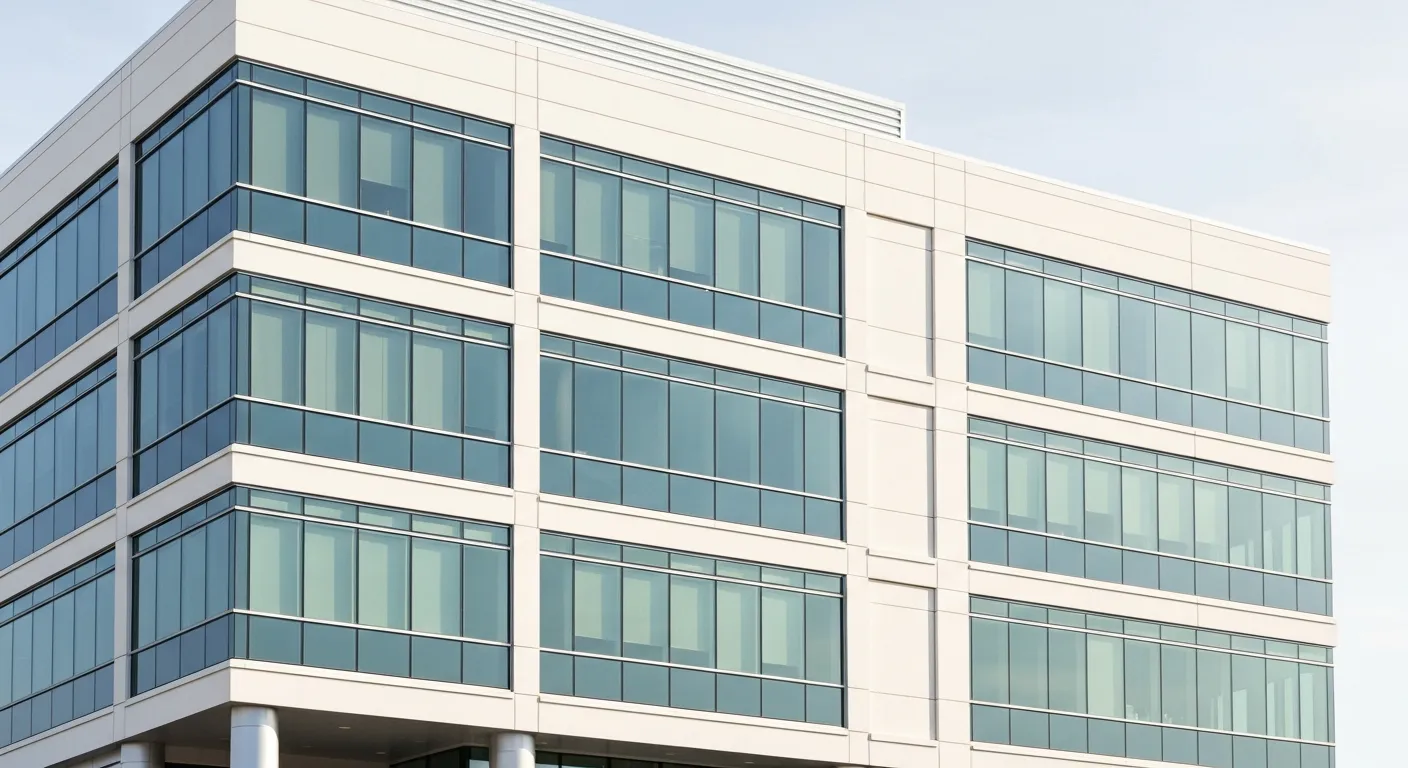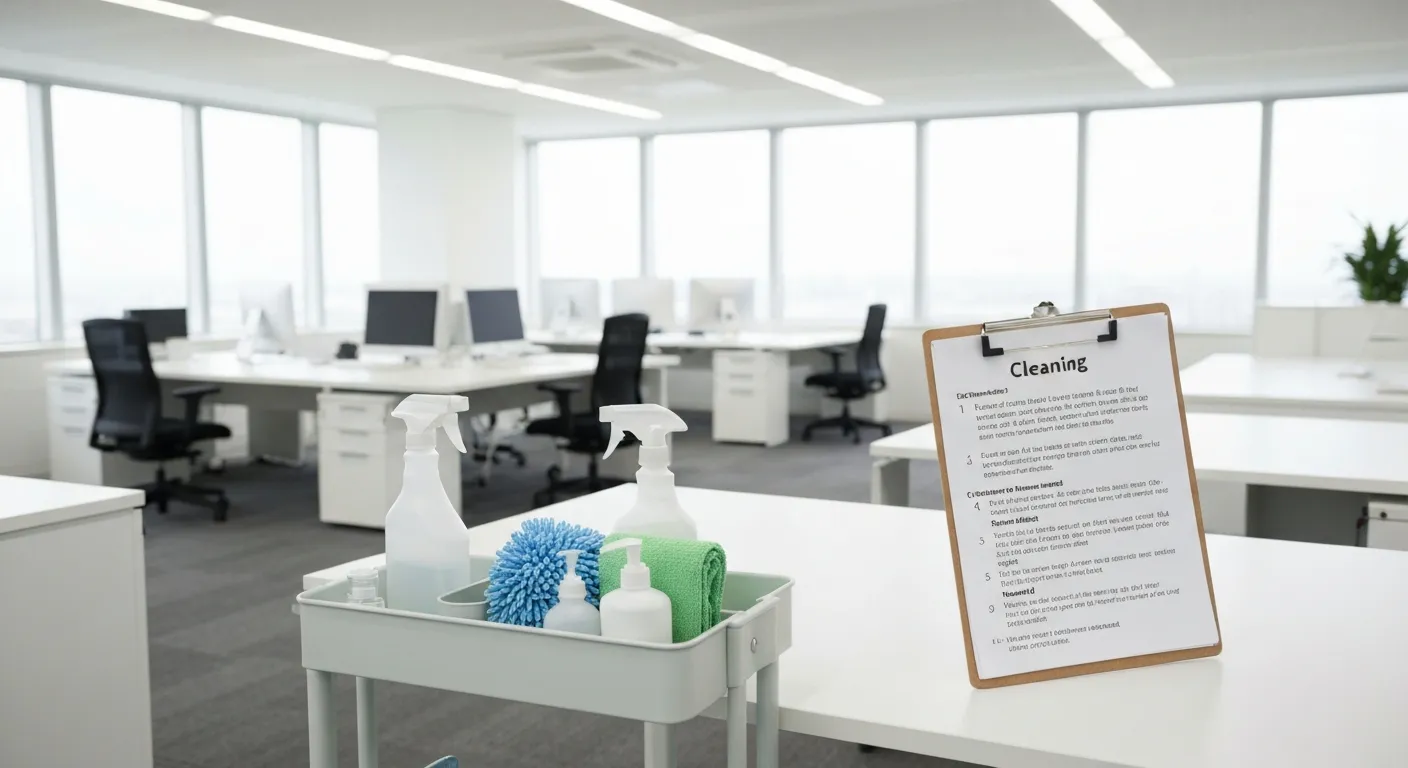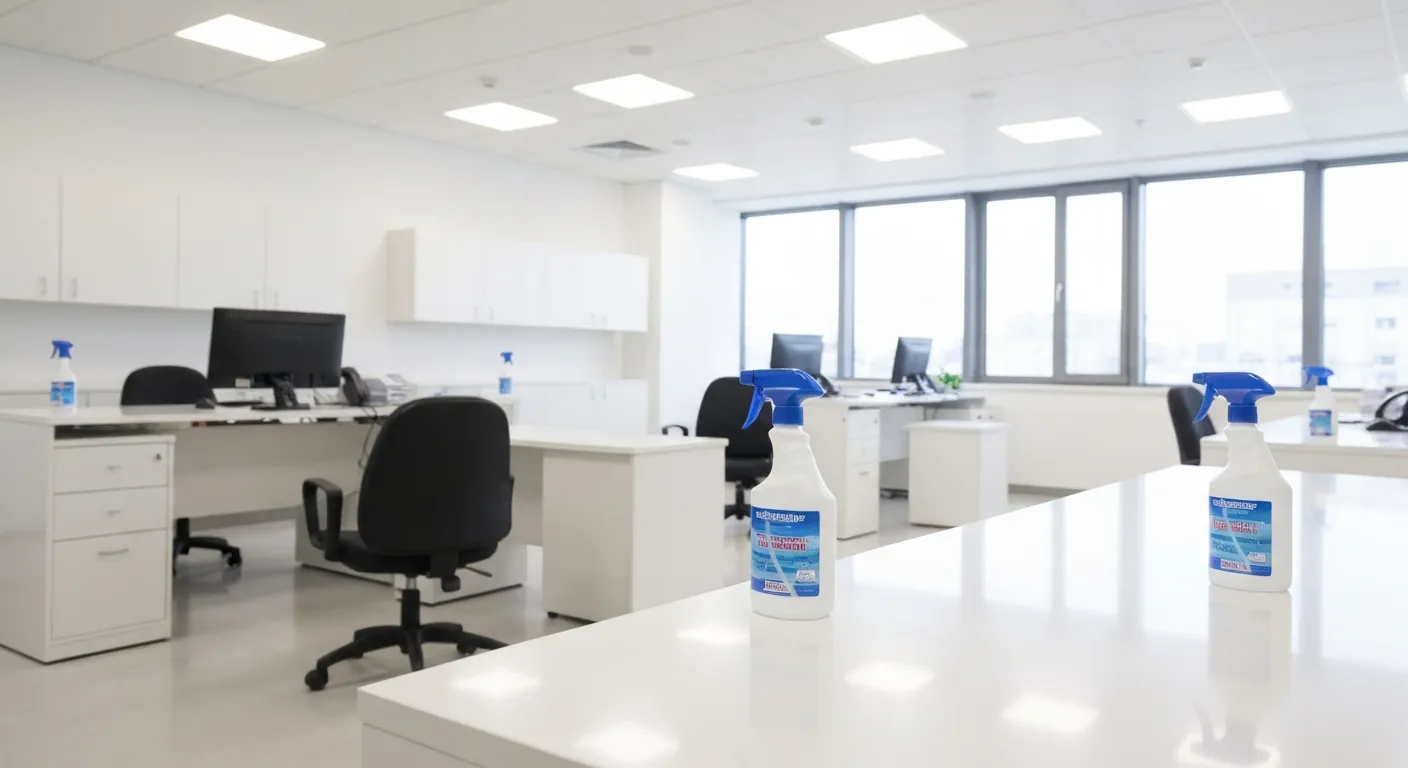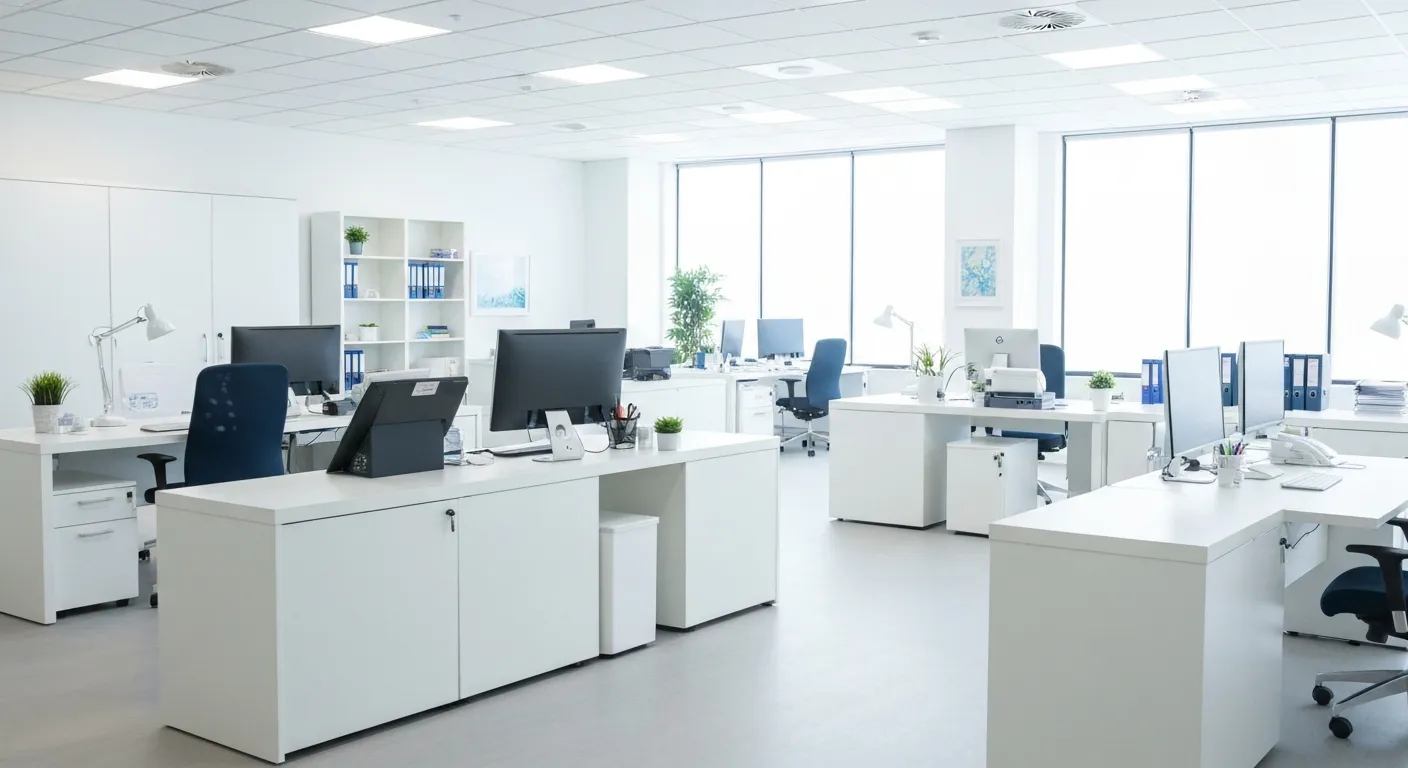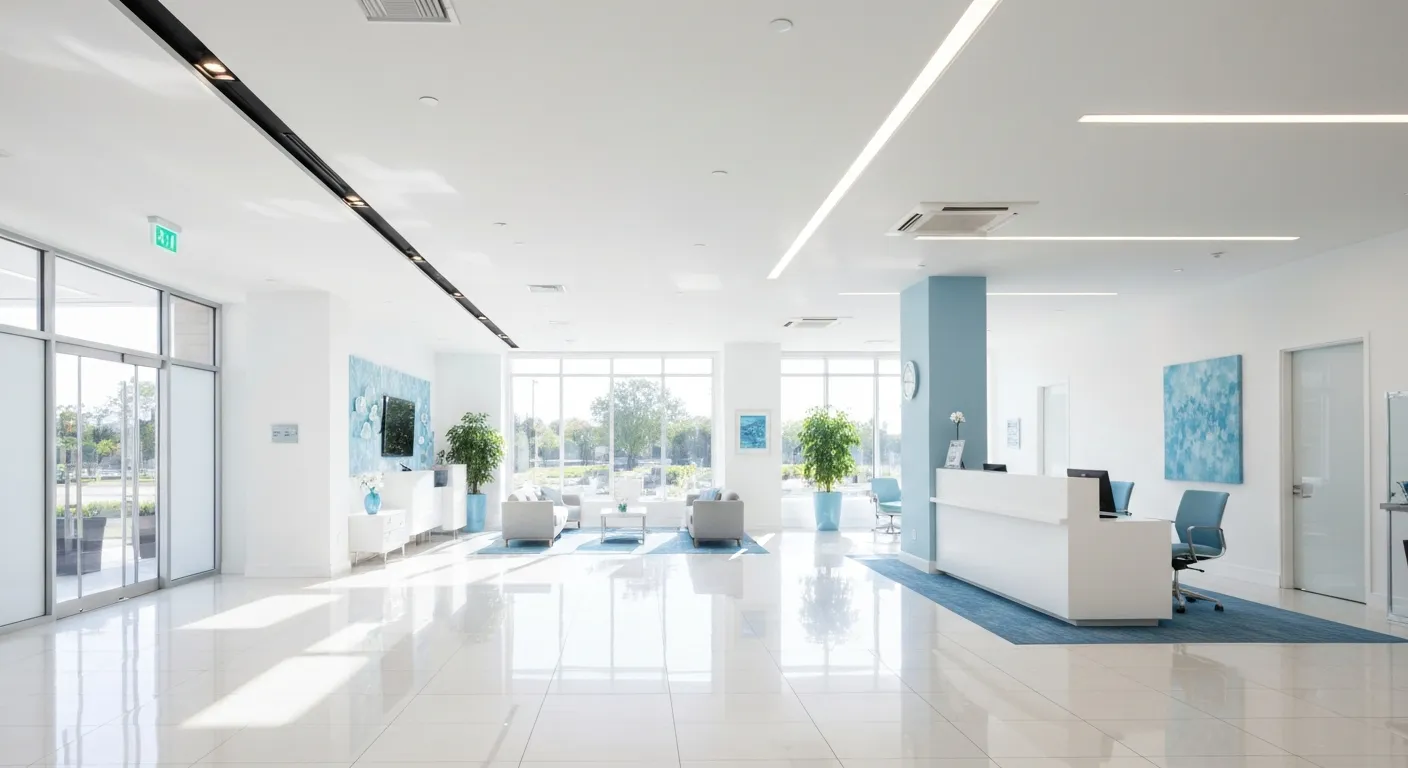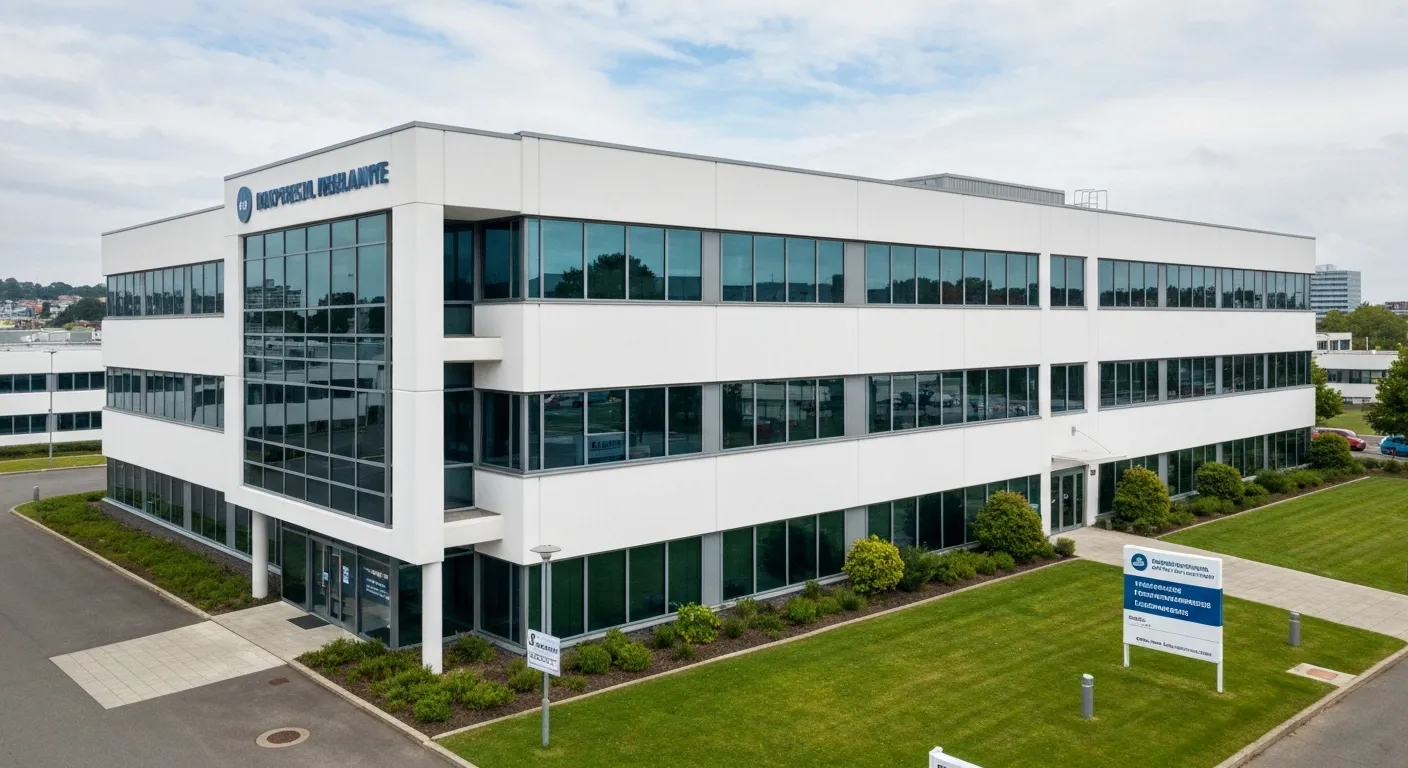How Professional Janitorial Services Maintain Workplace Hygiene

Setting the Stage for Workplace Hygiene Excellence
Maintaining a pristine and hygienic workplace is essential not only for aesthetic appeal but also to ensure the health, safety, and productivity of employees. Professional janitorial services have become indispensable in this effort, defining new standards in cleanliness through advanced practices and rigorous protocols. This article explores how these services sustain peak hygiene levels in workplaces, the technologies and techniques they employ, the tangible benefits they deliver, and how businesses can complement their efforts to maintain a healthy environment.
The Fundamental Role of Professional Janitorial Services in Workplace Hygiene

How do professional janitorial services contribute to maintaining workplace hygiene?
Professional janitorial services are essential in creating a clean and healthy work environment. They utilize specialized cleaning techniques, including disinfection of high-touch surfaces such as doorknobs, light switches, and shared equipment, to prevent the spread of germs and bacteria. Regularly scheduled cleaning routines are tailored to the facility’s specific needs, ensuring comprehensive sanitation.
By removing dirt, allergens, and microbial contaminants, janitorial services help decrease the occurrence of illnesses among employees. This proactive approach not only maintains hygiene but also enhances safety by eliminating potential hazards like spills or debris that could cause slips and falls. Investing in professional cleaning also extends the lifespan of office furnishings and equipment, saving costs on repairs and replacements.
Furthermore, outsourcing these tasks allows staff to concentrate on their primary roles, boosting productivity and morale. Importantly, these services ensure compliance with strict health and safety standards, including OSHA regulations, through proper documentation, staff training, and the use of environmentally friendly cleaning products.
Disinfection of high-touch surfaces and routine tailored cleaning plans
Daily disinfection of high-touch areas like elevator buttons and kitchen fixtures is a critical part of infection control. Additionally, professional cleaners develop customized cleaning schedules that adapt over time, focusing on high-traffic zones and sensitive areas, such as medical or data center environments. Deep cleaning procedures, such as carpet shampooing and upholstery cleaning, further promote sanitation.
Impact on illness reduction and employee well-being
Regular and thorough cleaning significantly lowers the risk of spreading infectious diseases such as the flu or COVID-19. This reduction in germs and bacteria leads to fewer sick days, enhancing overall employee well-being and productivity. A sanitized environment fosters a positive workplace atmosphere, demonstrating the organization’s commitment to staff health.
Air quality and workplace safety enhancement
Beyond surface cleaning, janitorial services work to improve indoor air quality by using HEPA vacuums, dust removal techniques, and eco-friendly cleaning products. Proper waste disposal, ventilation, and mold removal practices further contribute to a safer, healthier indoor environment.
Compliance with health regulations
Adherence to health and safety standards like OSHA is maintained through consistent cleaning protocols, staff training, and meticulous record-keeping. These measures help organizations avoid legal issues and reflect a strong commitment to safety.
| Aspect | Details | Benefits |
|---|---|---|
| Surface Disinfection | Regular cleaning of high-touch areas | Reduces germ spread |
| Custom Schedules | Tailored routines per facility | Efficient and effective |
| Air Quality | Use of HEPA vacuums, ventilation | Healthier indoor environment |
| Compliance | OSHA standards, documentation | Legal compliance and safety |
| Environmental Practices | Eco-friendly products, waste management | Sustainable and safe environment |
Professional janitorial services are an integral part of maintaining not just cleanliness but also health, safety, and professionalism within the workplace environment. Their expertise ensures workplaces remain hygienic, safe, and conducive to productivity.
Advanced Cleaning Techniques and Disinfecting Practices Employed by Professionals

What specific cleaning techniques and disinfecting practices do professional janitorial services use?
Professional janitorial services rely on a variety of advanced cleaning and disinfecting methods to maintain spotless and healthy environments. A key component is the use of microfiber cleaning tools, which are highly effective at trapping dust, dirt, and microbes due to their fine fibers. These tools are often used in conjunction with HEPA vacuums, which are designed to capture small particles, allergens, and bacteria from floors, carpets, and upholstery.
Disinfection is a crucial step after cleaning and typically involves EPA-registered disinfectants. These disinfectants are proven to kill germs, including viruses like COVID-19 and seasonal flu, when used correctly—meaning proper dilution, contact time, and thorough application.
Technologies such as electrostatic spraying and UV sanitization are also common. Electrostatic sprayers apply disinfectants with an opposite charge, enabling the solution to wrap around surfaces evenly and reach difficult areas. UV sanitizers use ultraviolet light to destroy the genetic material of bacteria and viruses, providing an added layer of sanitation, especially in high-risk environments.
High-touch areas such as doorknobs, light switches, elevator buttons, and shared equipment receive special attention through meticulous manual wiping with disinfectant solutions. Routine schedules are established to ensure these critical surfaces are cleaned multiple times a day, reducing the risk of pathogen spread.
Staff training is vital to ensure protocols are followed correctly. Proper use of personal protective equipment (PPE) like gloves, masks, and gowns safeguards workers while preventing cross-contamination.
These practices are governed by strict protocols, and routine schedules are adhered to for regular cleaning, deep cleaning, and disinfection. Combining these innovative techniques with diligent staff practices significantly enhances workplace hygiene, safeguarding employees and visitors from infectious diseases.
Health, Safety, and Productivity Benefits of Professional Janitorial Services
What are the benefits of professional cleaning for health, safety, and productivity in the workplace?
Professional janitorial services play a vital role in maintaining a healthy and safe working environment. One of their primary benefits is reducing the presence of germs, bacteria, and allergens on surfaces such as doorknobs, light switches, and shared equipment. Regular disinfection of high-touch areas prevents the spread of infectious diseases like flu and COVID-19, minimizing employee health issues and sick days.
Safety is significantly improved through routine cleaning practices that eliminate hazards such as spills, dirt, and debris. Floors are properly cleaned and maintained to prevent slips, trips, and falls, which are common workplace accidents. Additionally, techniques such as air quality management with HEPA vacuums and good ventilation help reduce airborne pollutants and allergens, creating a safer indoor environment.
Beyond health and safety, professional cleaning greatly enhances employee morale and motivation. A tidy, organized workspace fosters a sense of pride and encourages productivity. Employees are more likely to feel comfortable and motivated when their environment is clean and inviting.
Cost-effectiveness is another benefit. Outsourcing cleaning tasks allows businesses to focus on core operations while ensuring that hygiene standards are consistently met using advanced cleaning methods and eco-friendly products. This approach not only supports sustainability but also reduces long-term expenses associated with repairs and health-related absences.
Overall, a well-maintained workplace ensures fewer illness-related absences, increases staff efficiency, and presents a professional image to clients and visitors. Regular and thorough janitorial services are essential for fostering a safe, healthy, and productive work environment.
Ensuring Workplace Safety and Illness Prevention through Professional Cleaning
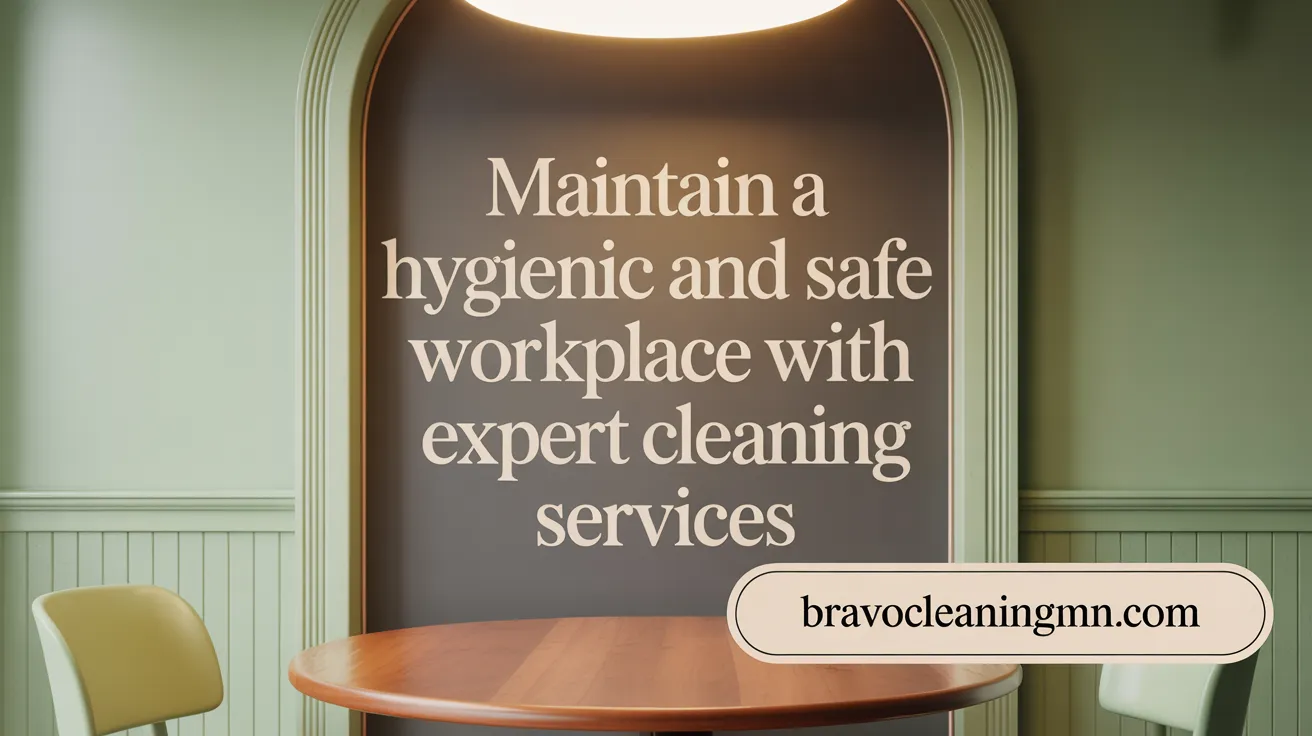
Why are professional janitorial services important in preventing illness and enhancing safety in workplaces?
Professional janitorial services play a vital role in maintaining a safe and healthy work environment. They focus on thoroughly disinfecting high-touch surfaces such as doorknobs, light switches, and shared equipment, which significantly reduces the spread of germs and viruses like COVID-19 and seasonal flu.
These services also include the controlled handling of hazardous materials and proper disposal practices. Proper chemical management not only prevents potential chemical injuries but also minimizes environmental impact.
Maintaining and cleaning HVAC systems and controlling mold growth are additional critical tasks that improve indoor air quality. Better air quality reduces the presence of airborne pathogens, further preventing illness.
Staff training and strict safety protocols ensure janitorial workers follow best practices for disinfection, equipment use, and hazard management. This training helps eliminate risks associated with chemical exposure and physical accidents.
Regular sanitation routines help minimize employee sick days, boosting overall productivity. Cleaner workplaces lead to fewer illness-related absences, enhancing operational continuity.
Professional cleaning services also ensure compliance with health and safety regulations, including OSHA standards. Following these standards involves routine documentation, PPE use, and training, which collectively uphold safety commitments.
In summary, investing in expert cleaning solutions not only improves hygiene and air quality but also creates a safer, more productive work environment. When properly executed, these practices significantly reduce workplace risks and support employee well-being.
Customization and Compliance: Tailoring Cleaning Plans to Specific Workplace Needs
How do professional cleaning services customize cleaning plans for different workplaces?
Professional cleaning companies create tailored plans by first assessing the unique characteristics of each facility. This involves evaluating the type of industry—such as healthcare, manufacturing, or office spaces—the size of the premises, the layout, and areas that experience high foot traffic.
Based on this assessment, they develop specific schedules that detail how often each area should be cleaned and disinfected. High-touch surfaces like doorknobs, light switches, and shared equipment receive special focus to reduce germ spread.
They also consider special requirements for certain environments. For example, healthcare facilities need more rigorous disinfection protocols, while industrial sites might require deep cleaning of equipment and floors. Equipment needs, eco-friendly products, and cleaning techniques for sensitive areas like conference rooms or gyms are included.
Involving the client in the planning process allows for adjustments related to operation hours, seasonal changes, and evolving safety standards. This ensures continuous compliance and optimal cleanliness.
Ultimately, customized cleaning plans align perfectly with each organization’s operational needs, safety regulations, and health standards, fostering a safer and more efficient work environment.
What health regulations and standards do professional janitorial services comply with to ensure workplace safety?
To guarantee a safe work environment, professional janitorial services rigorously follow health and safety rules. These include OSHA (Occupational Safety and Health Administration) standards, which govern safe handling of hazardous chemicals, appropriate use of protective gear, ventilation, and waste management.
They also adhere to CDC guidelines and local health regulations aimed at controlling infectious diseases and maintaining indoor air quality. Consistent employee training on chemical safety, equipment use, and emergency protocols ensures compliance.
Documentation of cleaning routines, safety procedures, and chemical inventories is maintained meticulously to prove adherence to regulatory requirements. By doing so, janitorial services help clients avoid legal liabilities and demonstrate a commitment to health and safety.
In summary, compliance with these strict standards not only protects employees but also promotes a healthier, hazard-free workplace environment, reinforcing the importance of professional janitorial services in modern businesses.
Comprehensive Waste Management Practices Supporting Workplace Hygiene
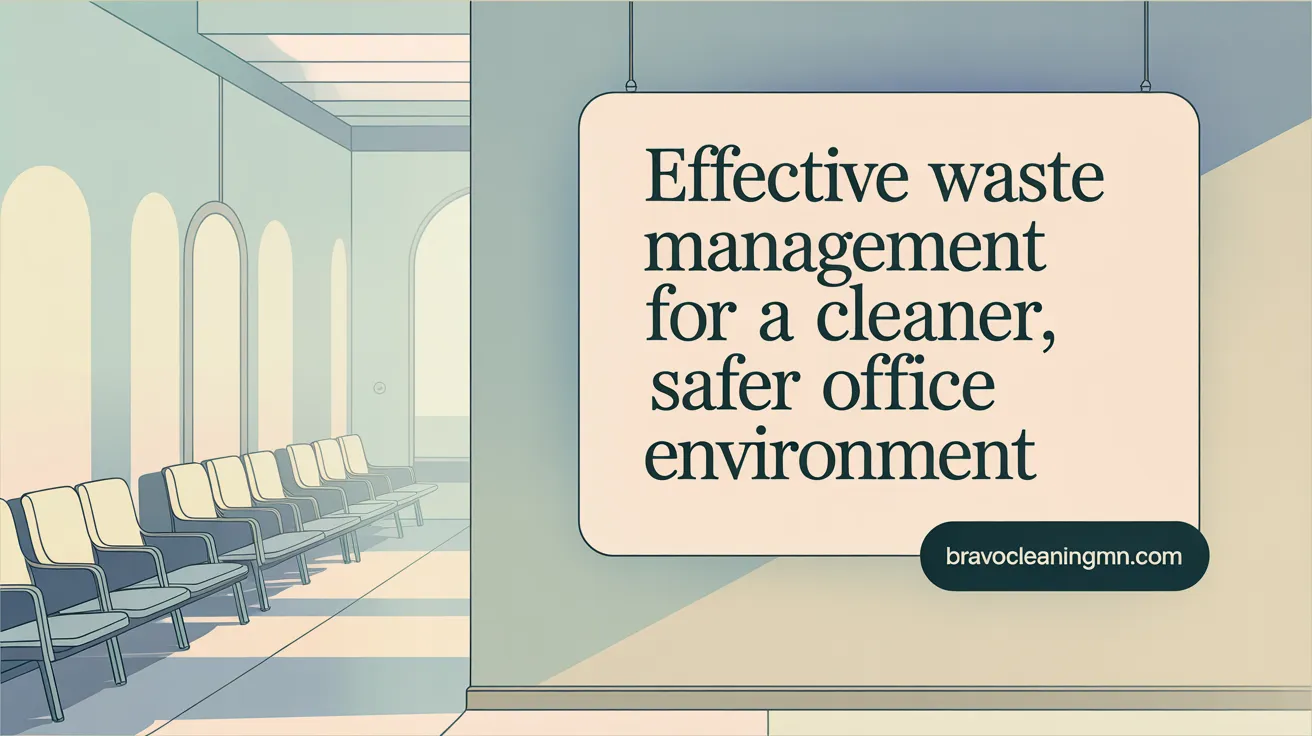
What waste management practices are implemented by professional janitorial services to support workplace hygiene?
Professional janitorial services follow detailed waste management strategies to keep workplaces clean and hygienic. These practices include waste segregation, recycling, and safe disposal of hazardous waste.
They regularly conduct waste audits to identify recyclables like paper, plastics, and metals, ensuring these materials are sorted properly and sent to recycling facilities. This helps reduce landfill waste and promotes environmental responsibility.
Janitorial staff are trained to handle waste carefully, preventing contamination and ensuring recyclables remain clean. They also monitor the quality of collected recyclables to improve sorting accuracy.
Employee involvement is encouraged through education and incentives aimed at boosting participation in recycling programs. Promoting reusable containers and digital communication further minimizes waste.
Additionally, these services prioritize reducing waste generation by choosing eco-friendly products and supplies that are sustainable and less harmful to the environment.
Sanitation routines are integrated with waste management, including regular disinfection of waste areas, to prevent pests and odors. Proper cleanup of trash receptacles and bins enhances the overall hygiene.
By combining waste reduction efforts with cleaning and sanitization protocols—such as disinfecting surfaces and shared spaces—these practices contribute to a healthier, safer work environment.
| Practice | Description | Additional Details |
|---|---|---|
| Waste Segregation | Sorting waste into recyclable, compostable, and landfill categories | Ensures proper disposal and recycling |
| Recycling Programs | Implementing systems for recycling paper, plastics, metals | Reduces landfill waste, supports sustainability |
| Hazardous Waste Disposal | Safe handling and removal of toxic or dangerous waste | Complies with safety standards, prevents contamination |
| Waste Audits | Regular assessments of waste types and quantities | Improves recycling, reduces waste generation |
| Employee Education | Training staff and informing staff about waste practices | Encourages participation, improves compliance |
| Eco-Friendly Products | Using supplies that reduce waste and environmental impact | Supports sustainability goals |
| Waste Area Sanitization | Cleaning waste containers frequently | Prevents pests, odors, and contamination |
| Protocol Integration | Combining waste management with cleaning routines | Enhances overall hygiene and safety |
For more insights on waste management practices, you can search: "professional janitorial waste management practices." Overall, these comprehensive efforts help maintain a clean, safe, and eco-friendly workplace environment.
Sustaining Workplace Cleanliness Between Professional Janitorial Visits: Practical Tips

What practical tips can help sustain workplace cleanliness between professional janitorial visits?
Maintaining a clean and healthy work environment requires proactive effort from employees and management. One effective way is to encourage daily surface disinfecting. Employees should regularly wipe down high-touch areas such as desks, keyboards, light switches, doorknobs, and communal equipment using disinfectant wipes or environmentally friendly cleaning supplies. This minimizes the spread of germs and bacteria.
Organization also plays a vital role. Decluttering workspaces not only creates a more professional appearance but also reduces dust accumulation and makes cleaning easier. Proper waste disposal and recycling practices are essential; clearly labeled bins for trash and recyclables can prevent the buildup of dirt and promote sanitation.
Personal hygiene practices contribute significantly to workplace cleanliness. Employees should clean personal items like phones, headsets, and personal bags regularly. Encouraging handwashing and providing hand sanitizers further reduces microbial presence.
Implementing policies to minimize dirt tracking is advisable. Requiring the use of reusable shoe covers, or establishing a no-shoes environment, helps keep external dirt and mud outside, protecting floors and carpets.
Finally, good airflow and greenery can enhance indoor air quality and overall hygiene. Regularly ventilating spaces, cleaning air vents, and adding indoor plants improve air circulation and increase oxygen levels, fostering a healthier work atmosphere.
Adopting these habits between professional cleaning sessions plays a crucial role in sustaining a safe, organized, and hygienic workplace—contributing to overall health and productivity.
Maintaining a Healthy, Safe, and Productive Workplace Through Professional Janitorial Services
Professional janitorial services are more than just routine cleaning—they are a strategic investment in workplace health, safety, and operational success. Through expert techniques, customized plans, regulatory compliance, and comprehensive hygiene practices including waste management and air quality control, these services create environments where employees thrive and businesses flourish. Complementing these services with conscientious daily habits among staff ensures sustained cleanliness and hygiene between visits. Ultimately, embracing professional janitorial services fosters a work culture that values well-being, safety, and professionalism—key pillars in today’s competitive business landscape.
References
- Enhancing Safety With Professional Janitorial Services
- Cleaning for Healthier, Safer Work Environments
- Why Commercial Janitorial Services Matter
- How janitorial services maintain workplace hygiene - System 1
- Enhancing Workplace Safety: The Role of Janitorial Services
- The Importance of Commercial Janitorial Services for Your ...
- The Role of Professional Cleaning in Preventing Office ...
- How our Commercial Janitorial Services Ensure a Safe ...


